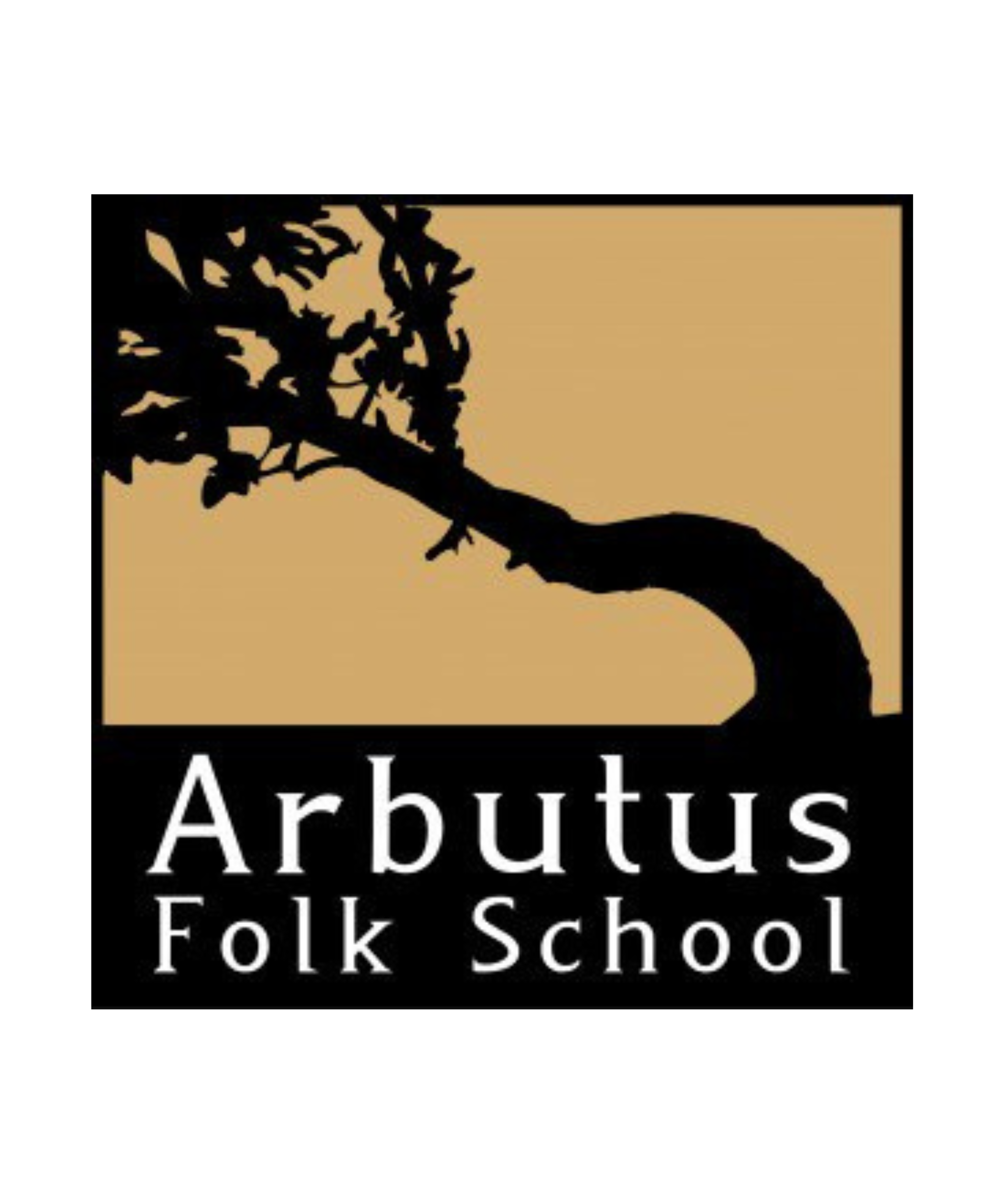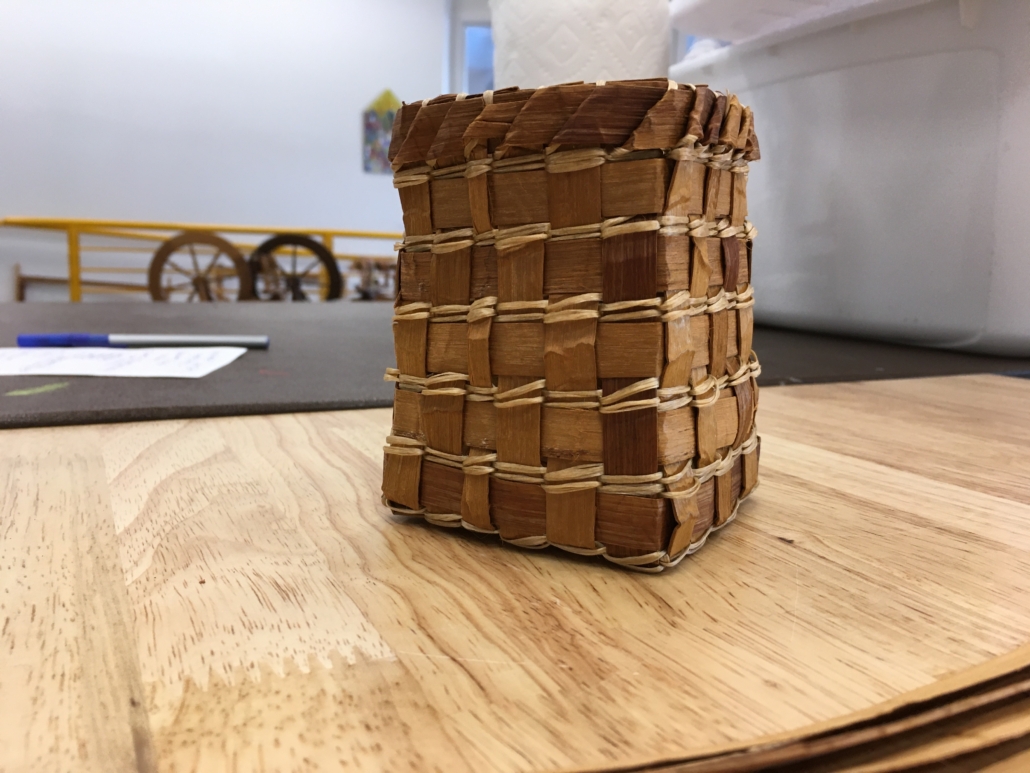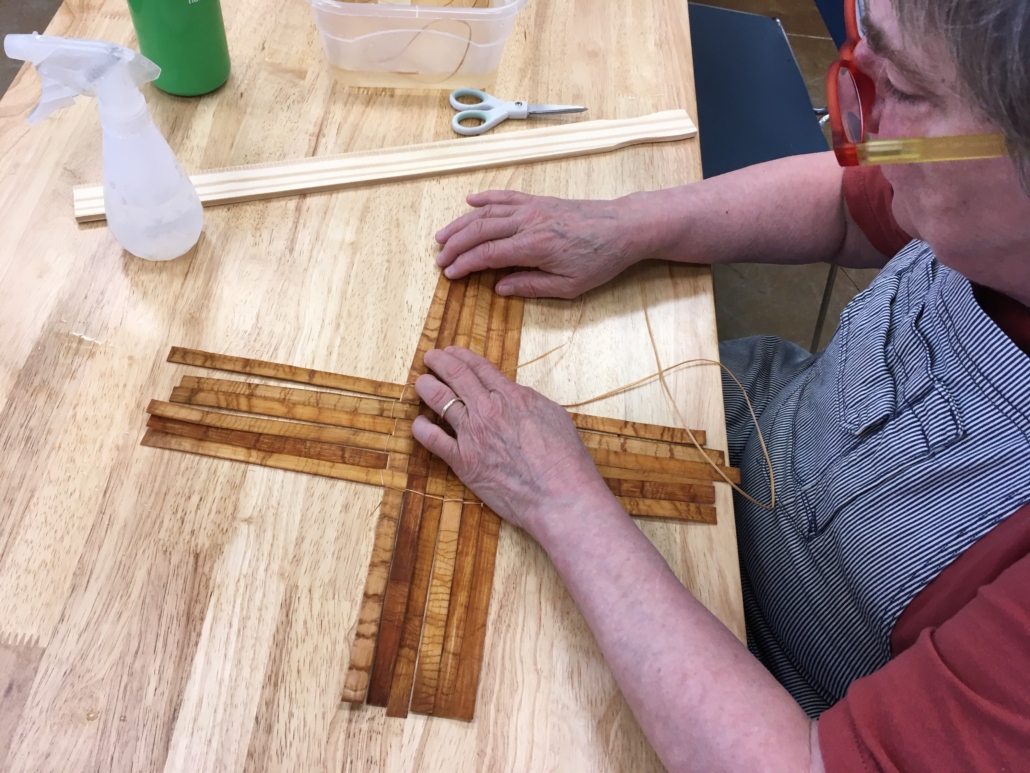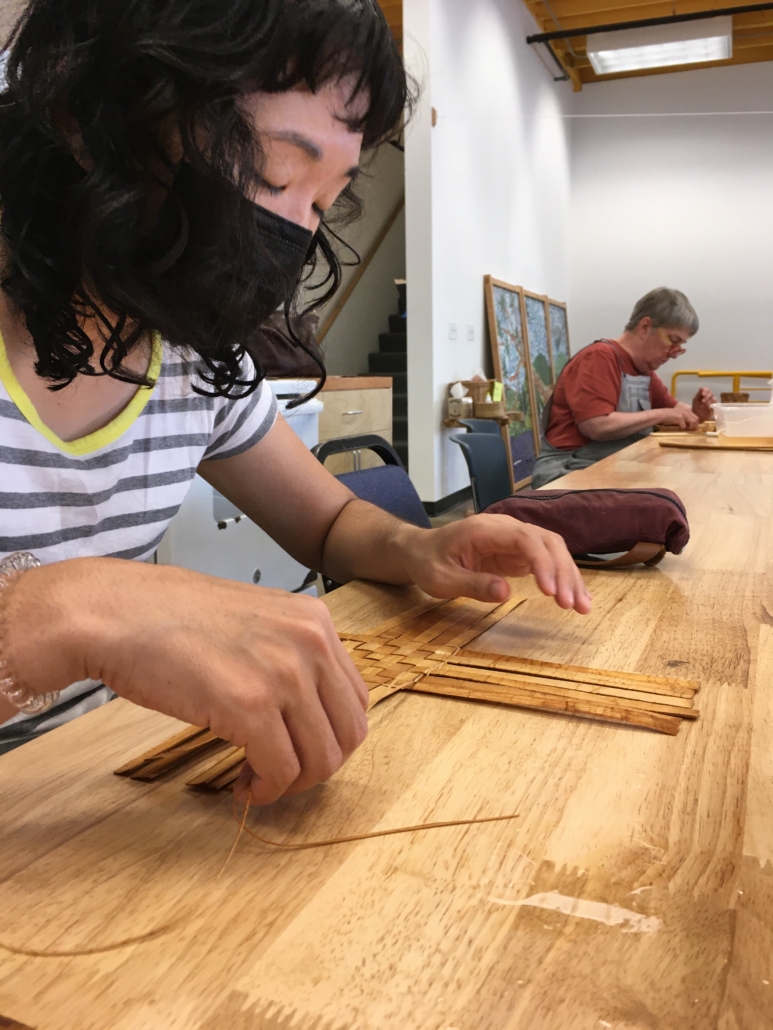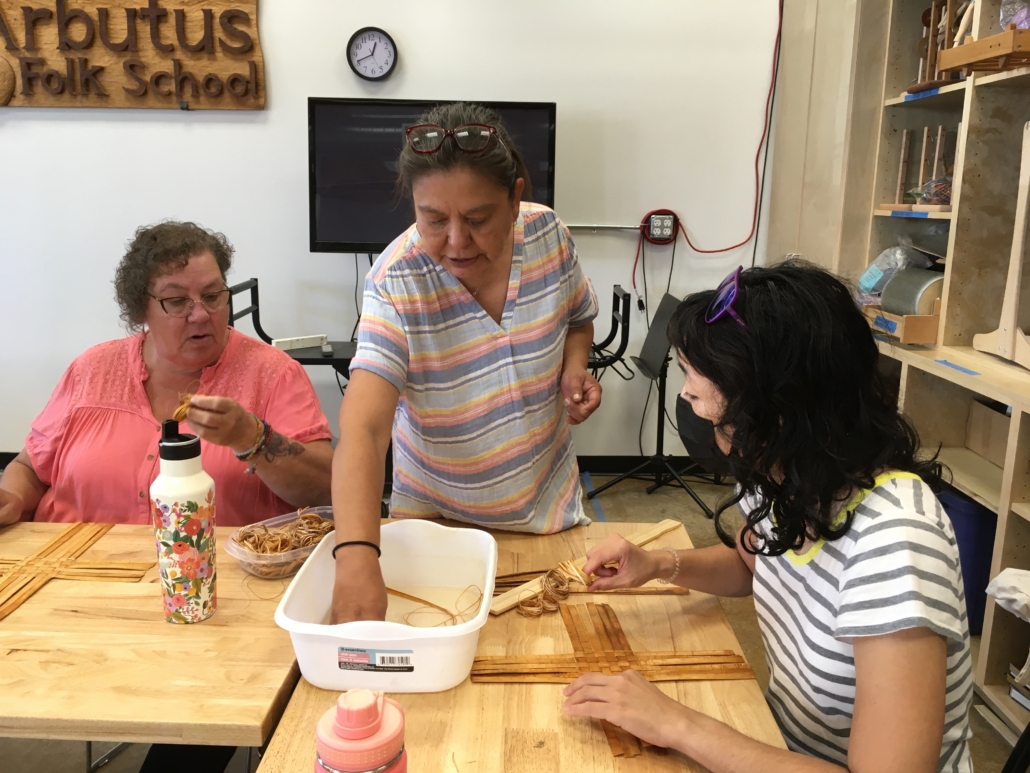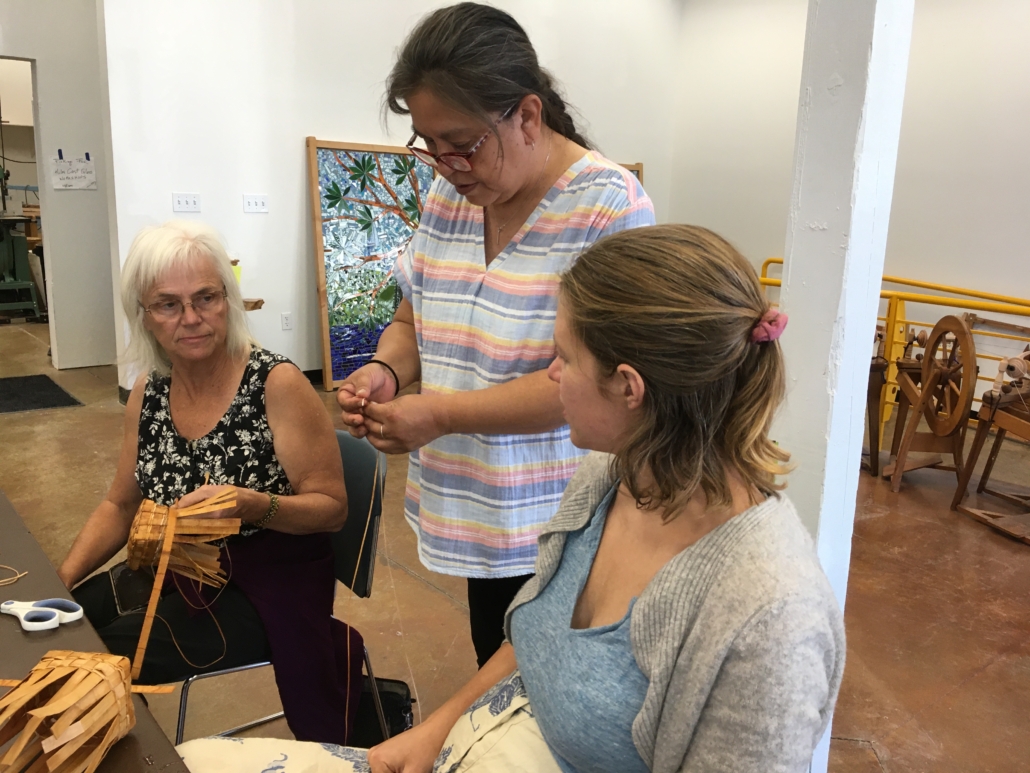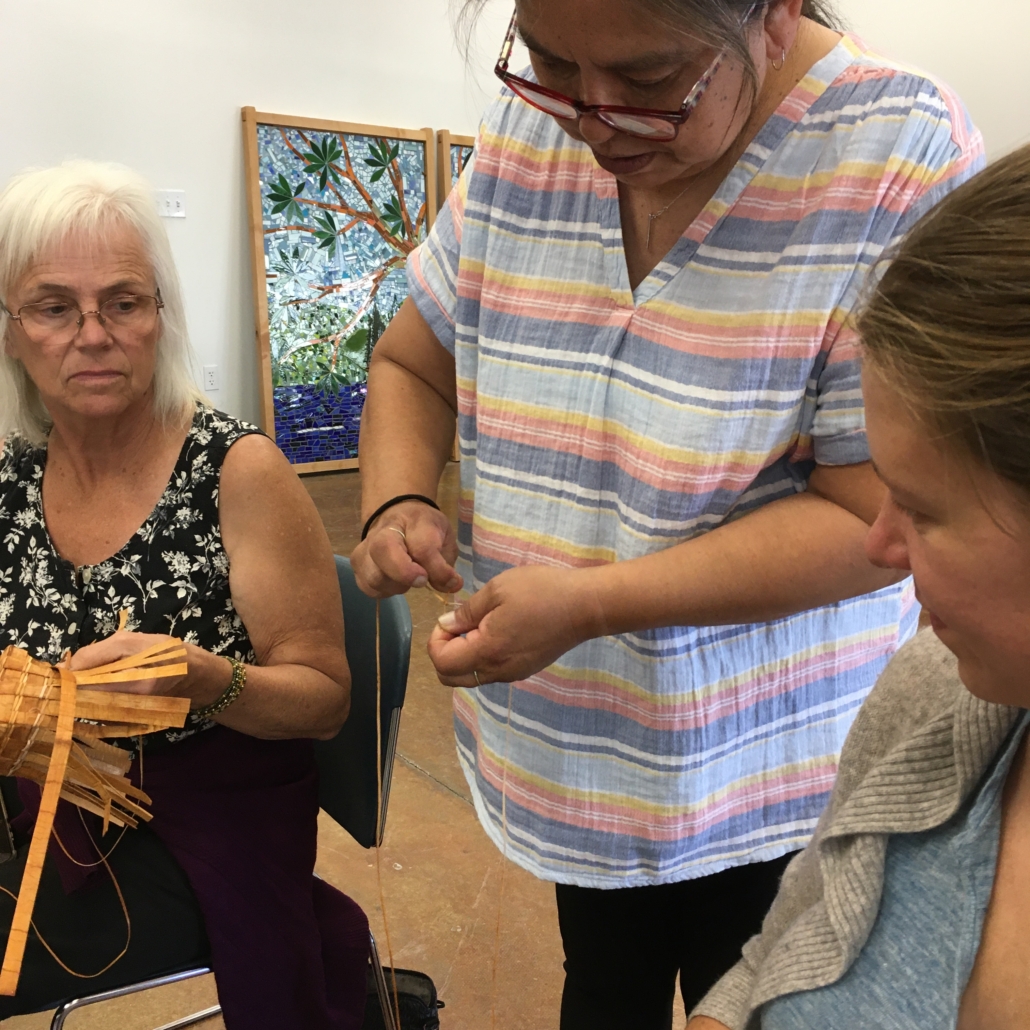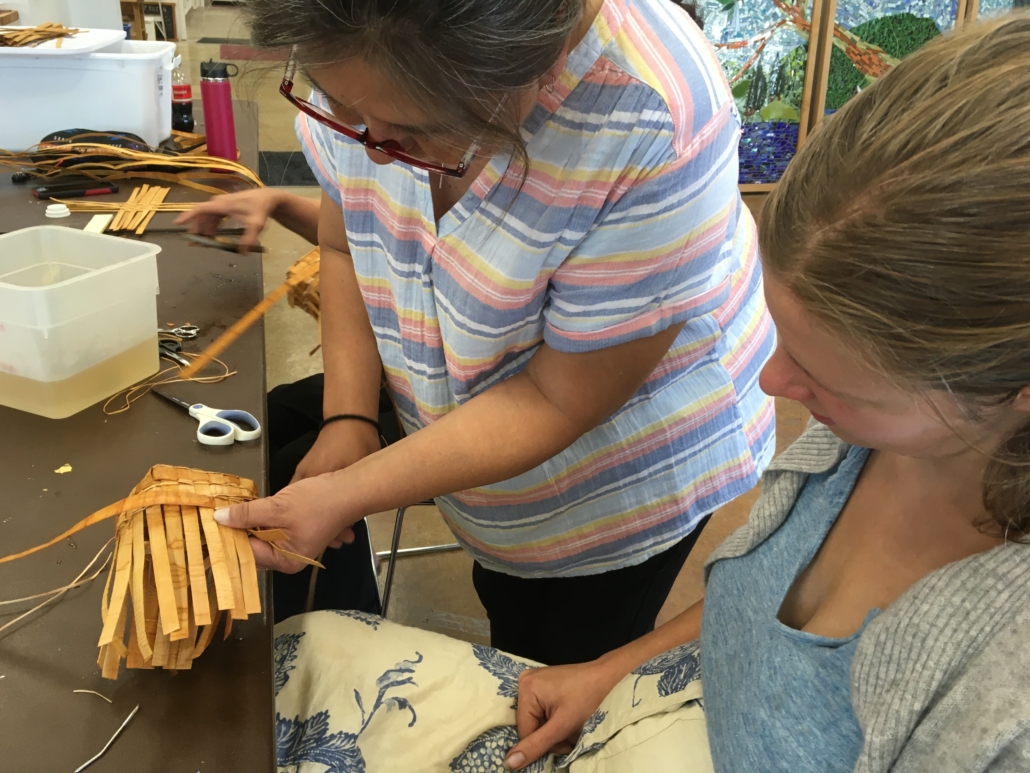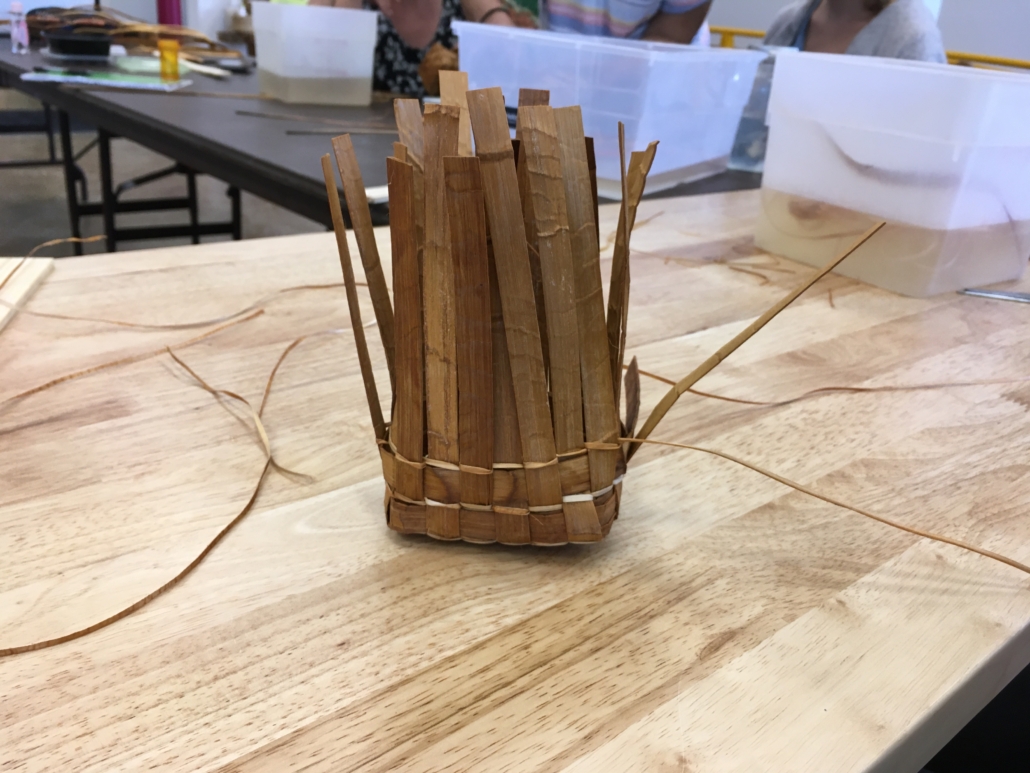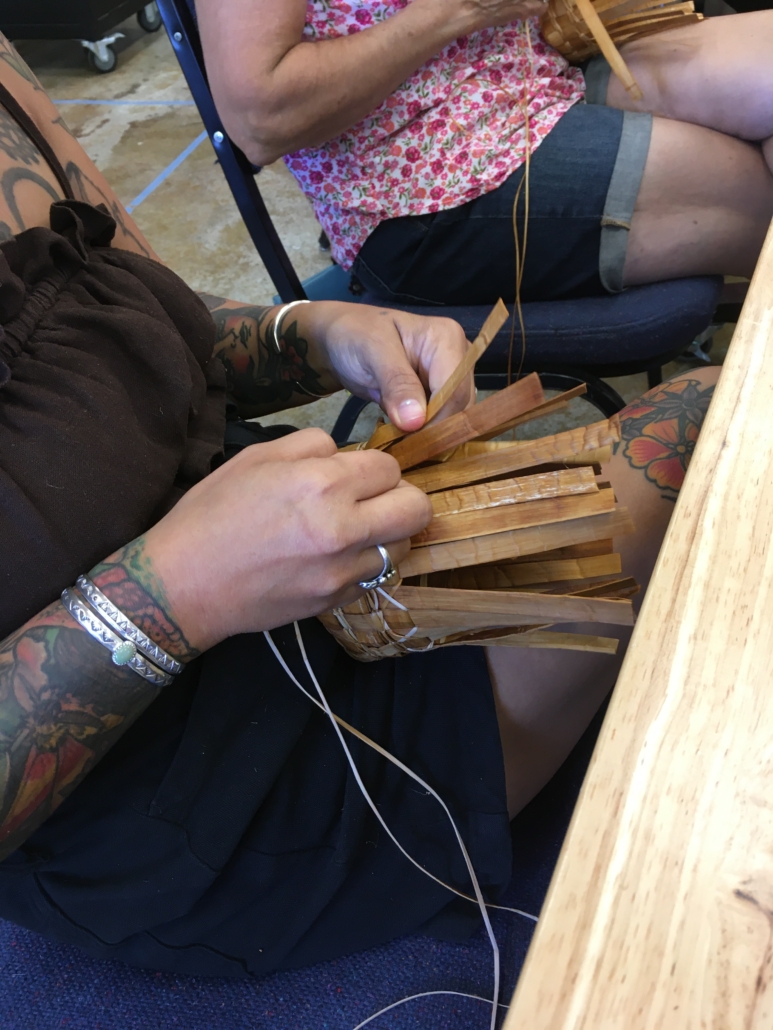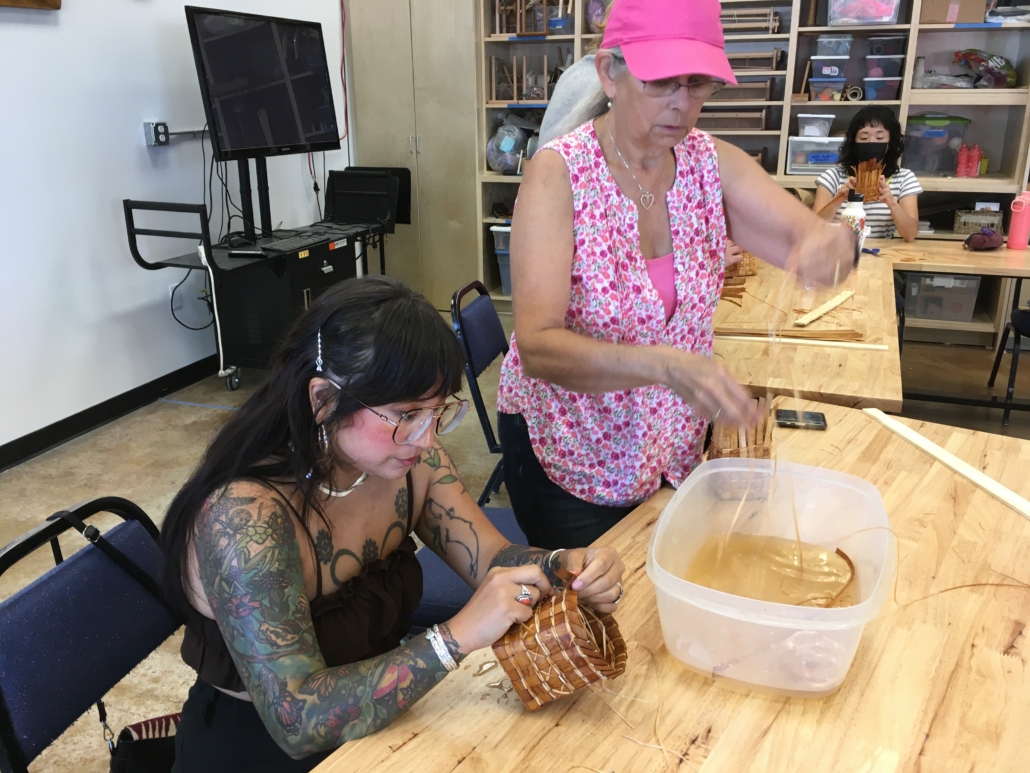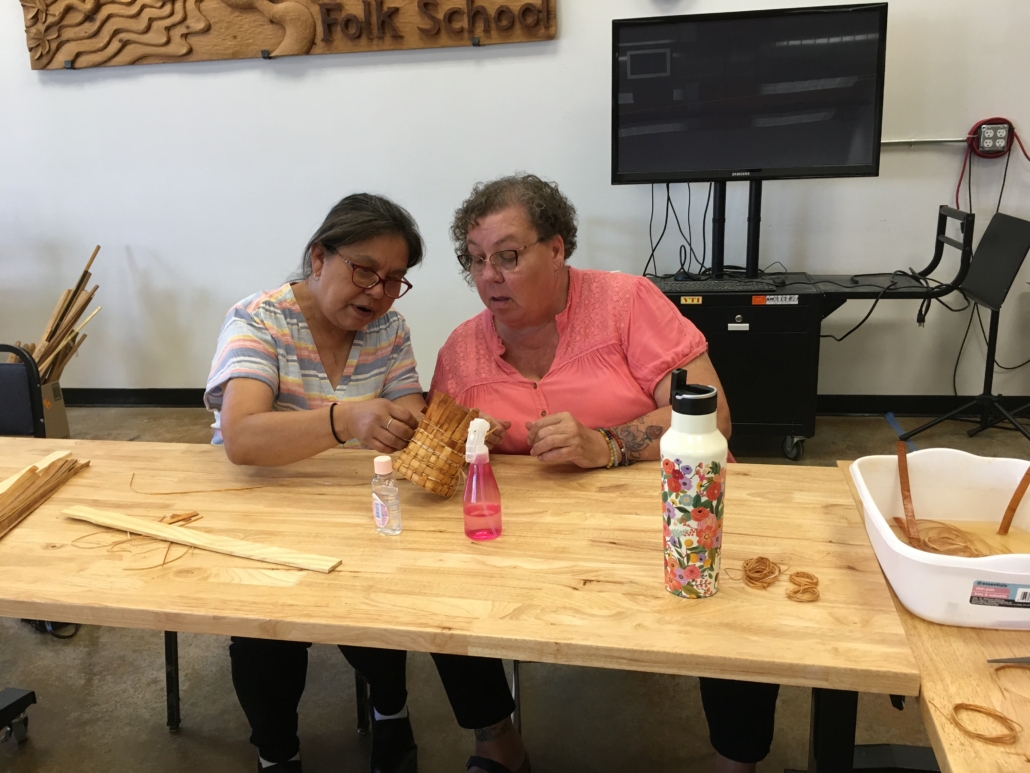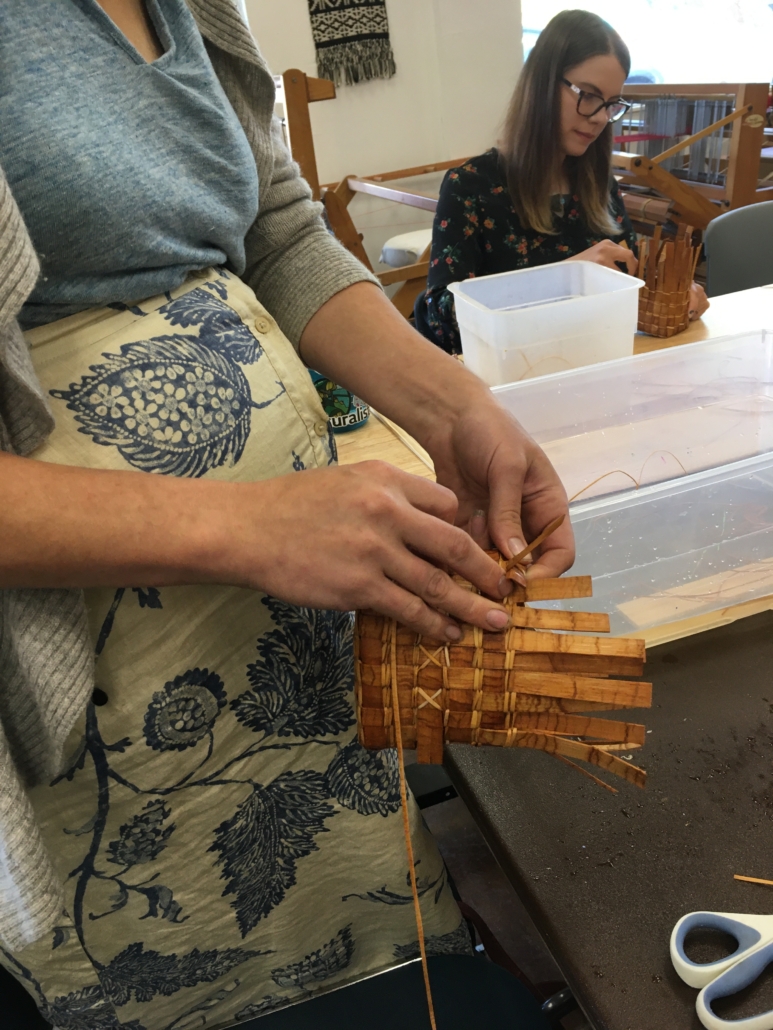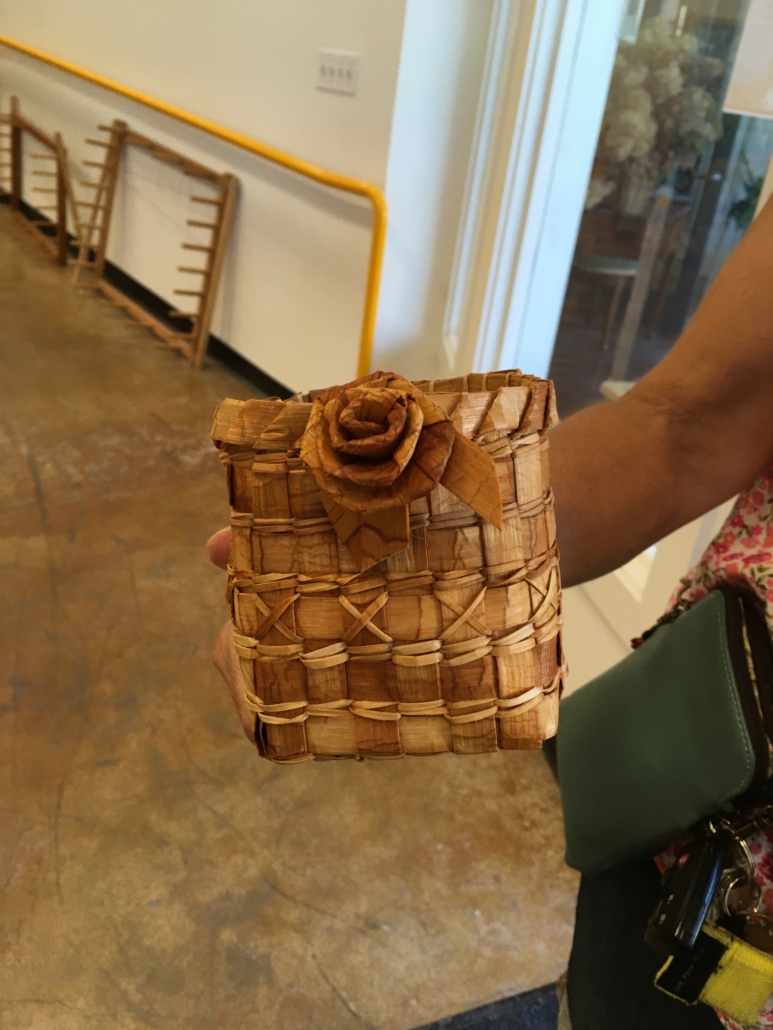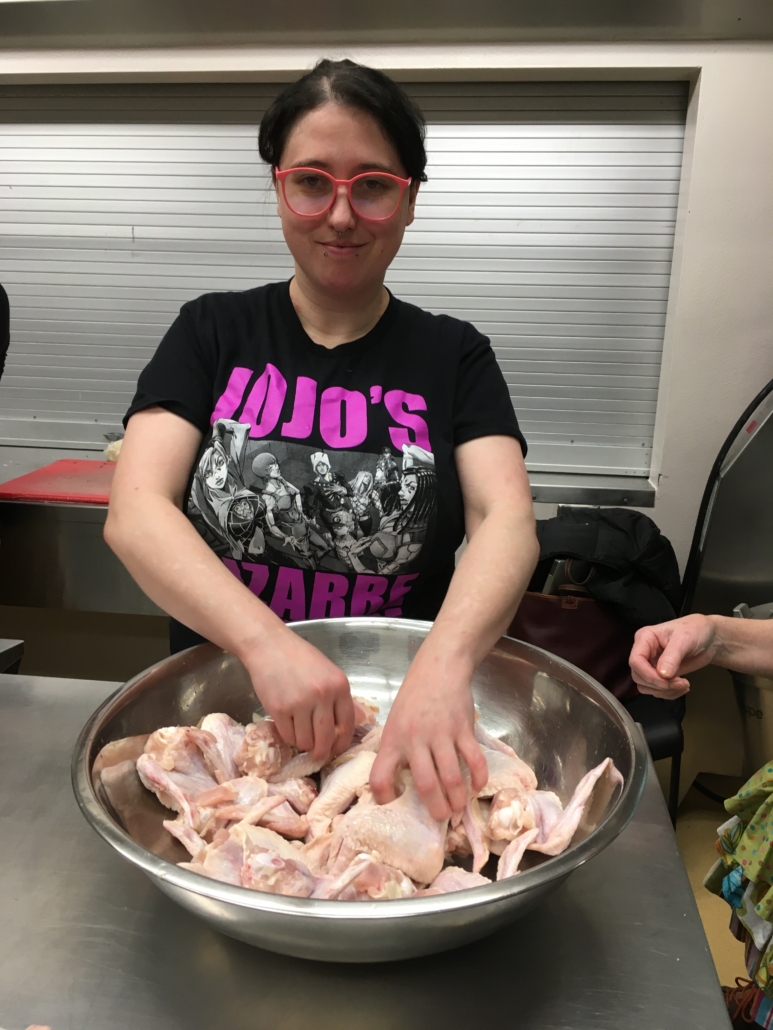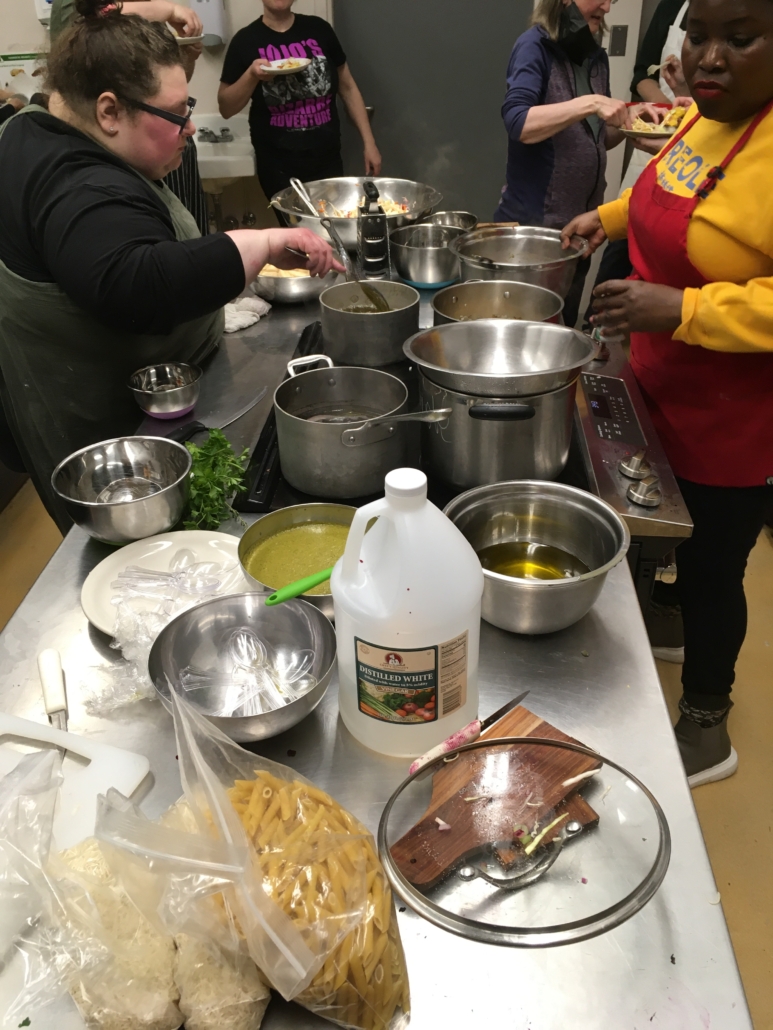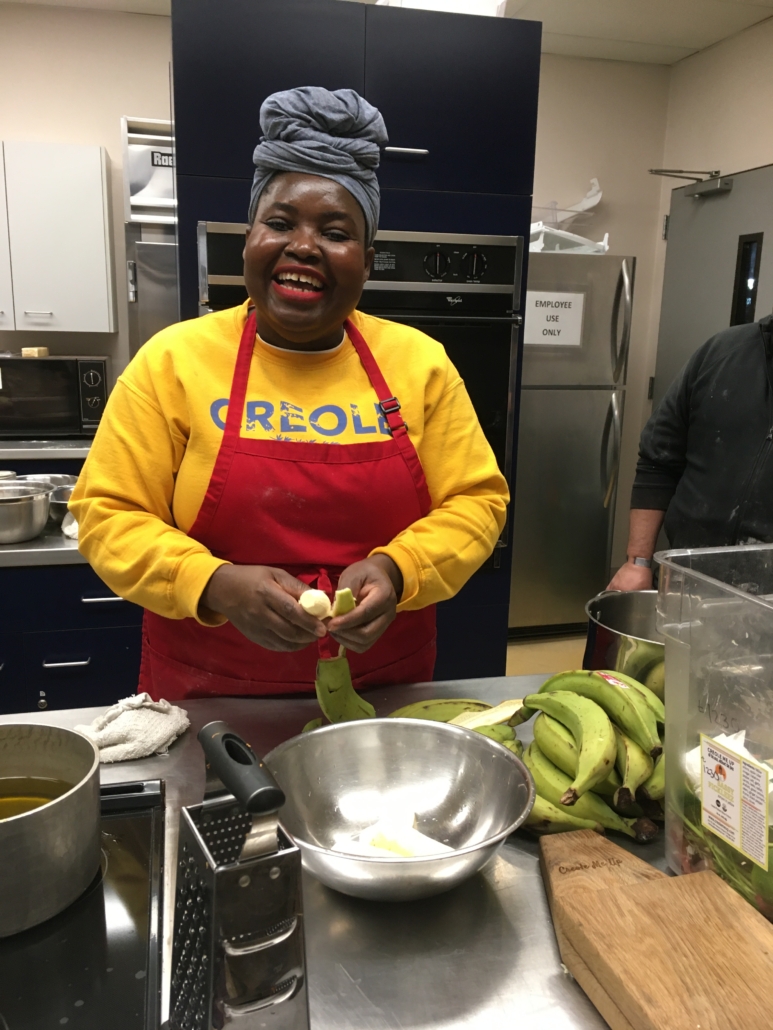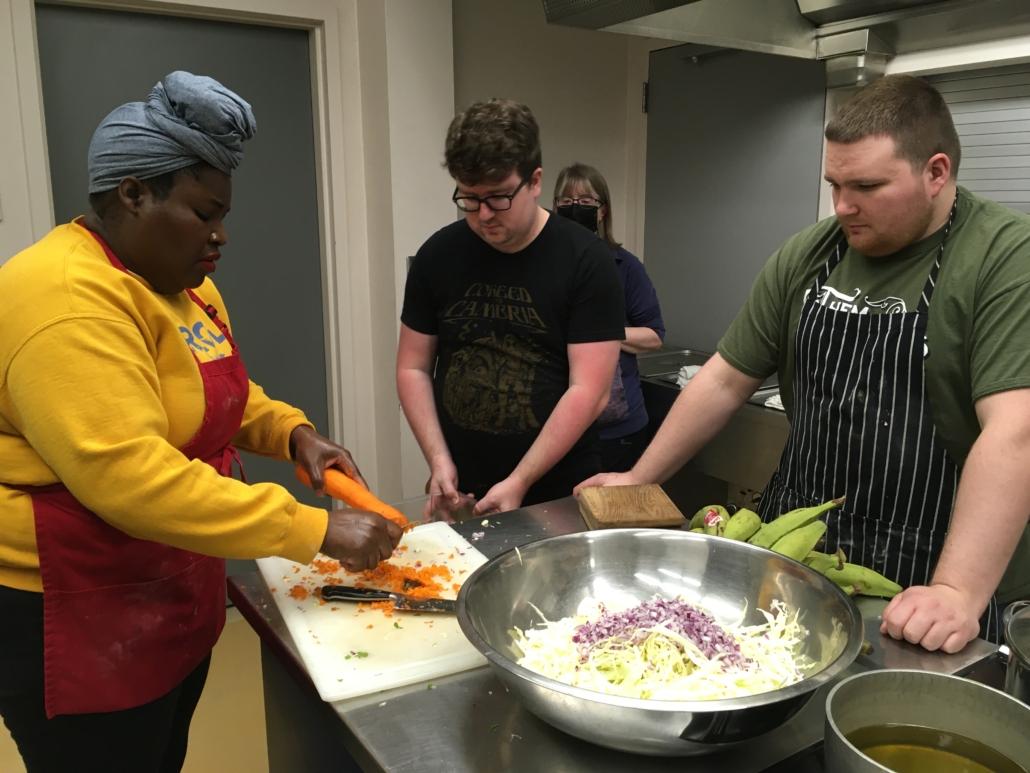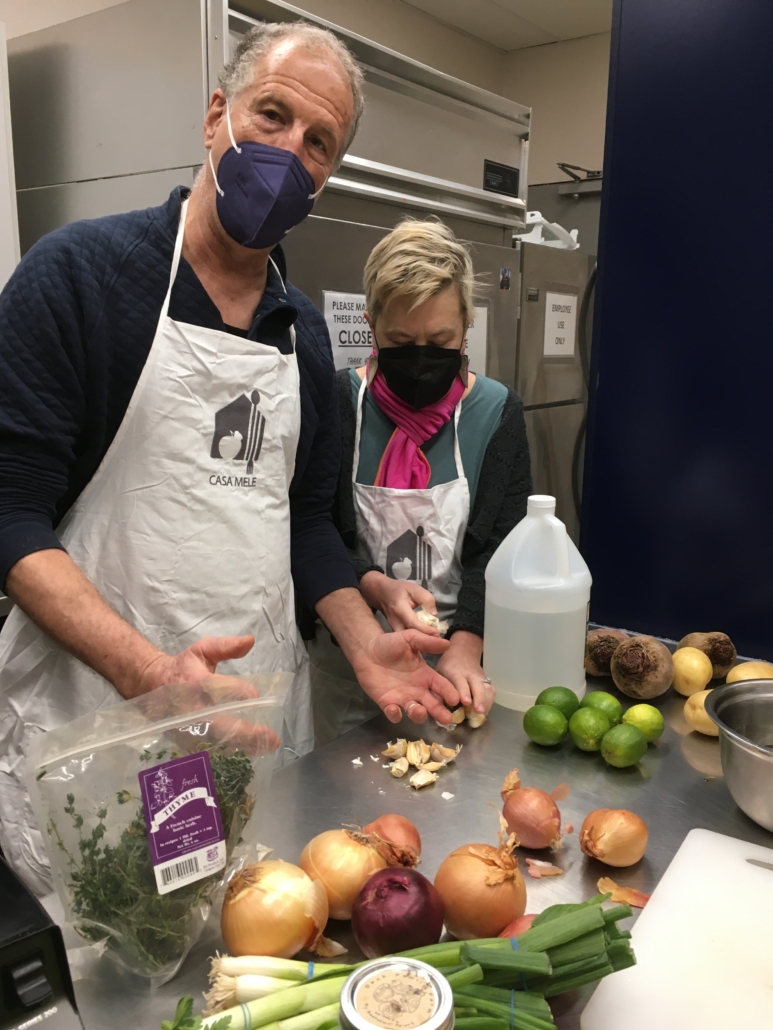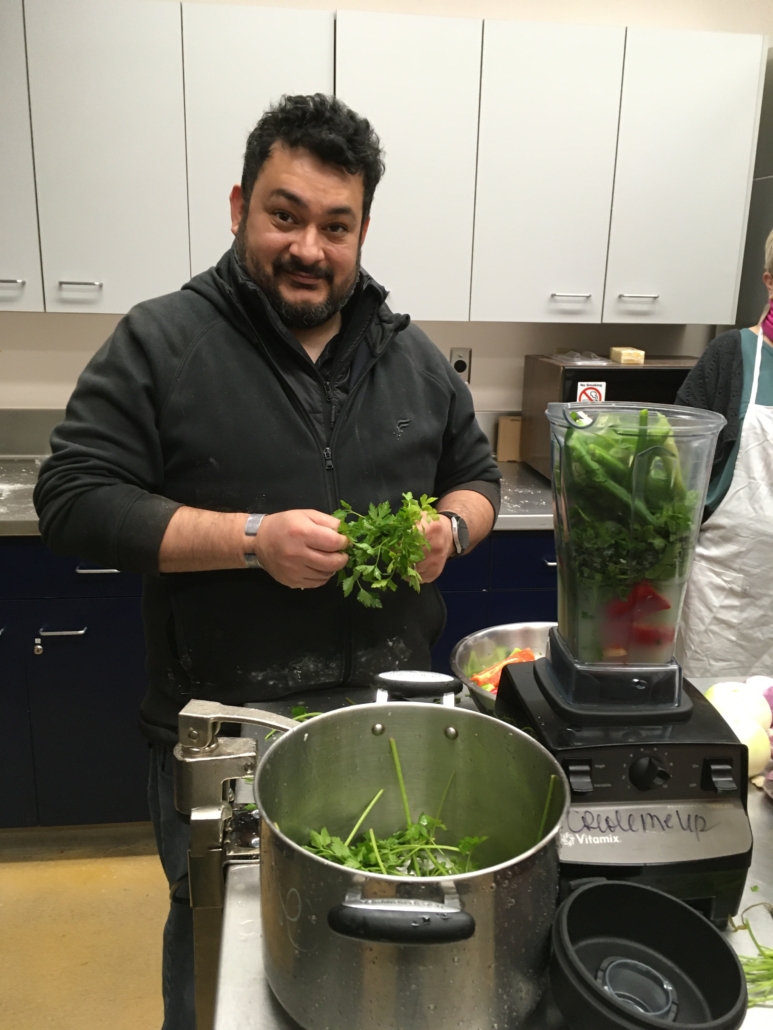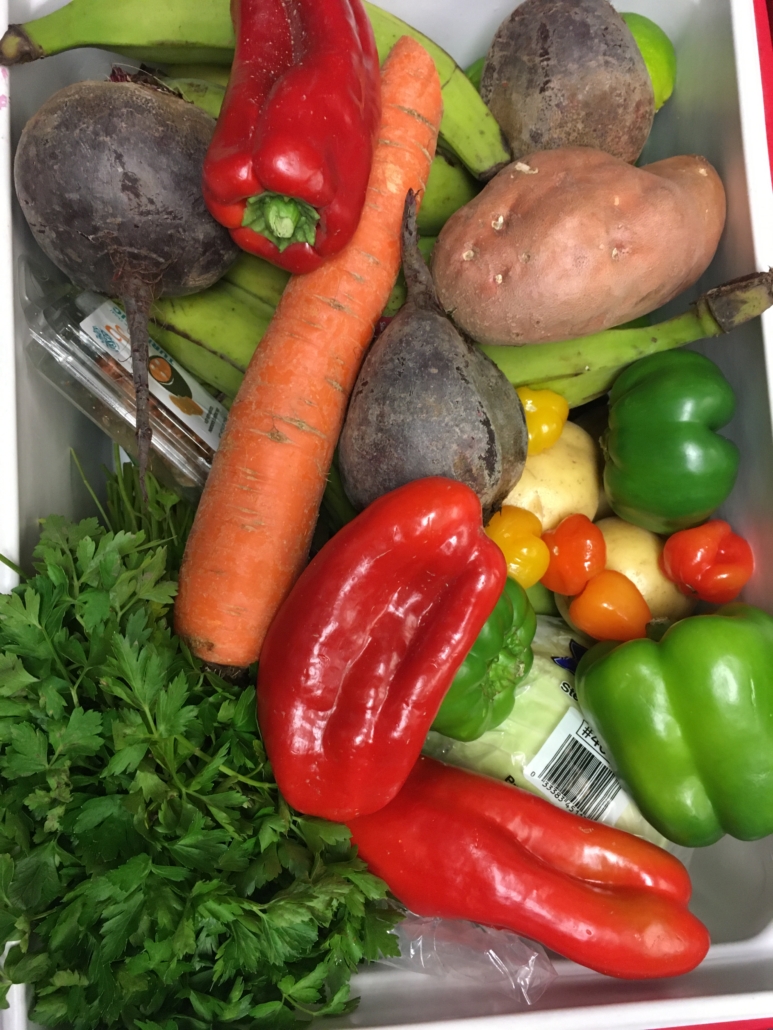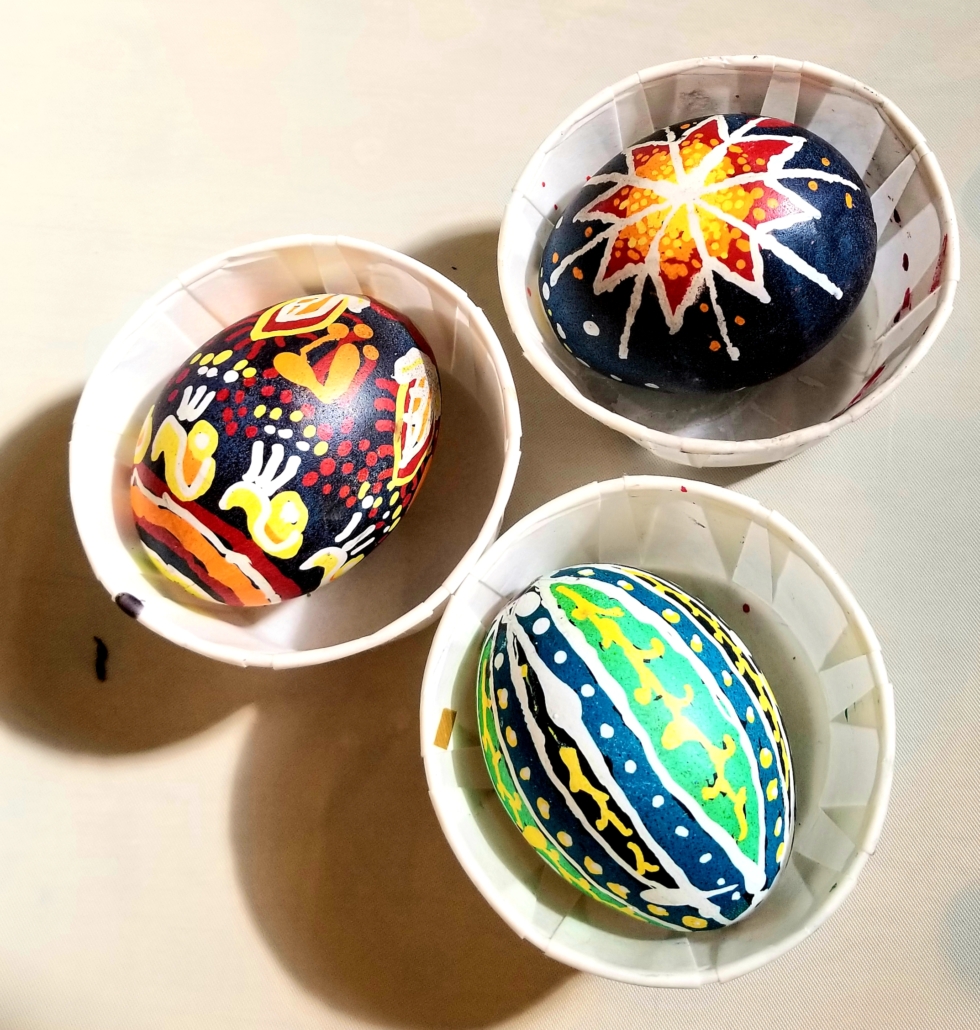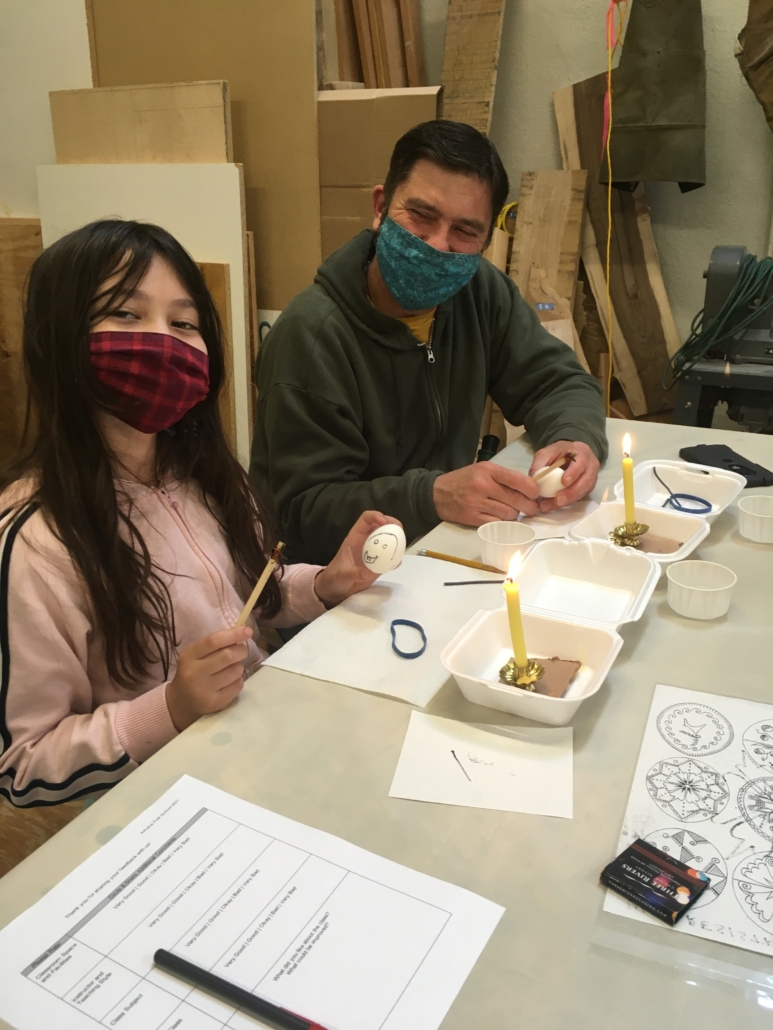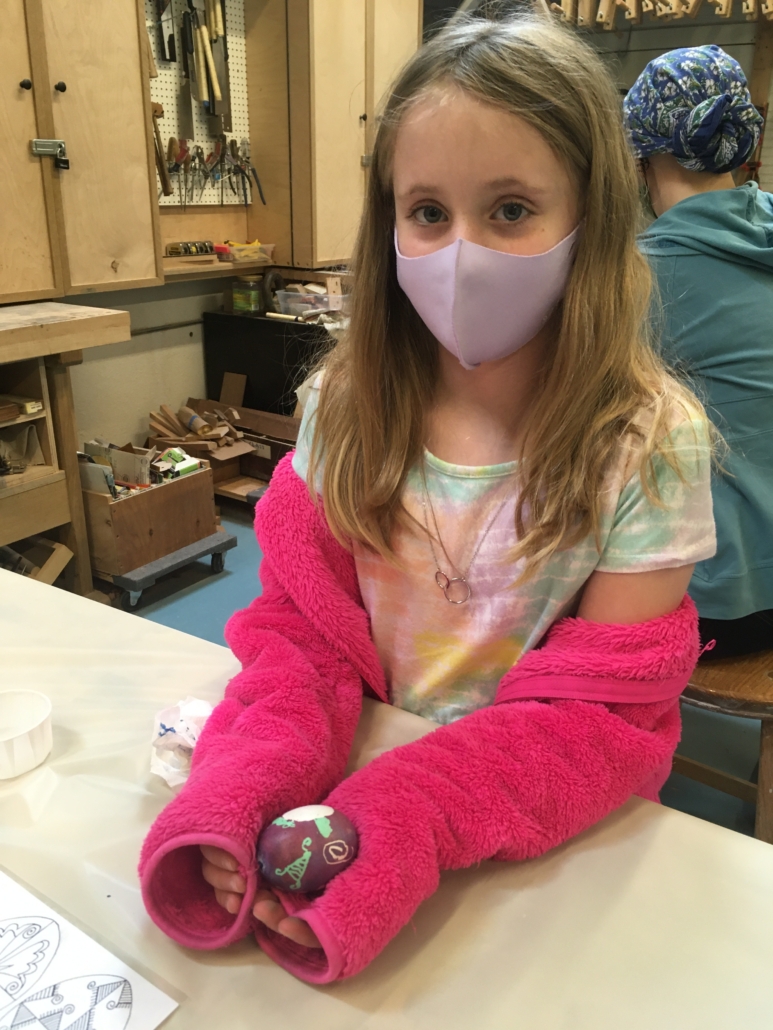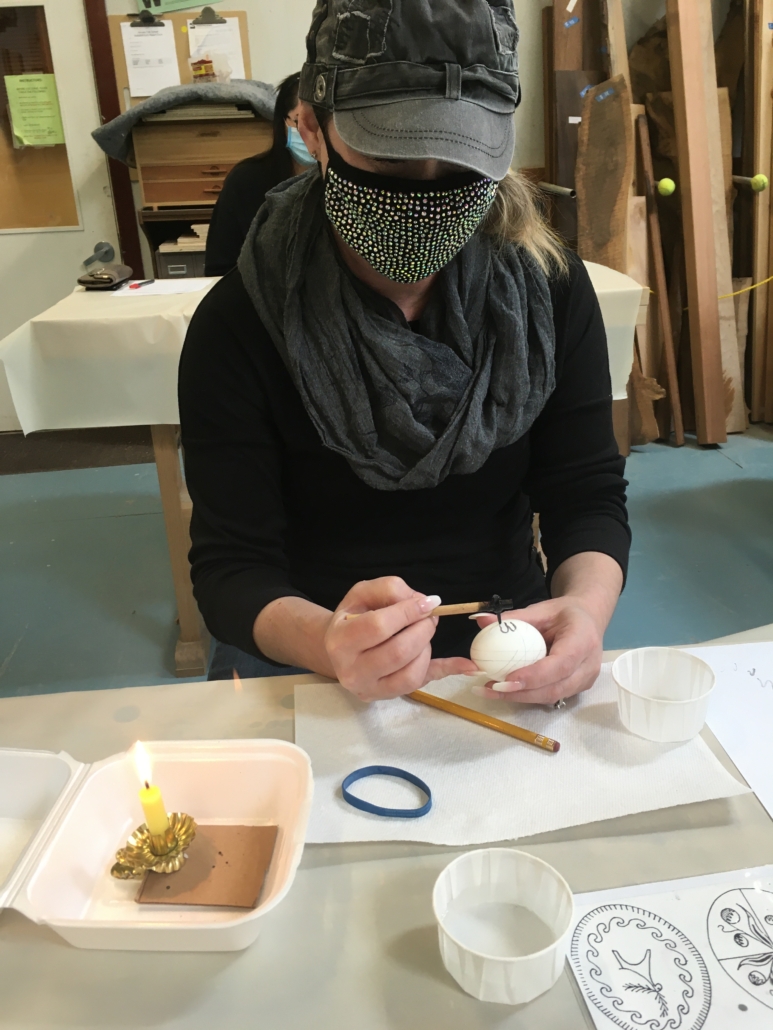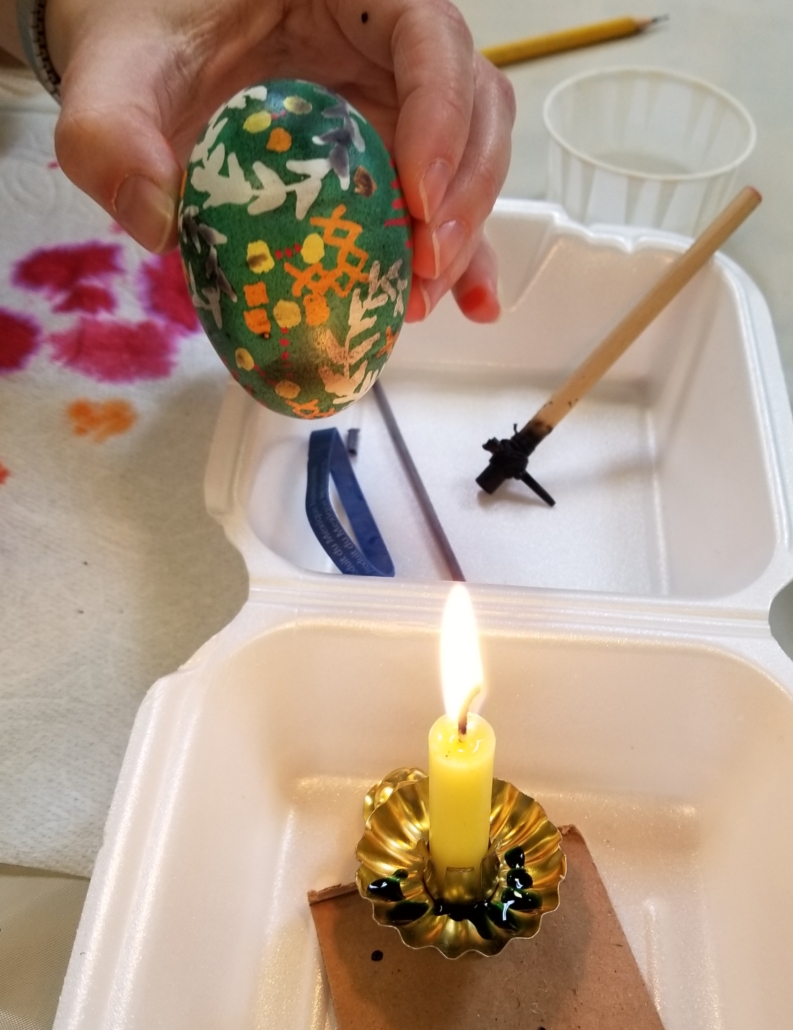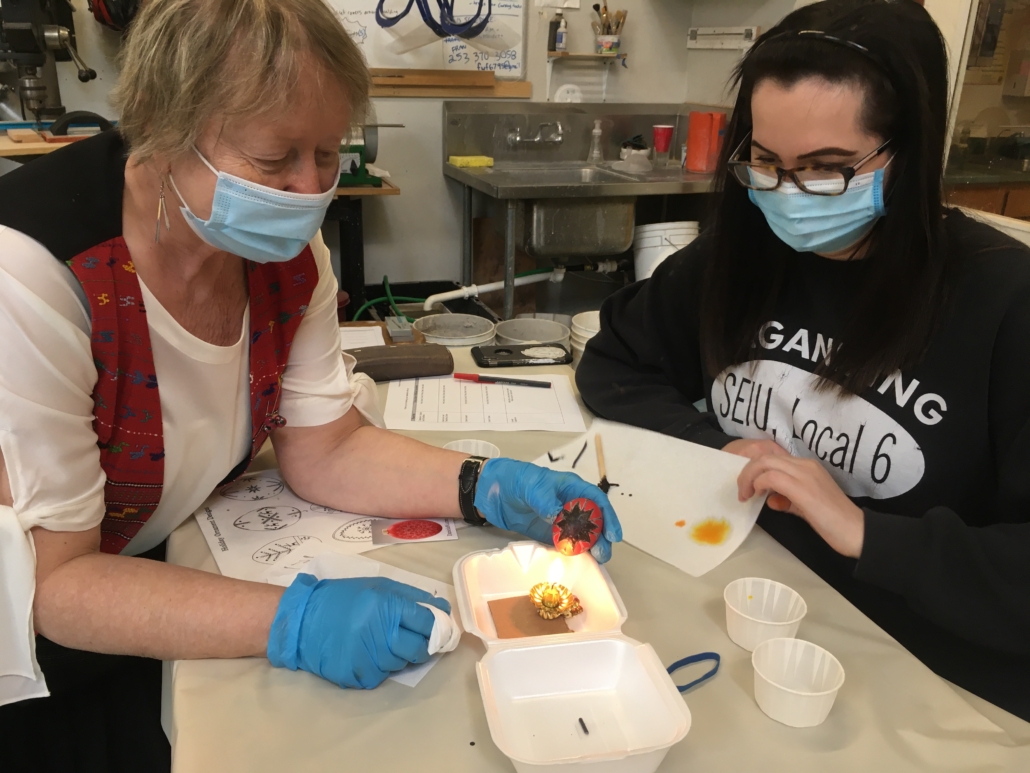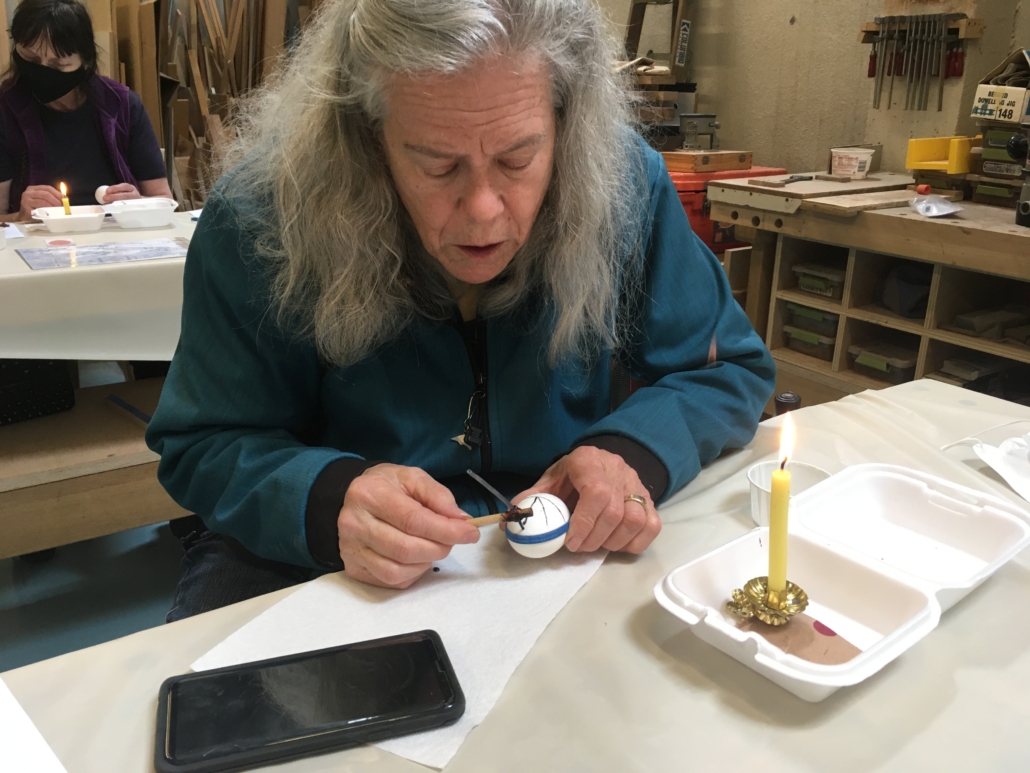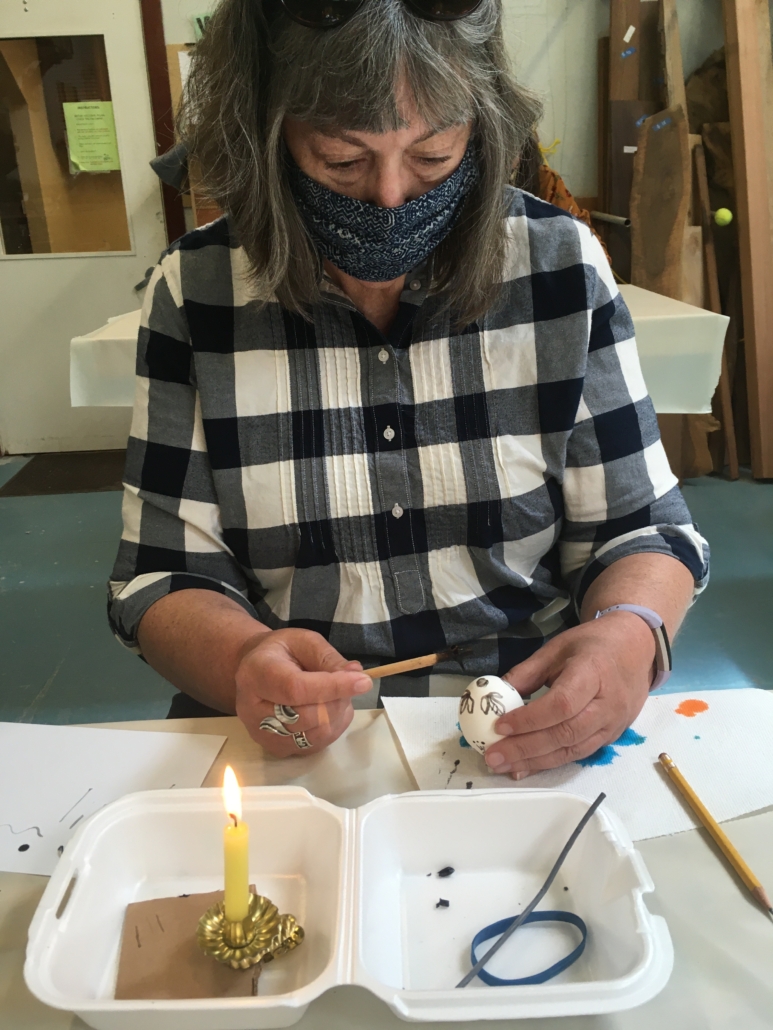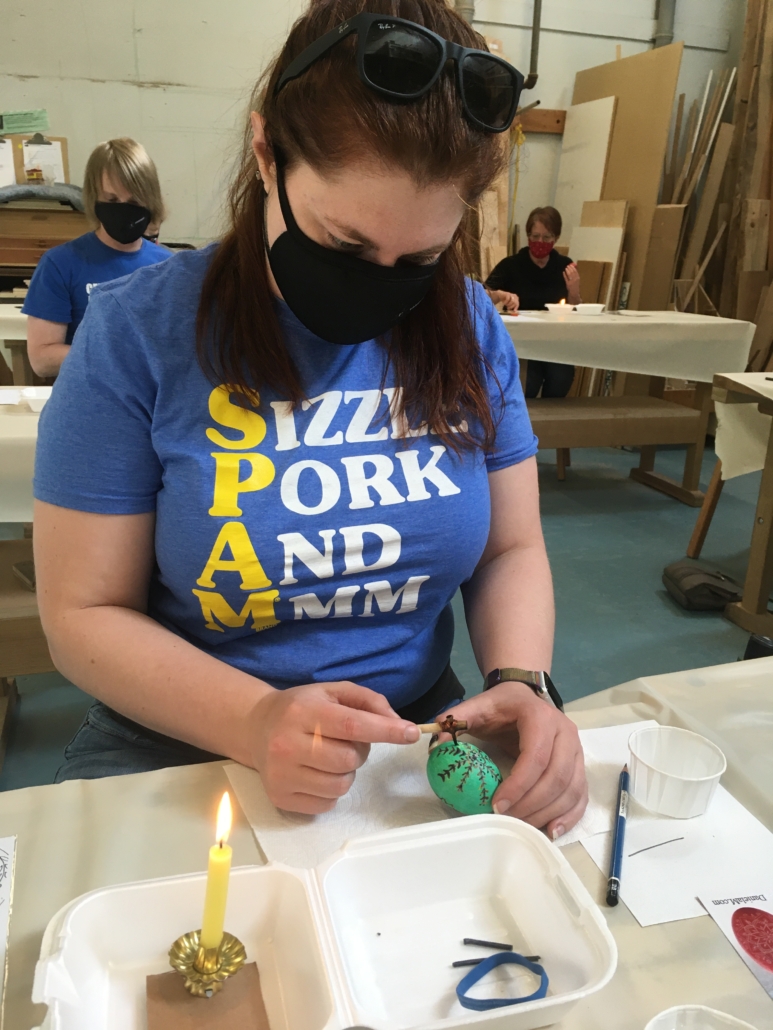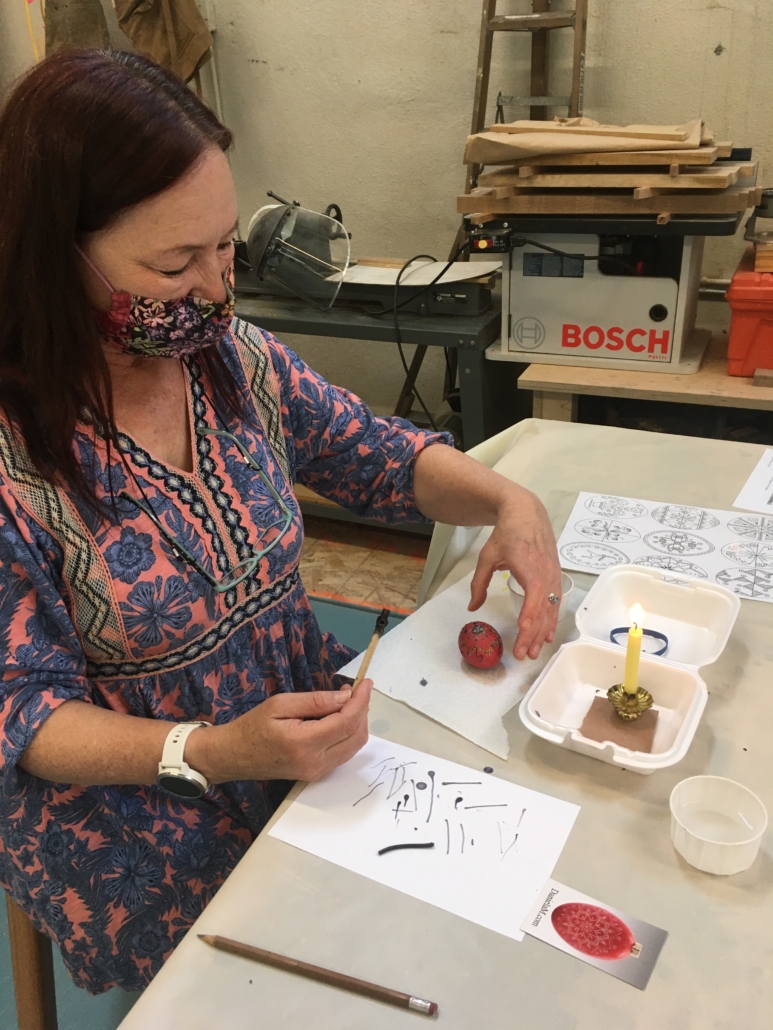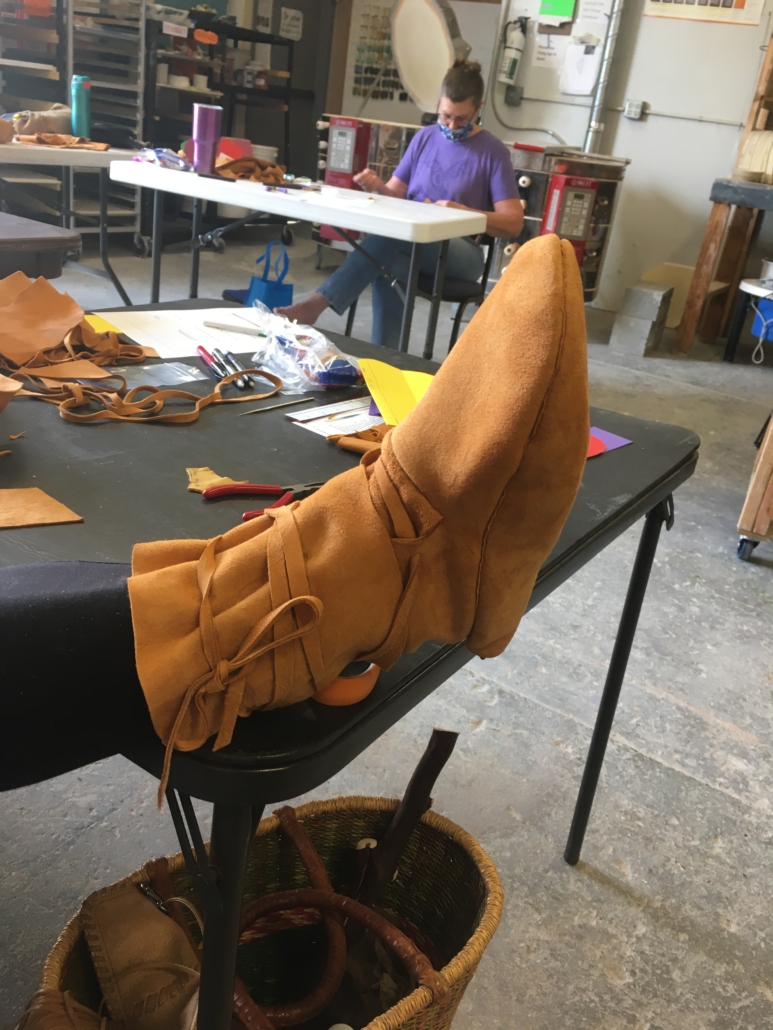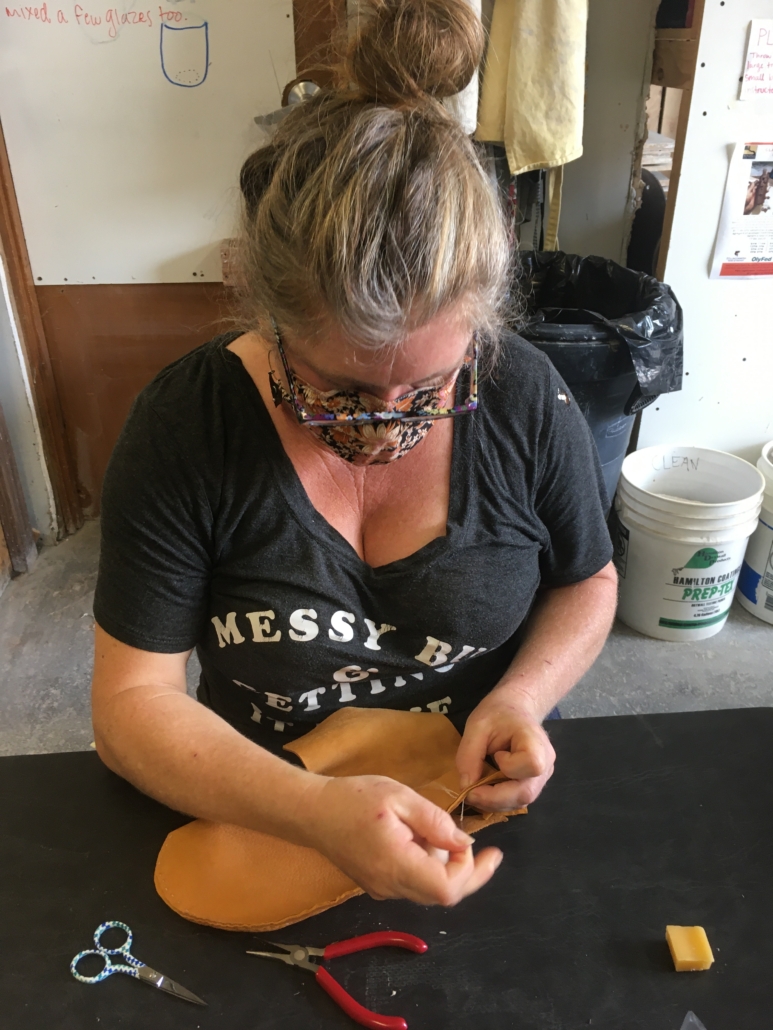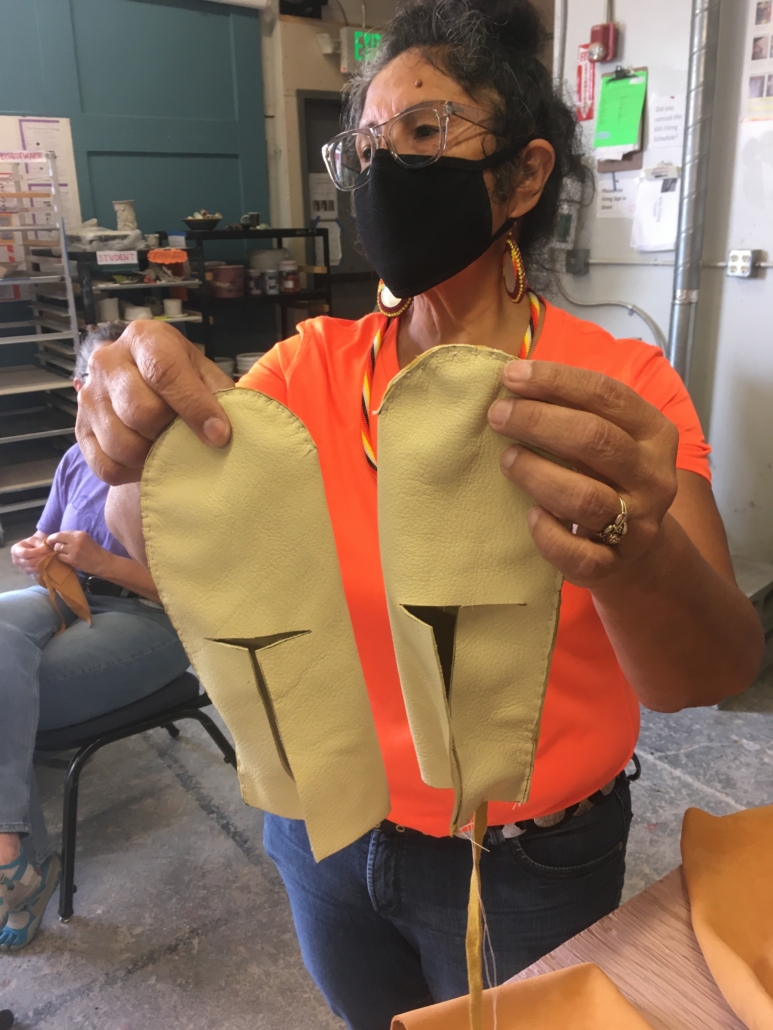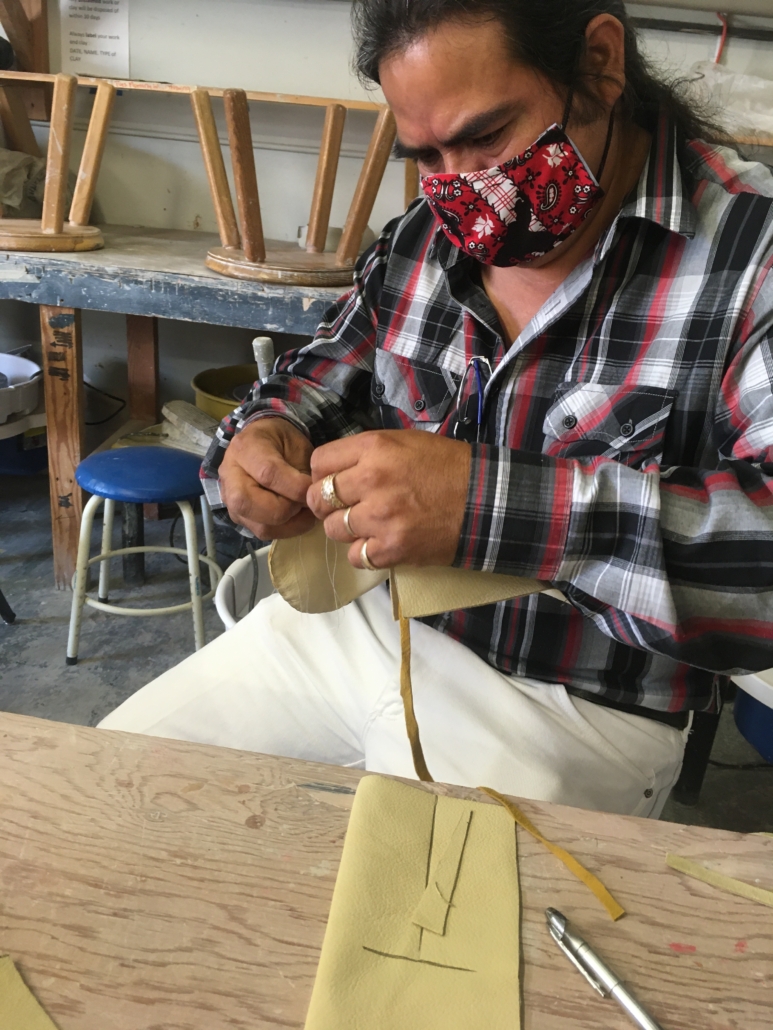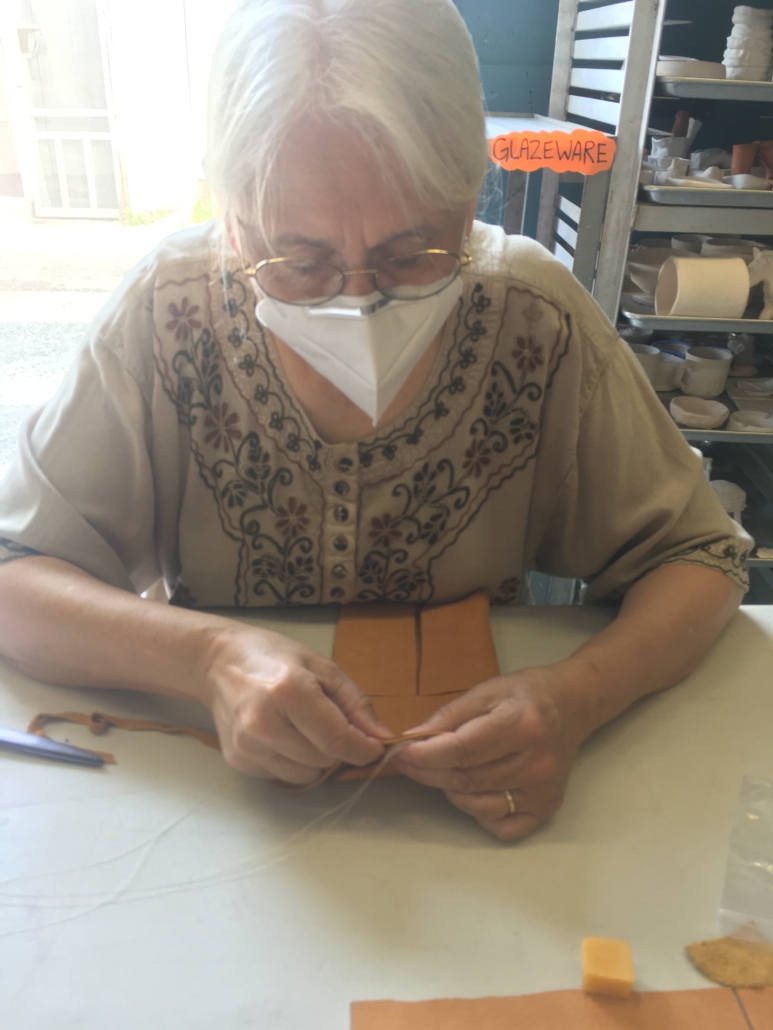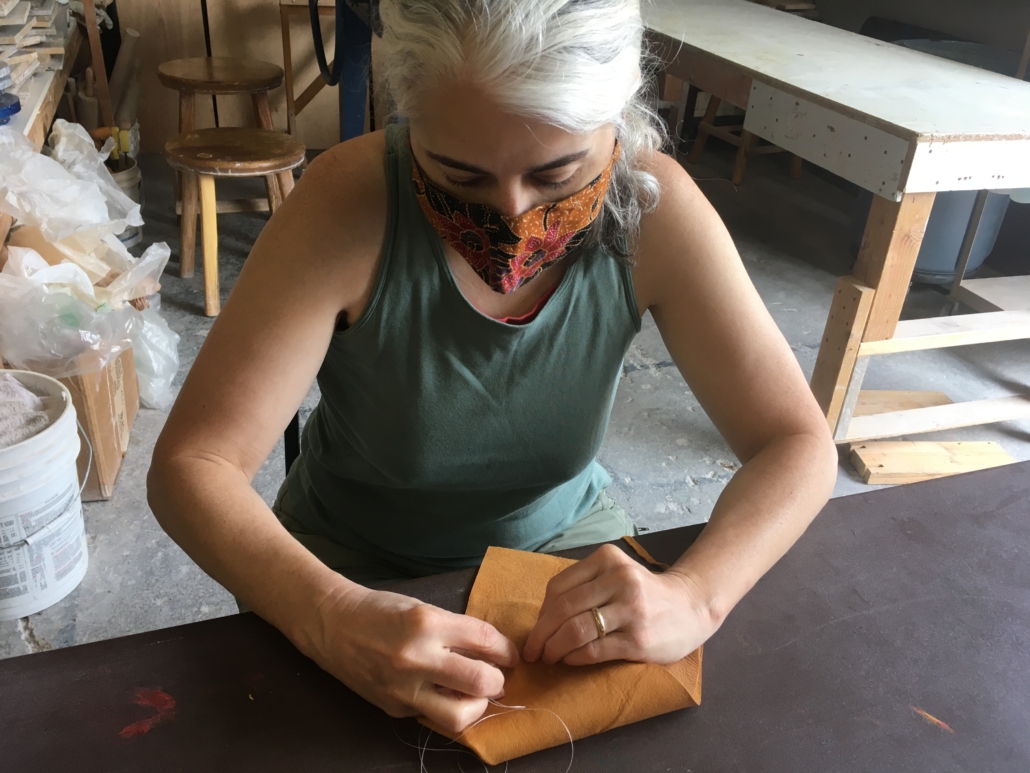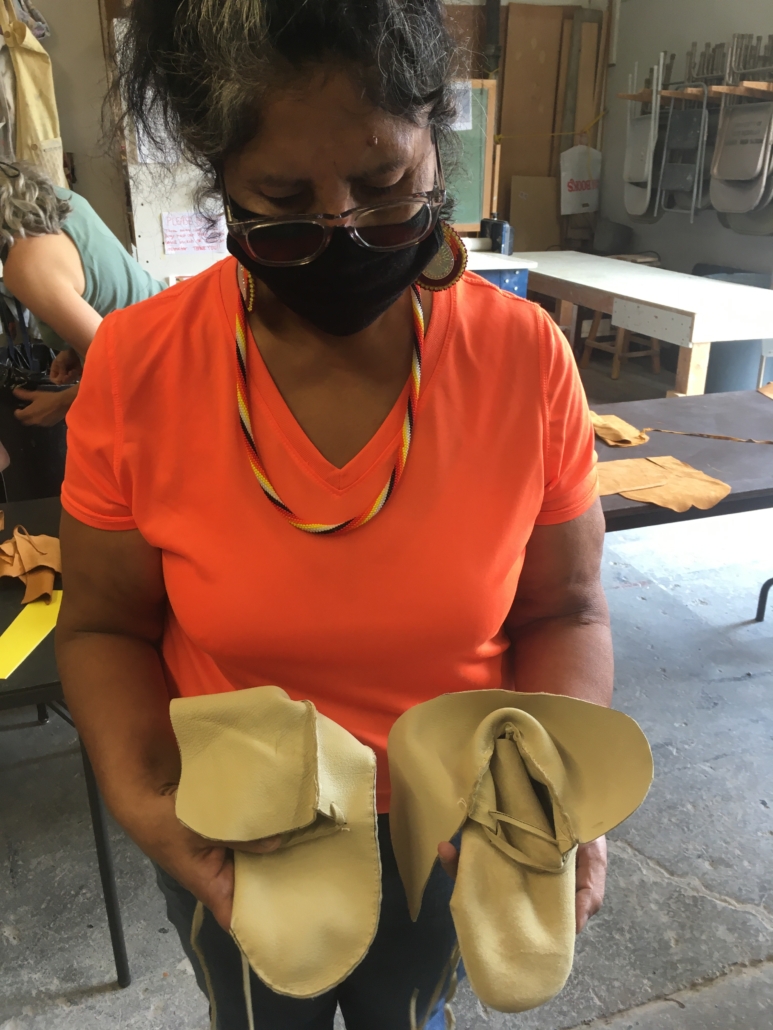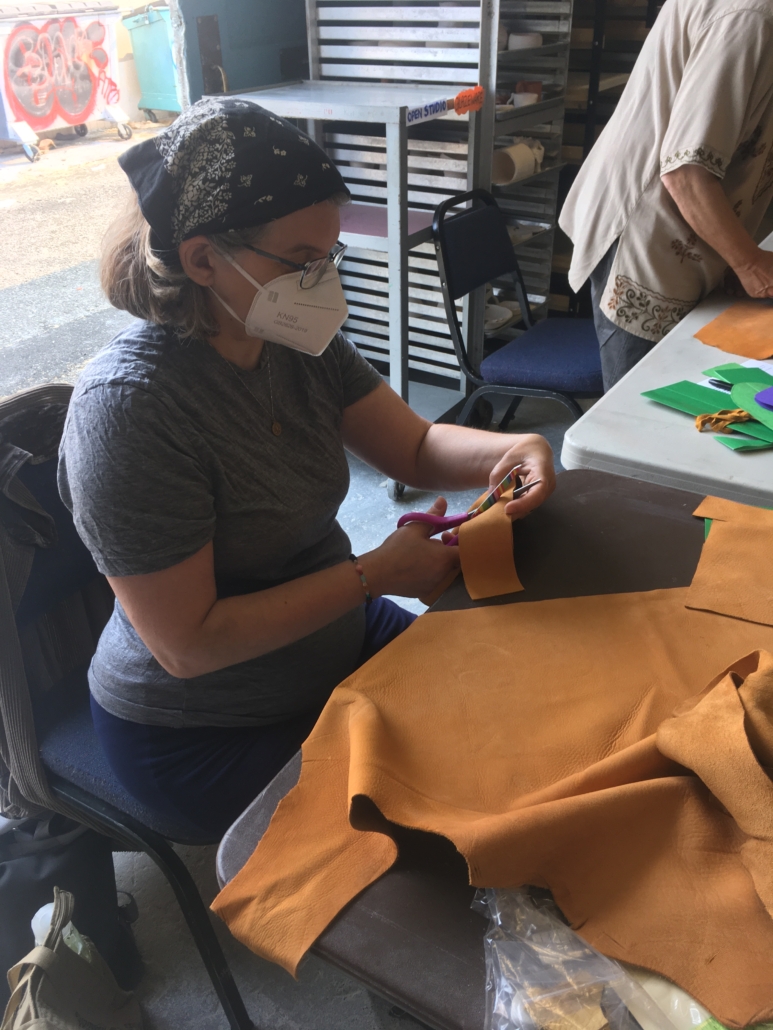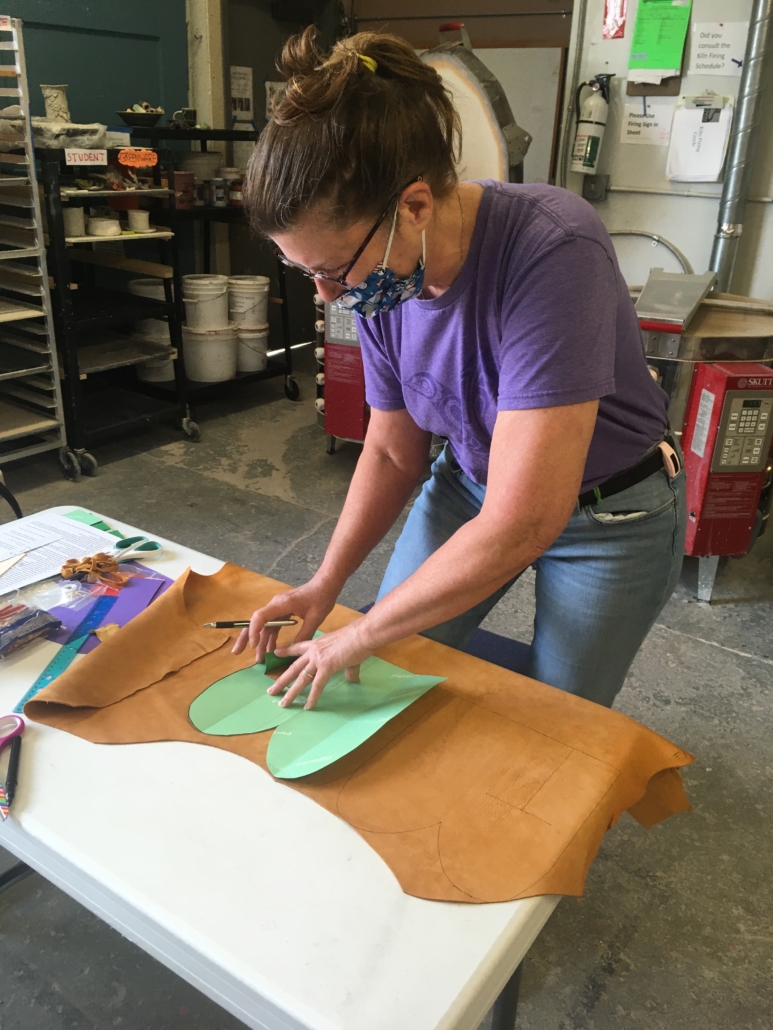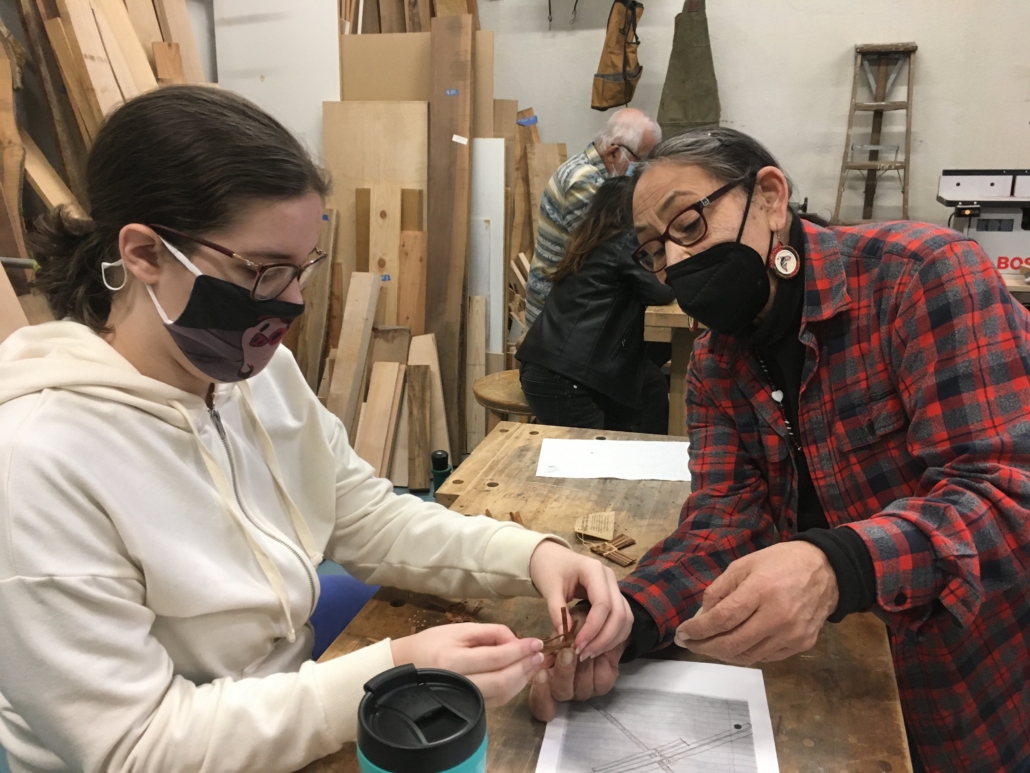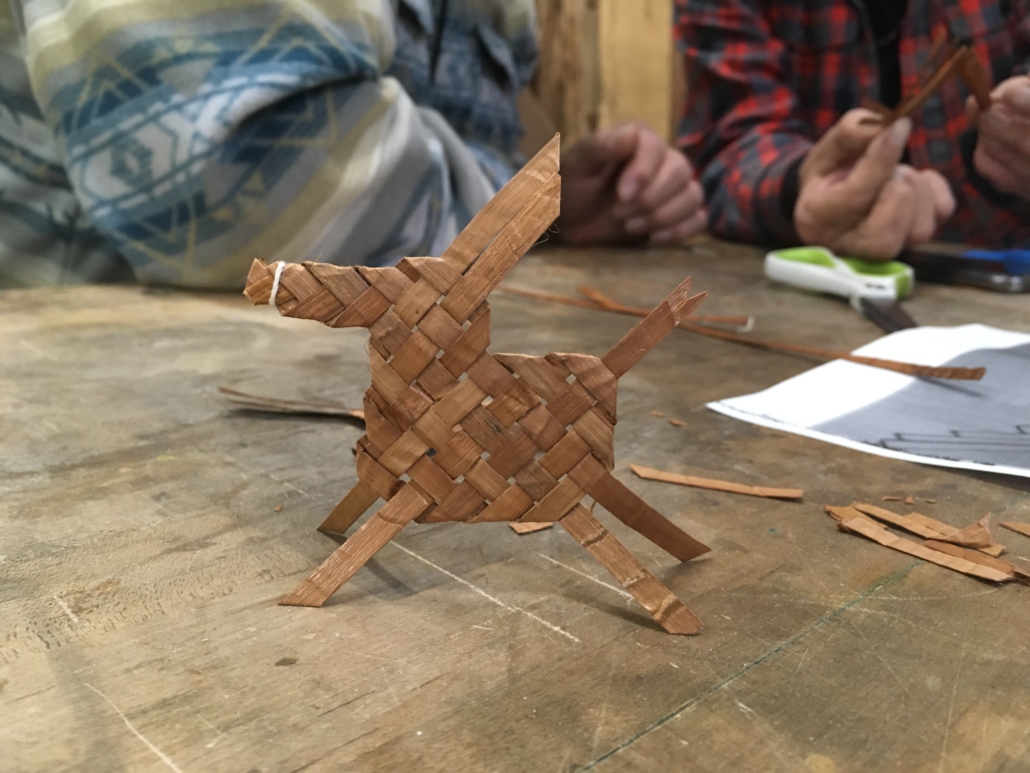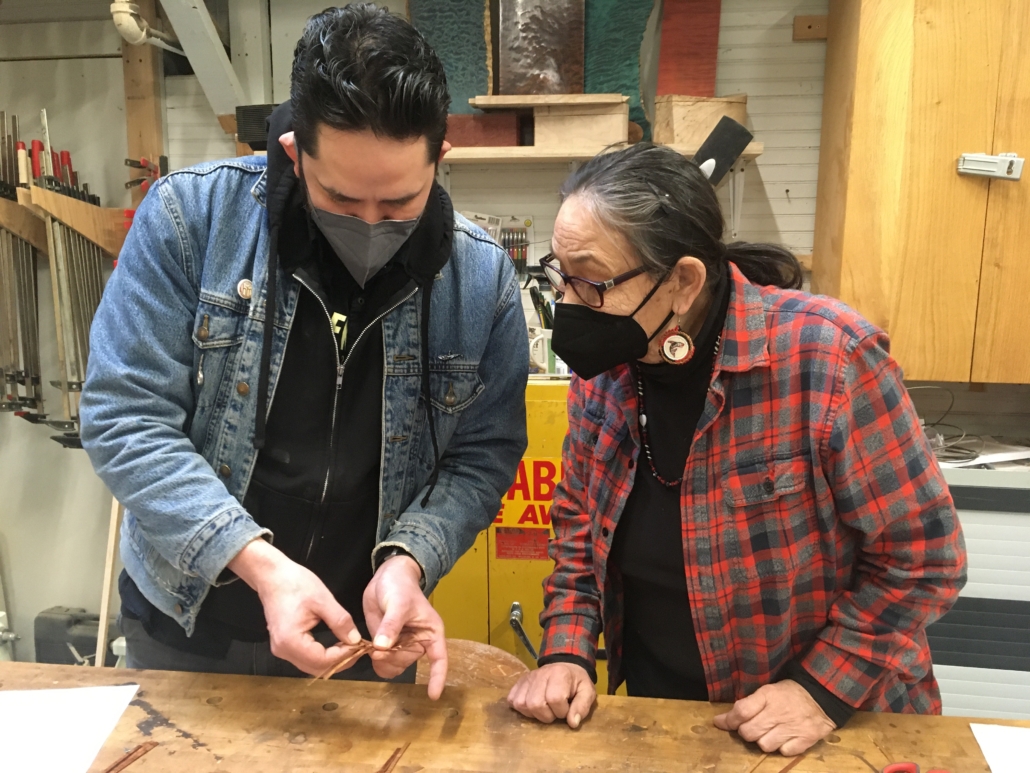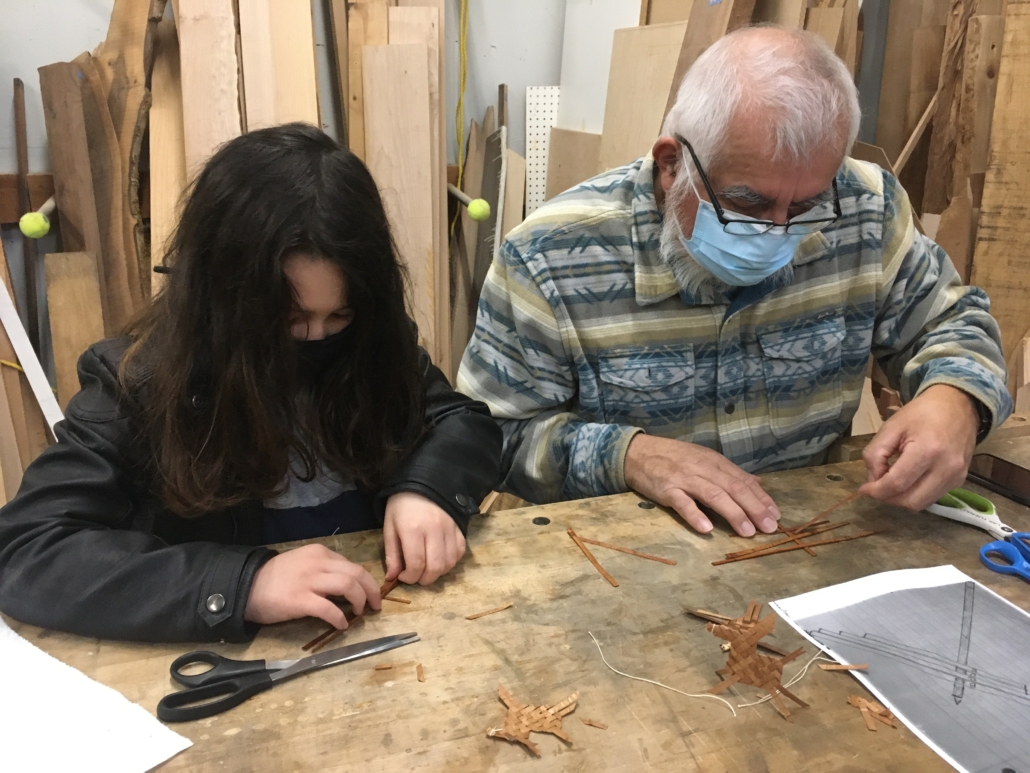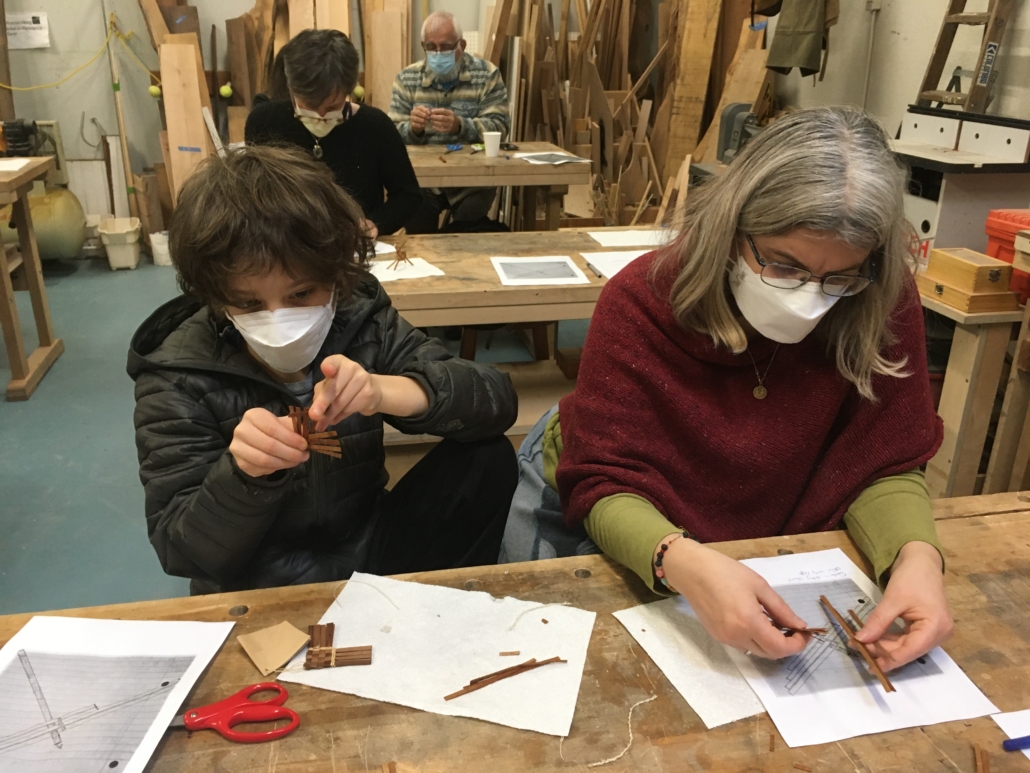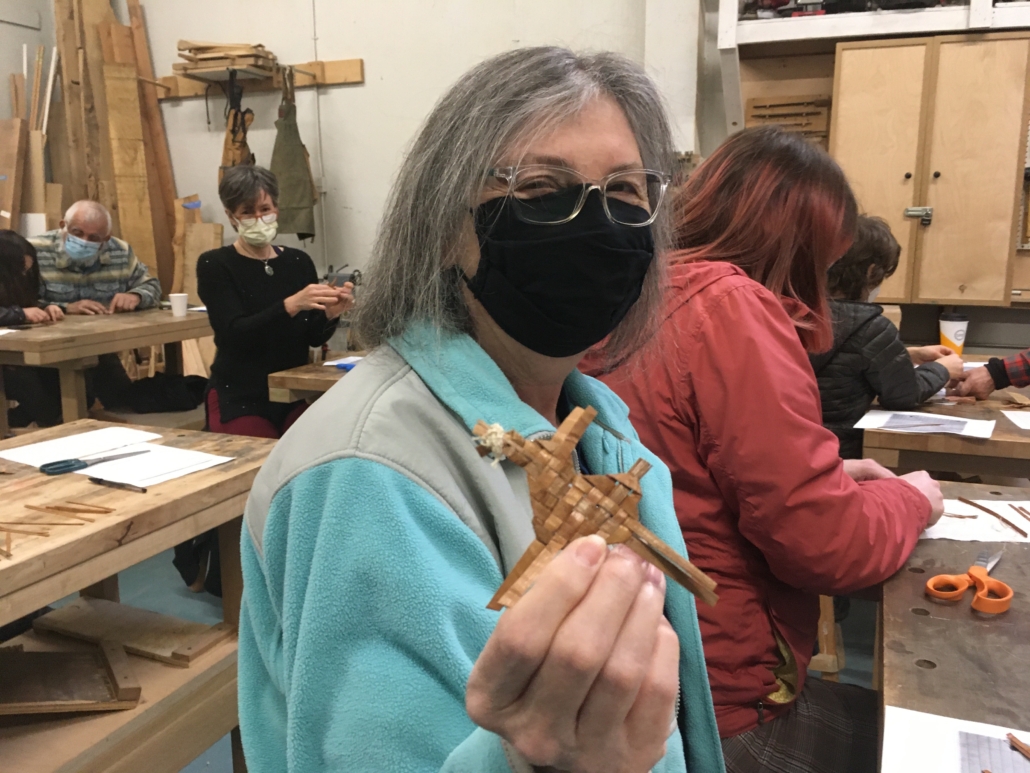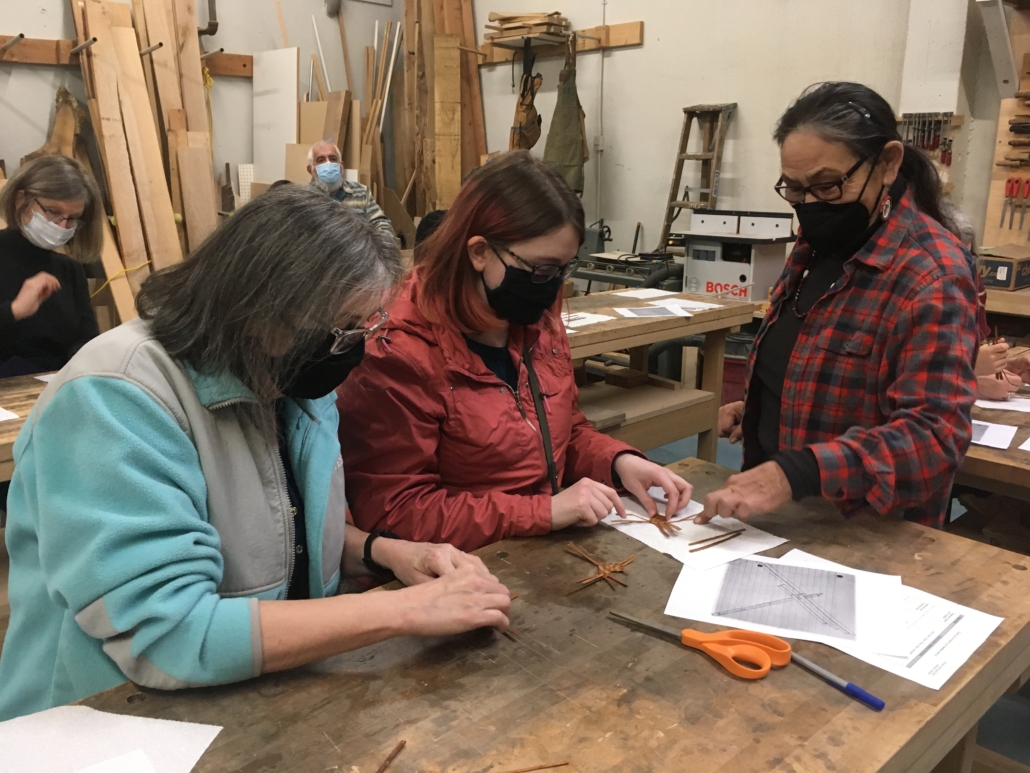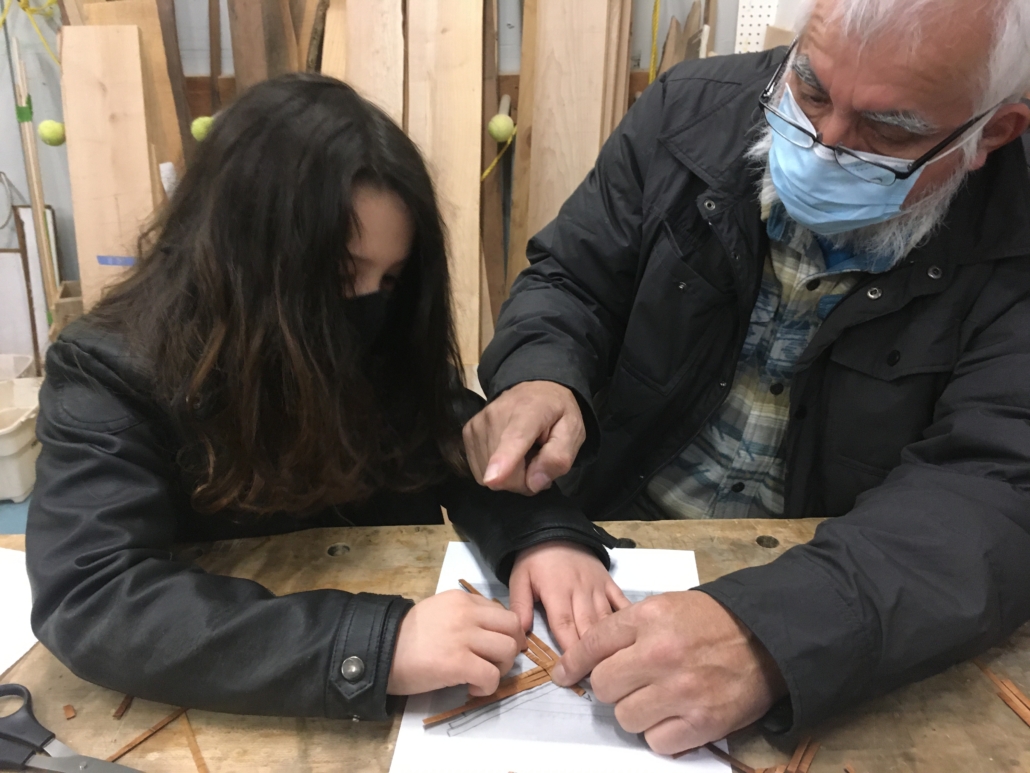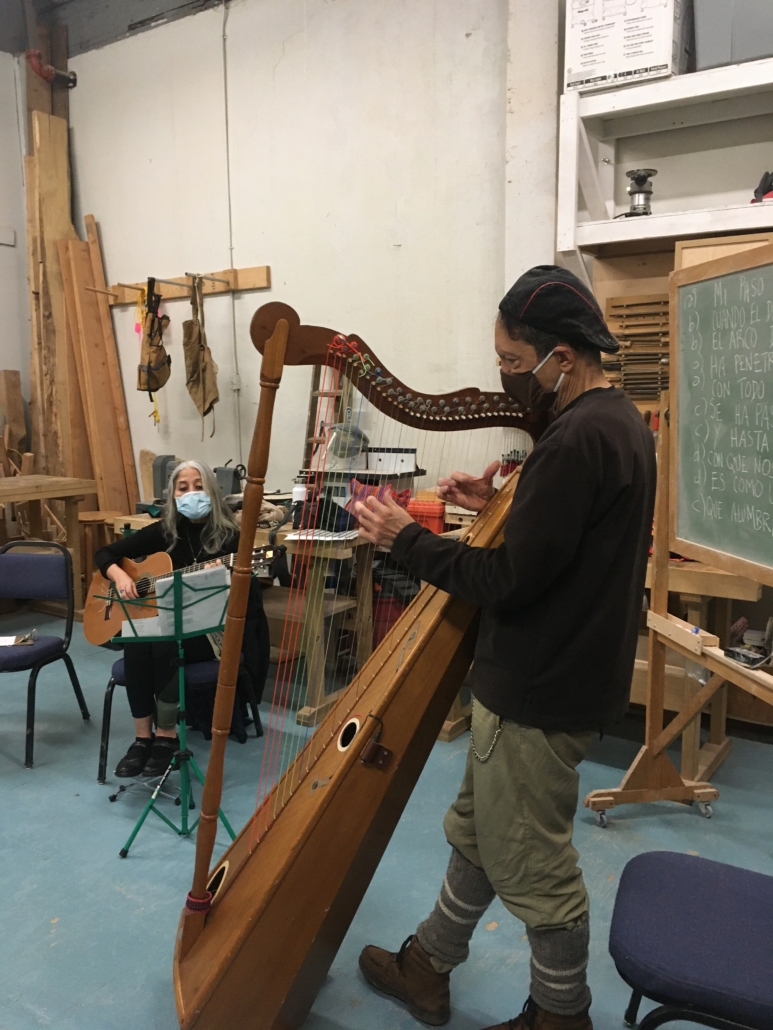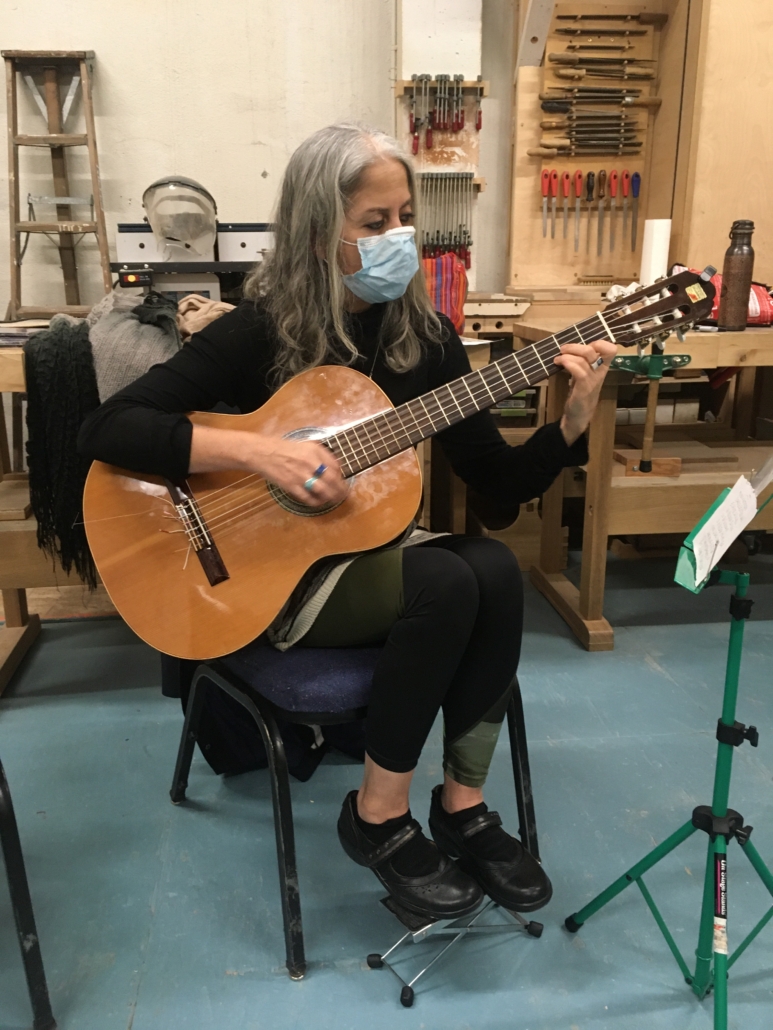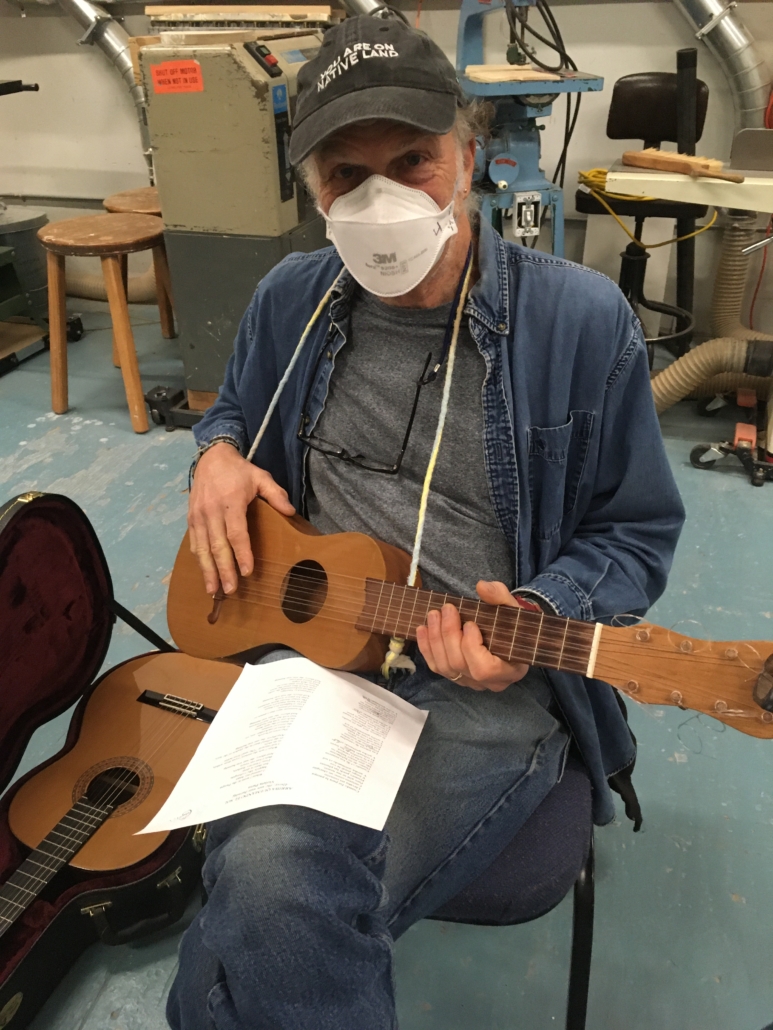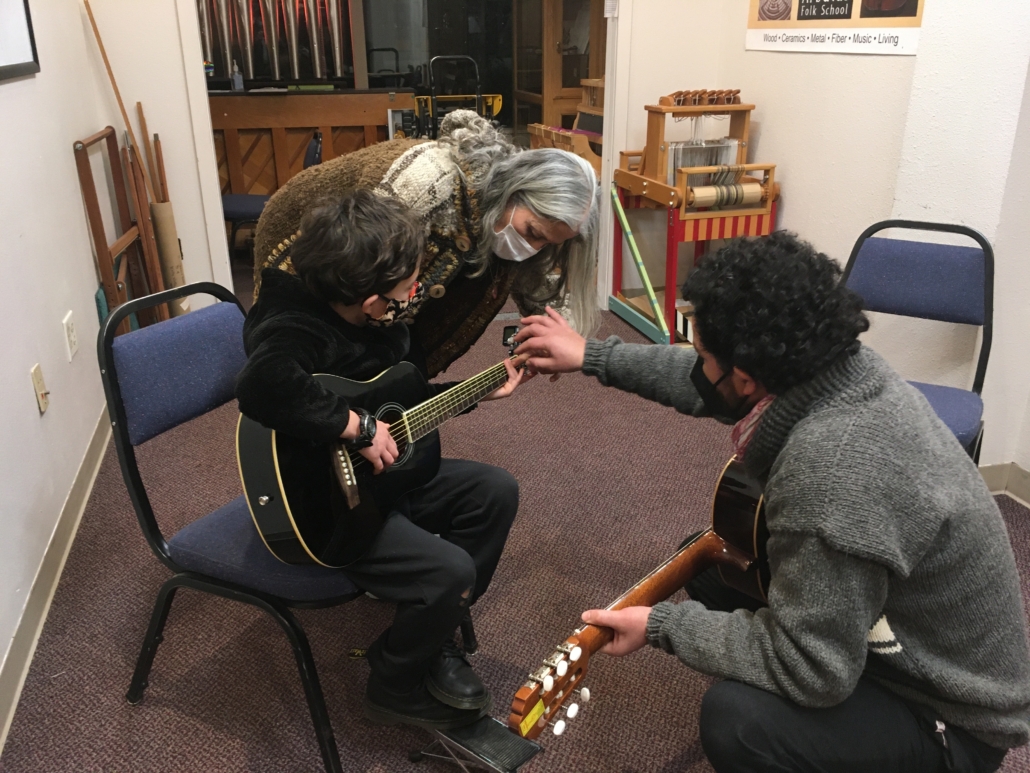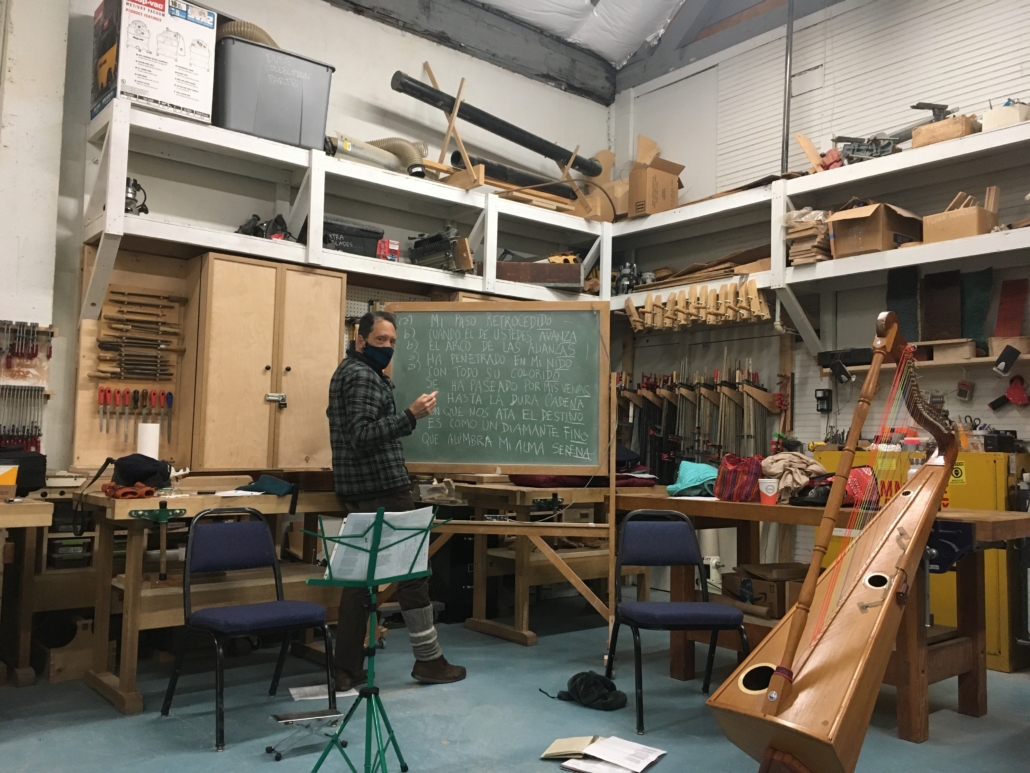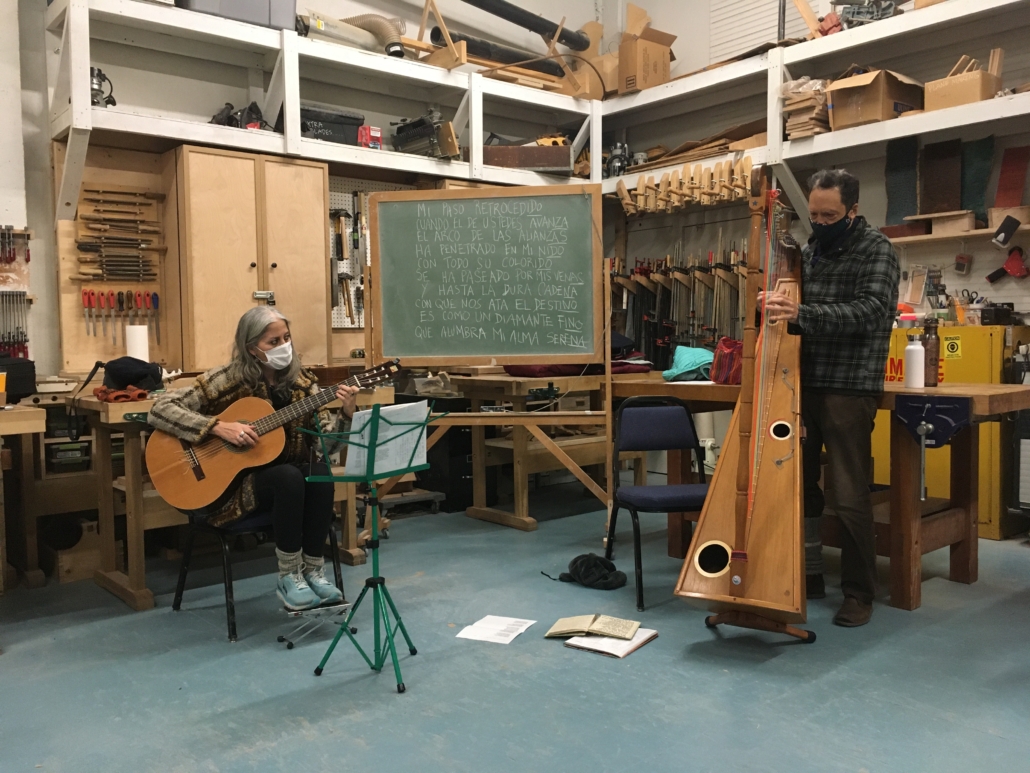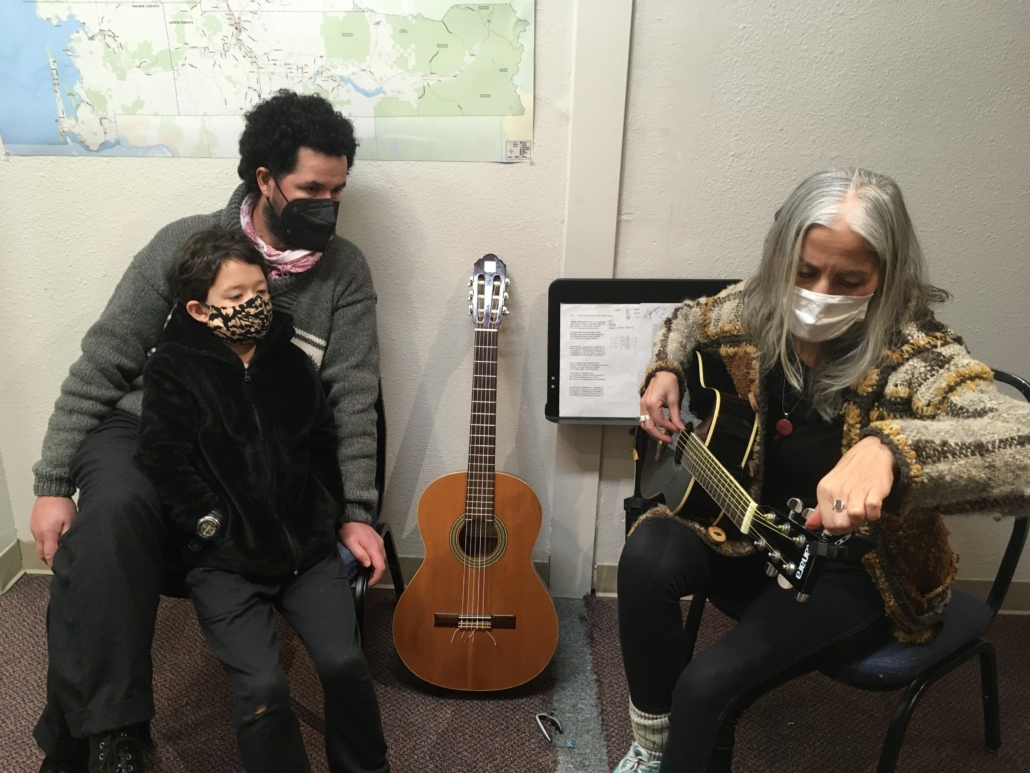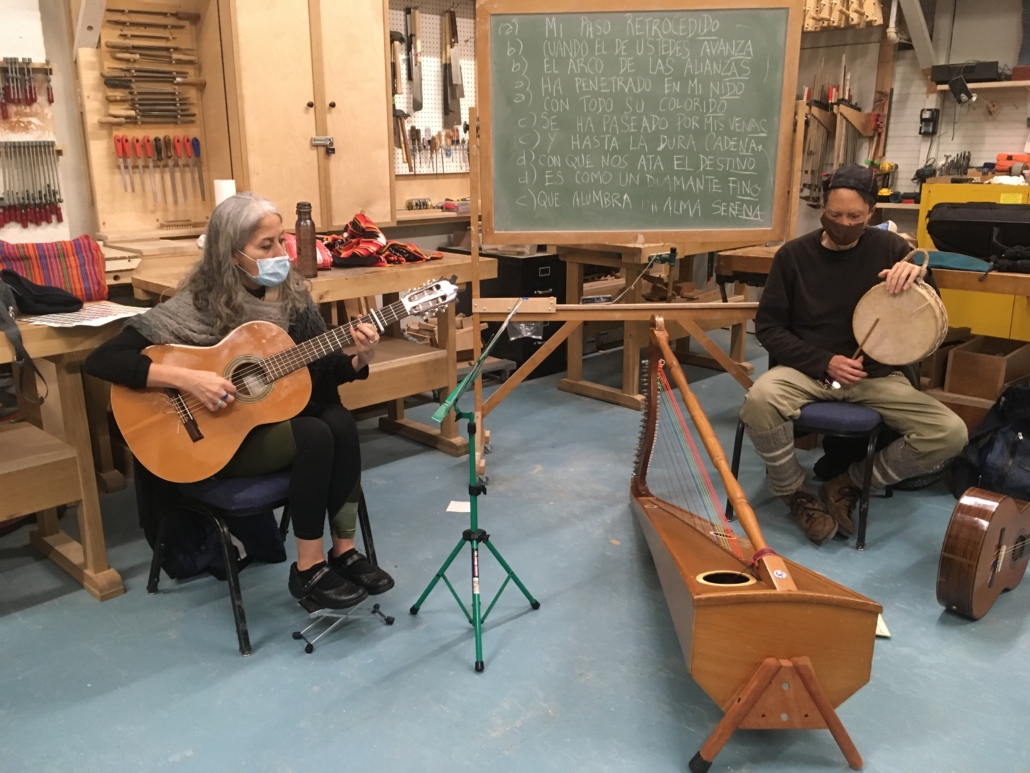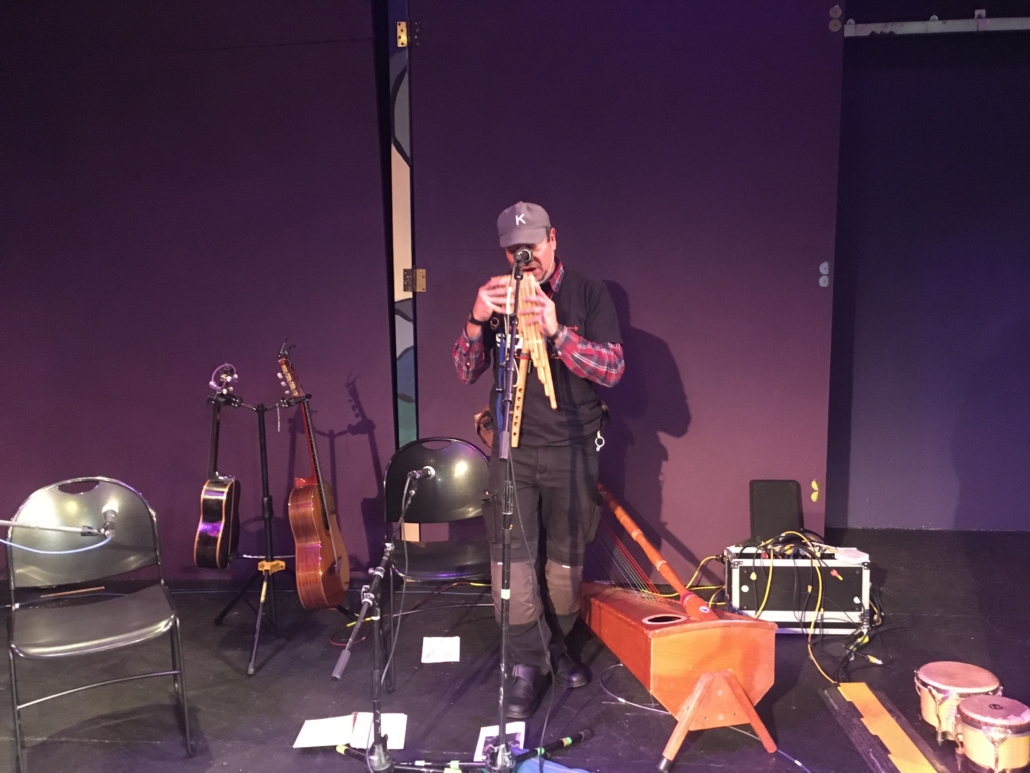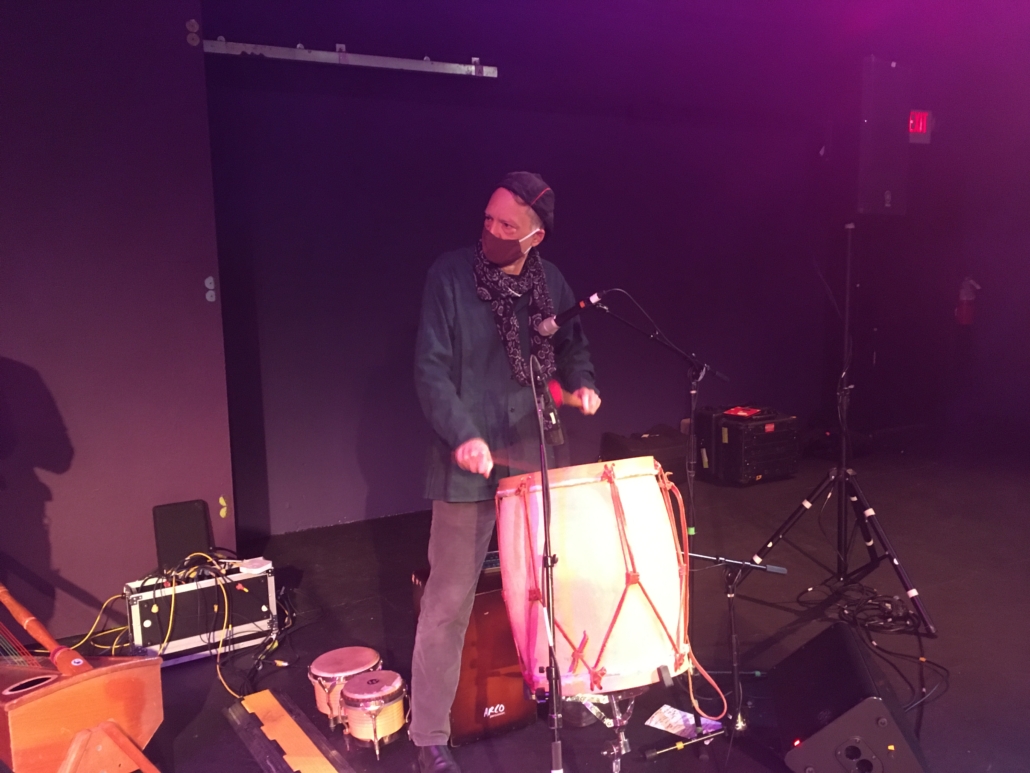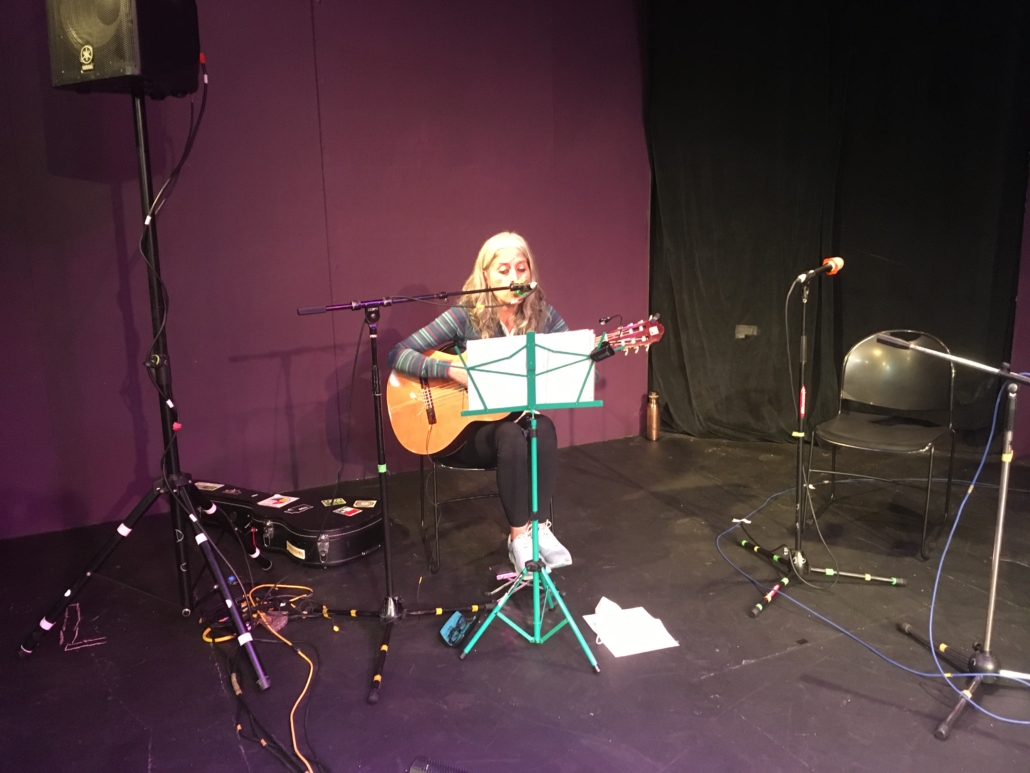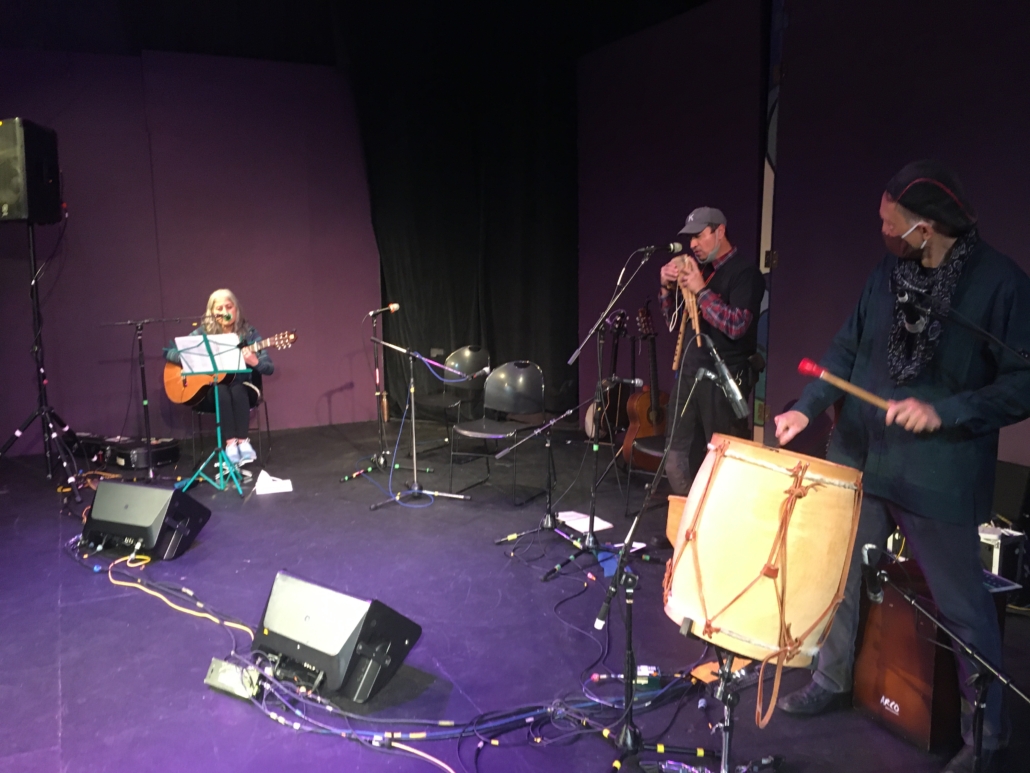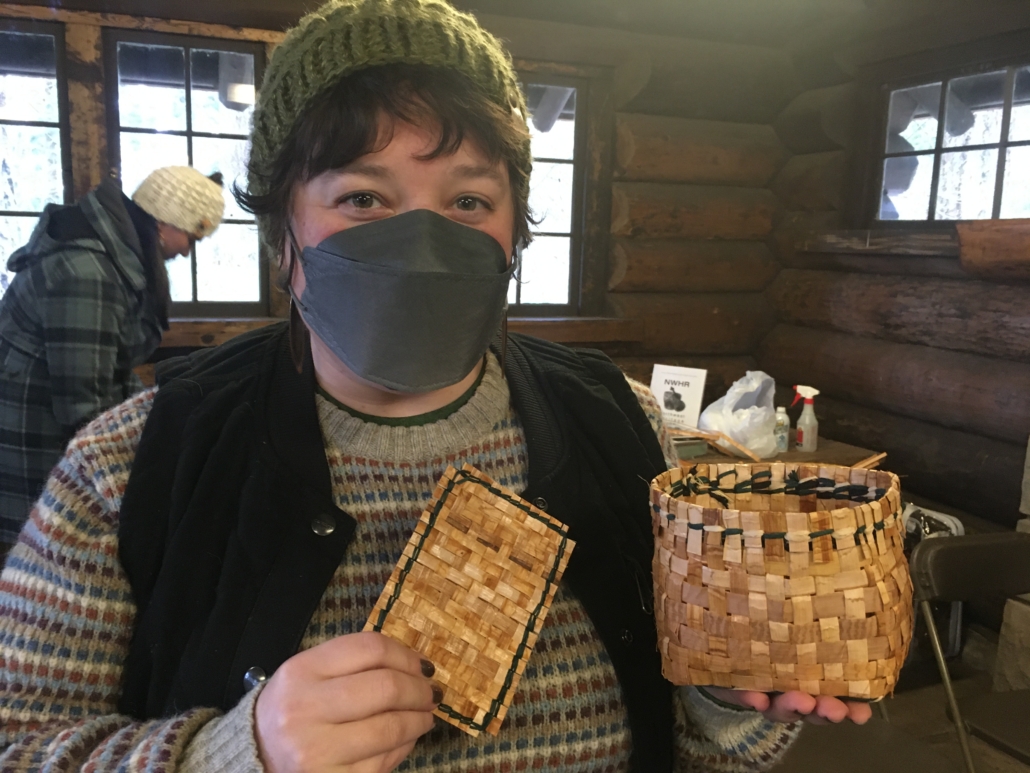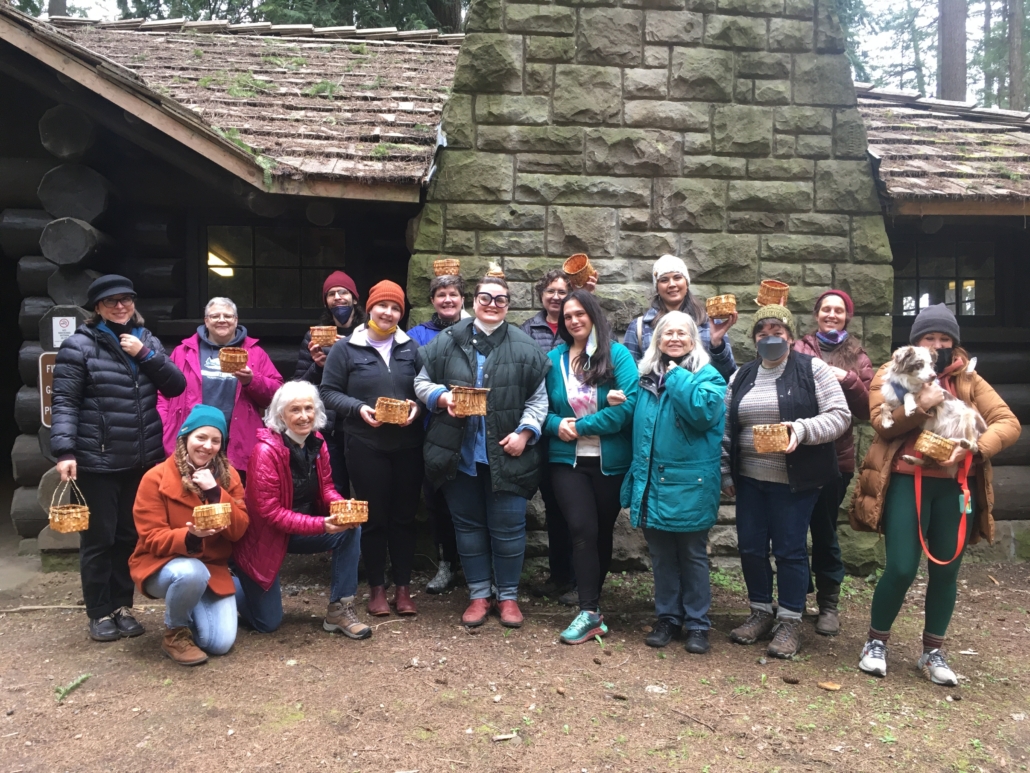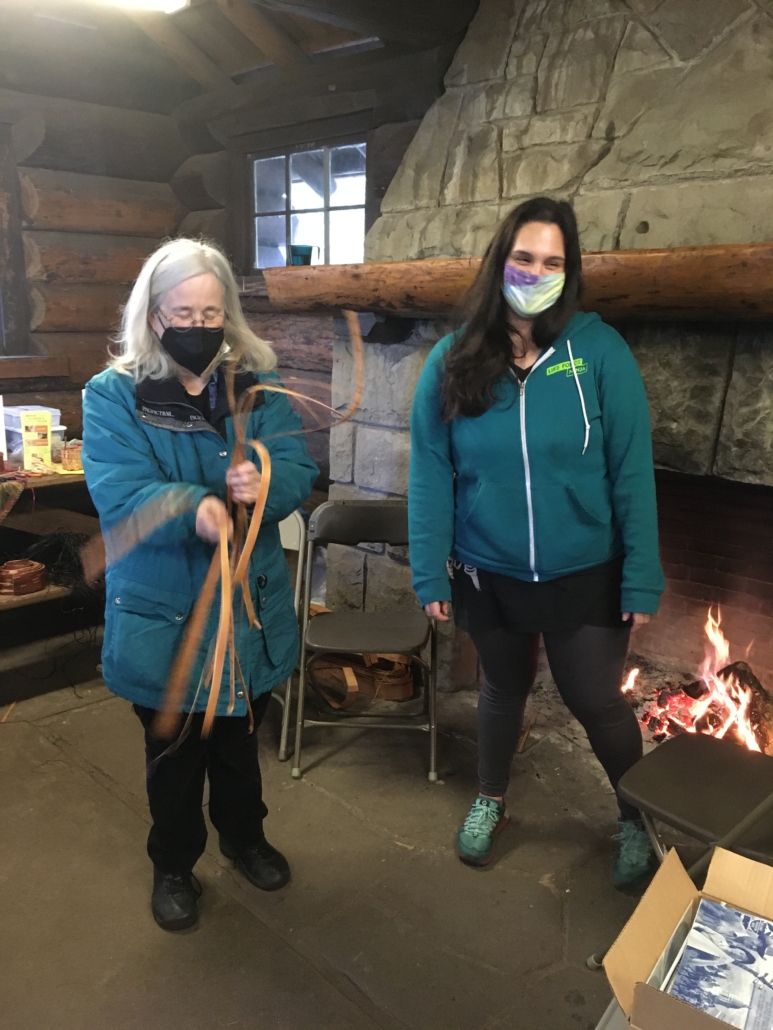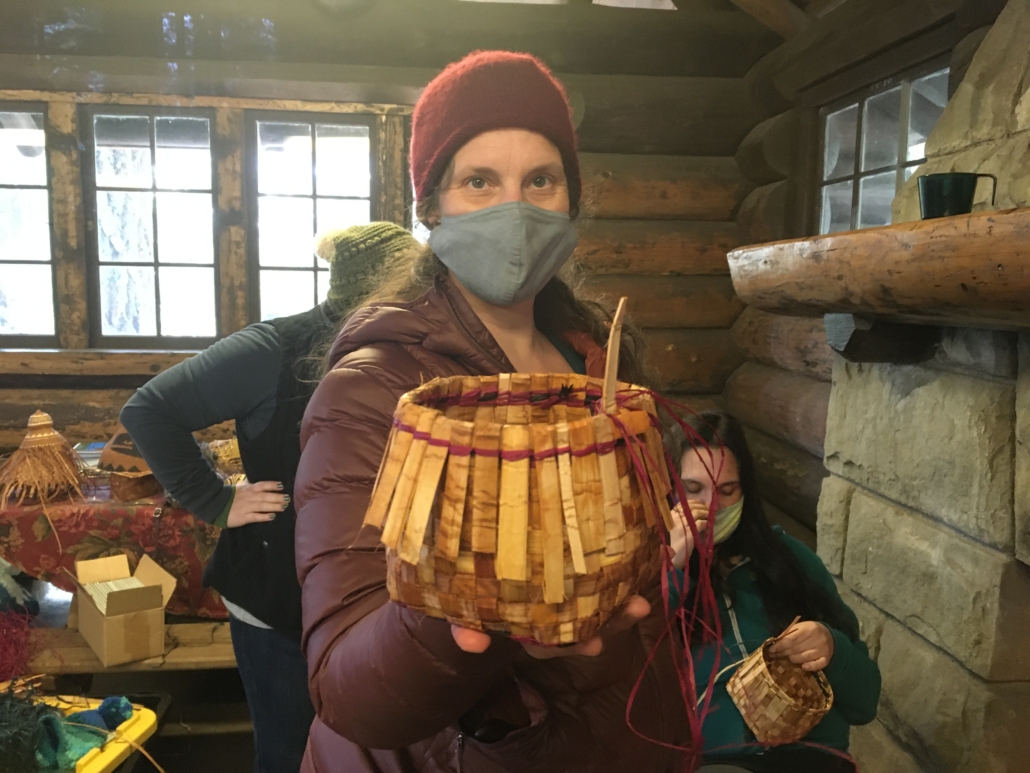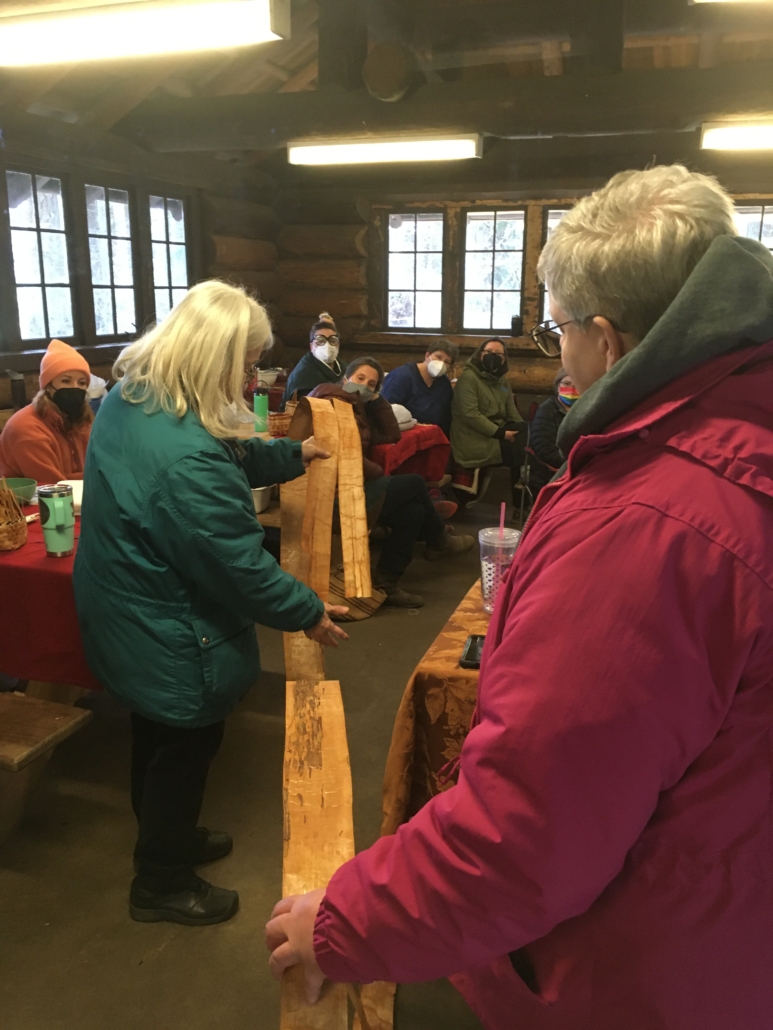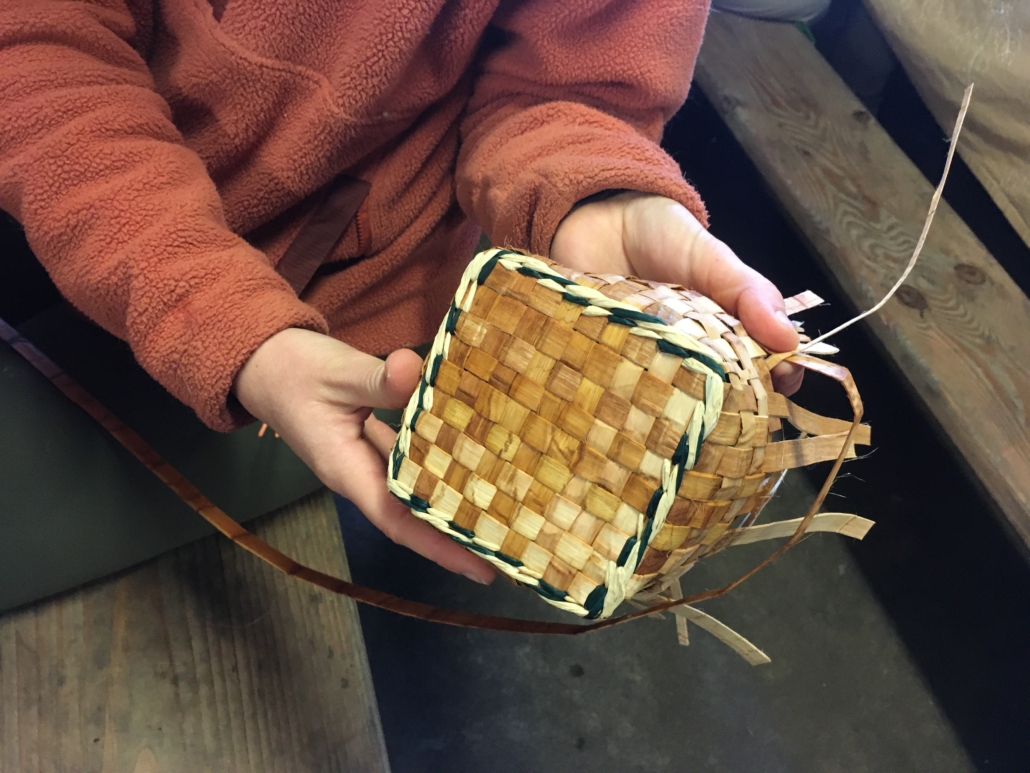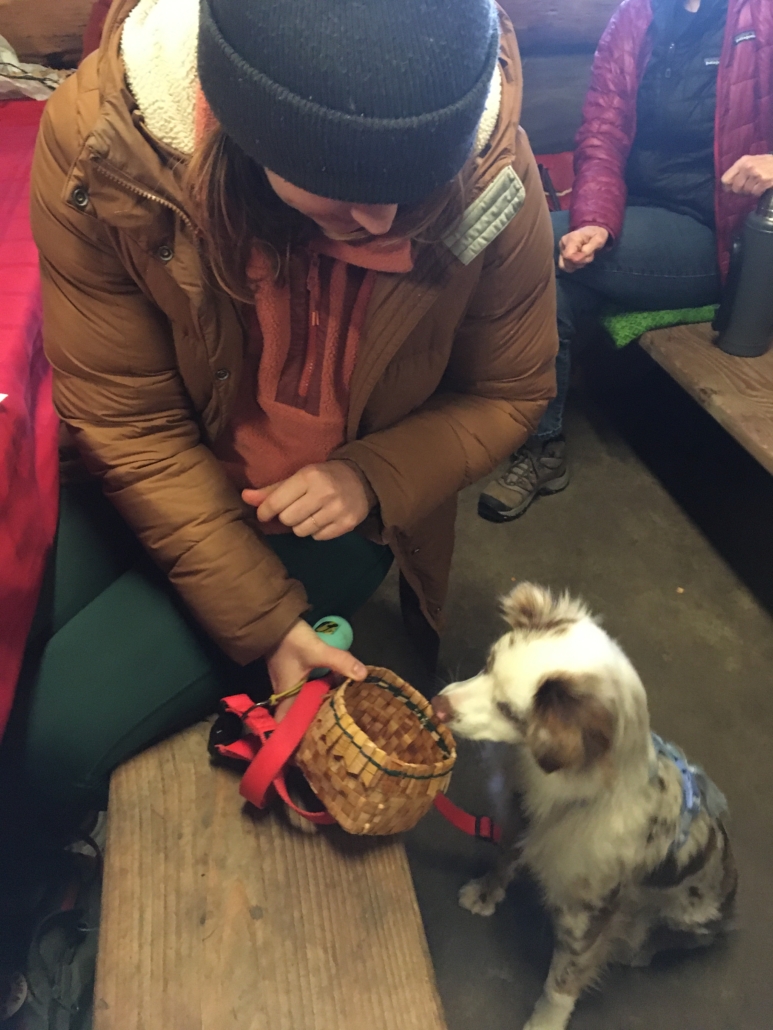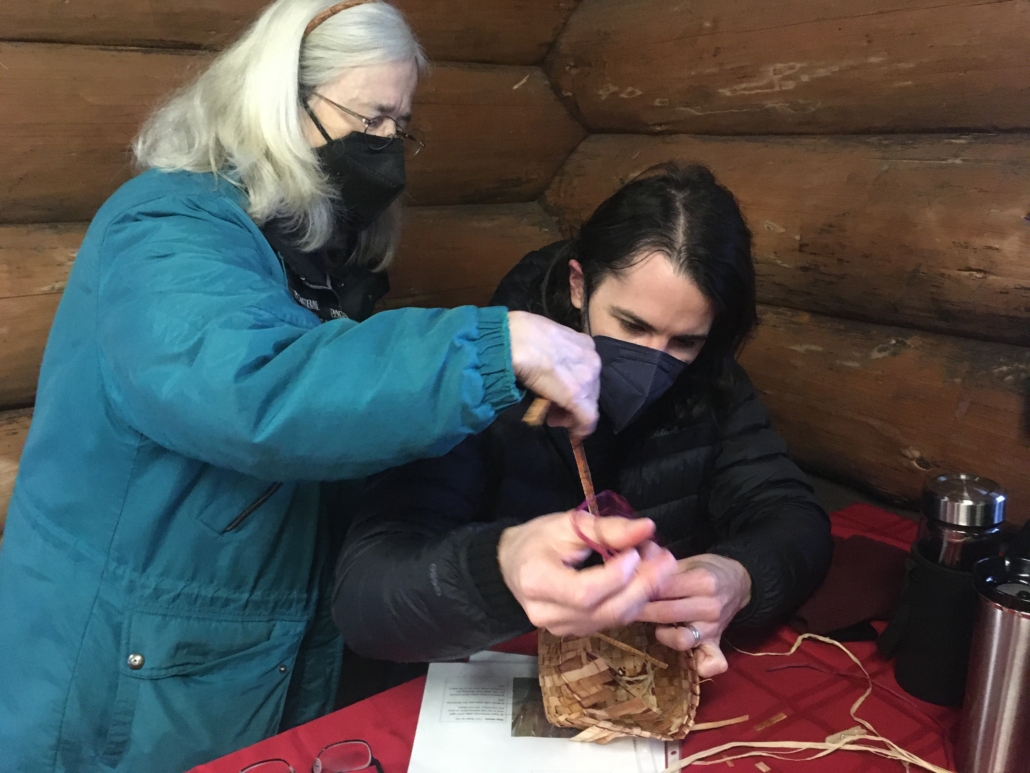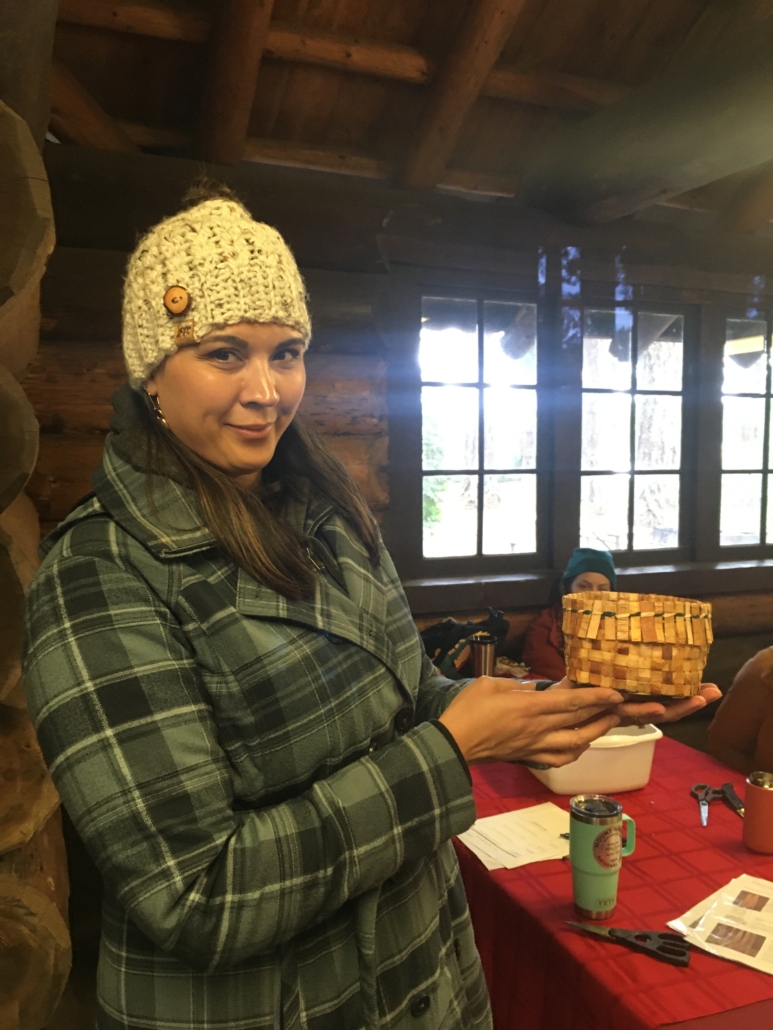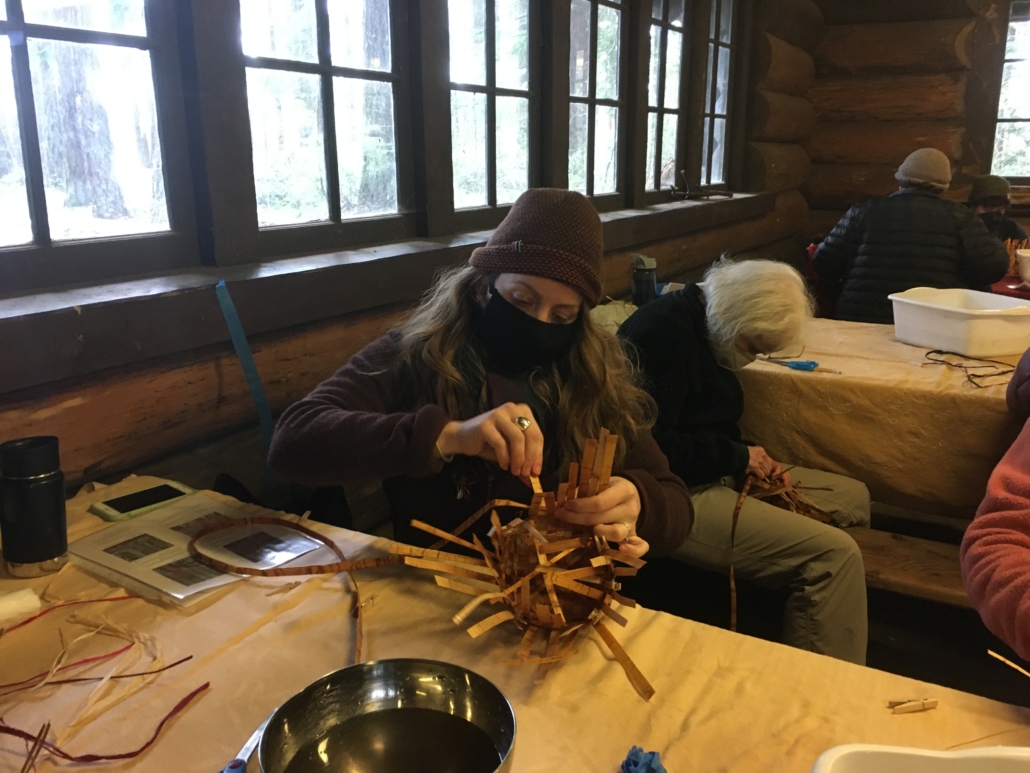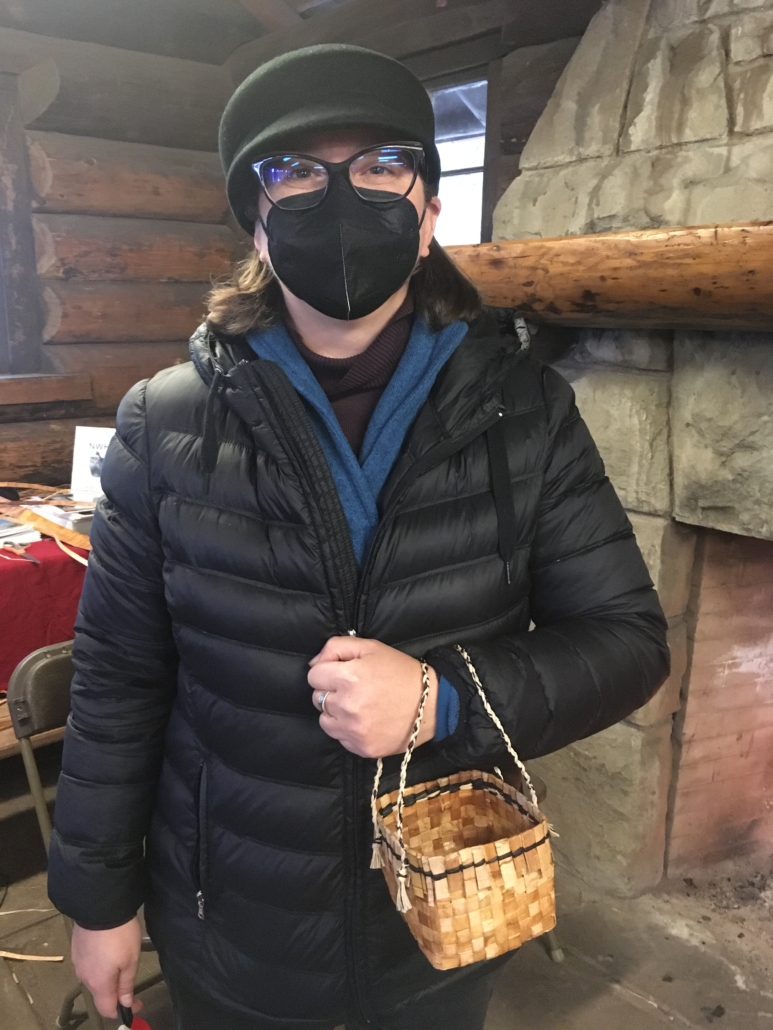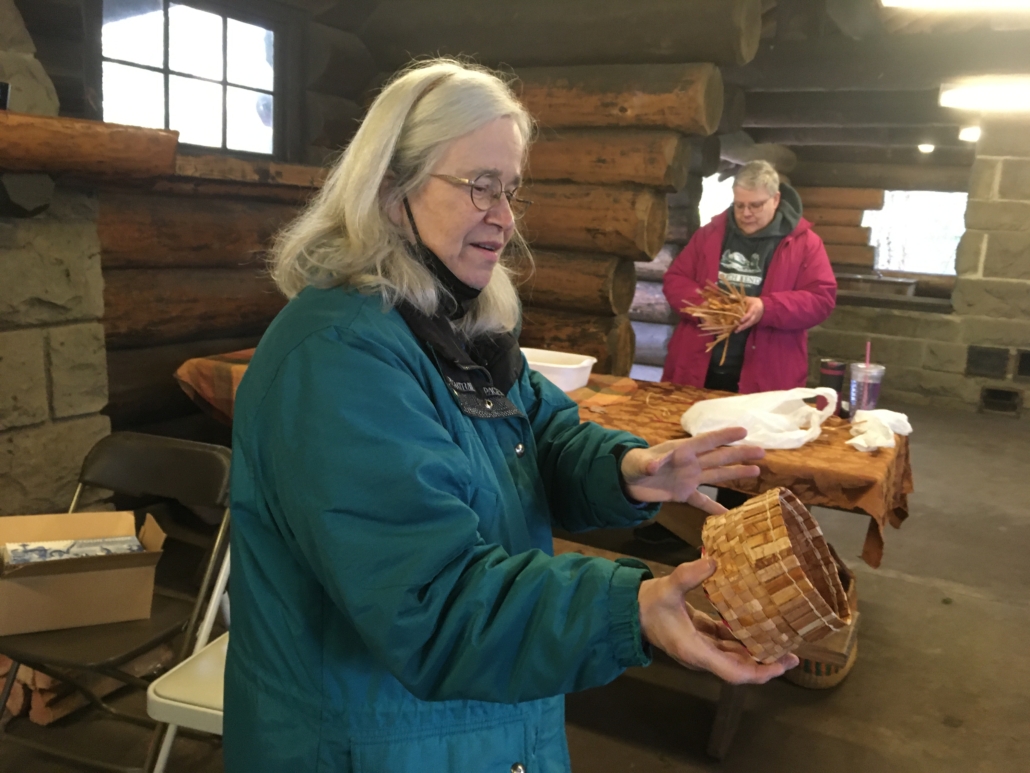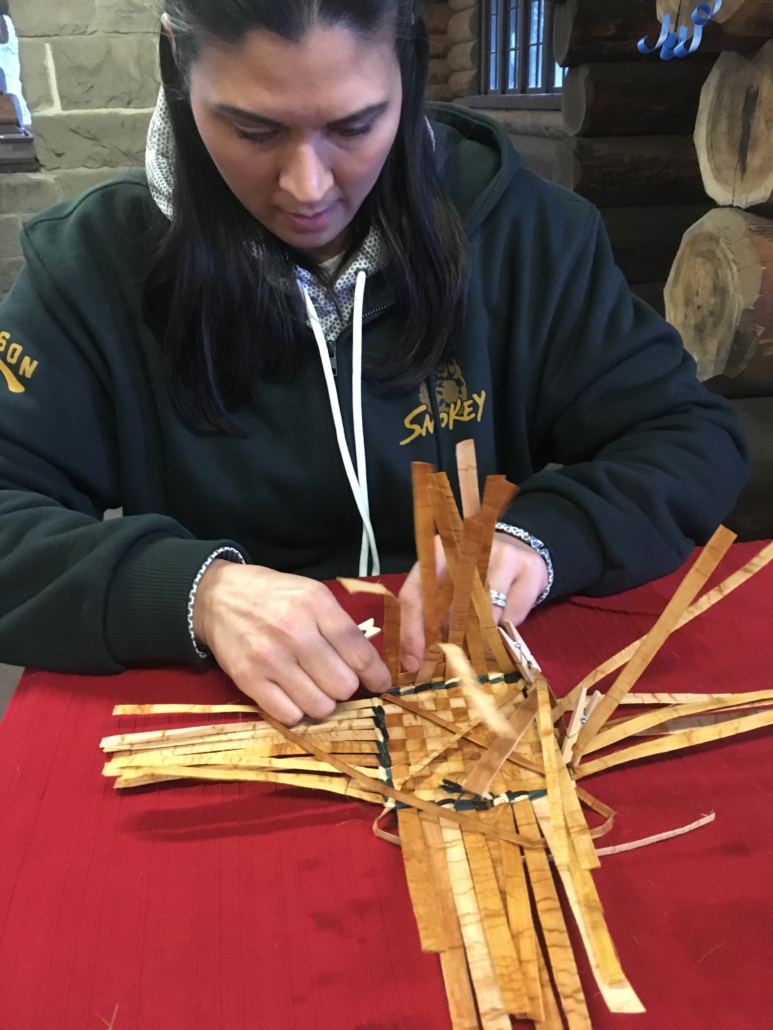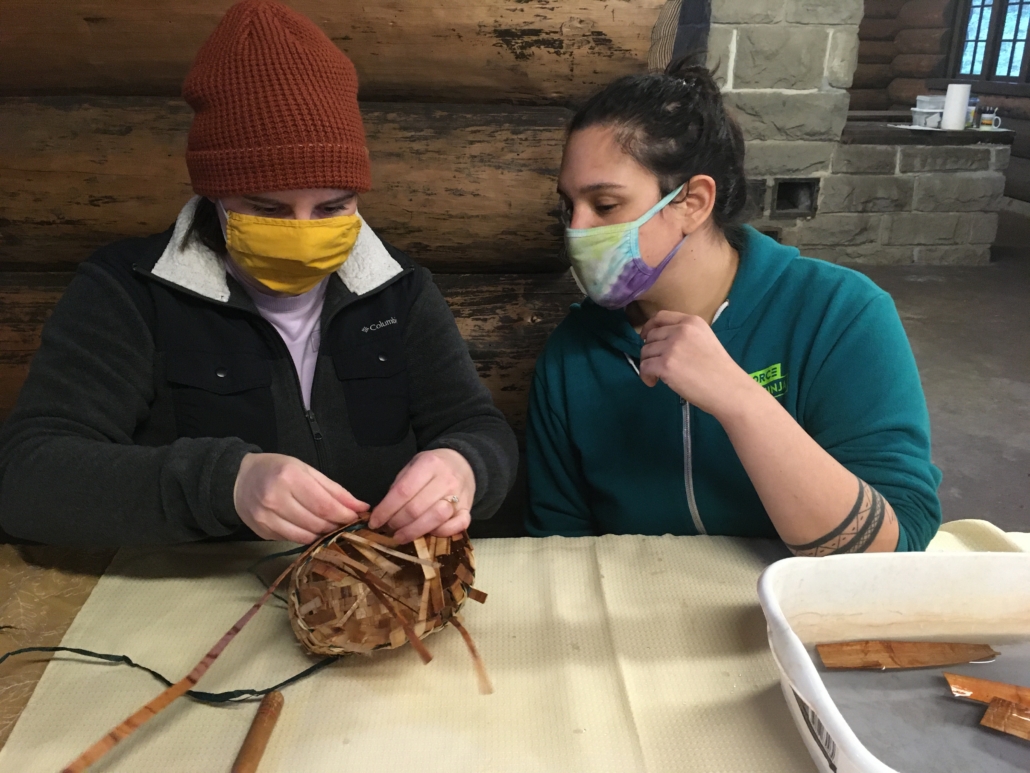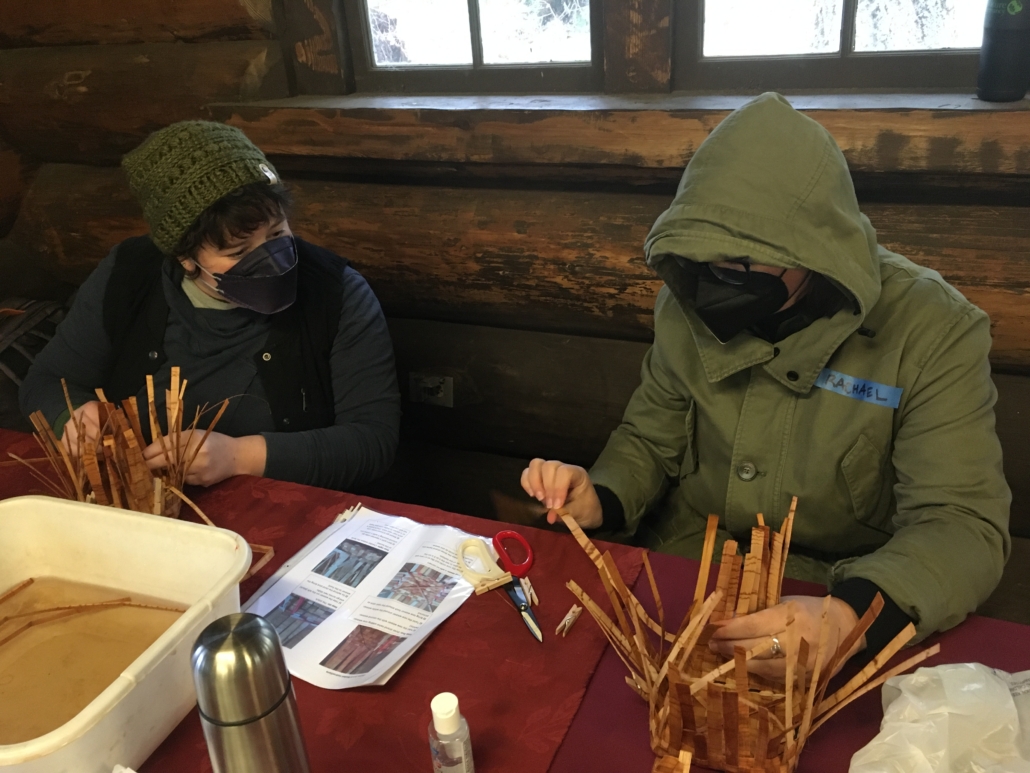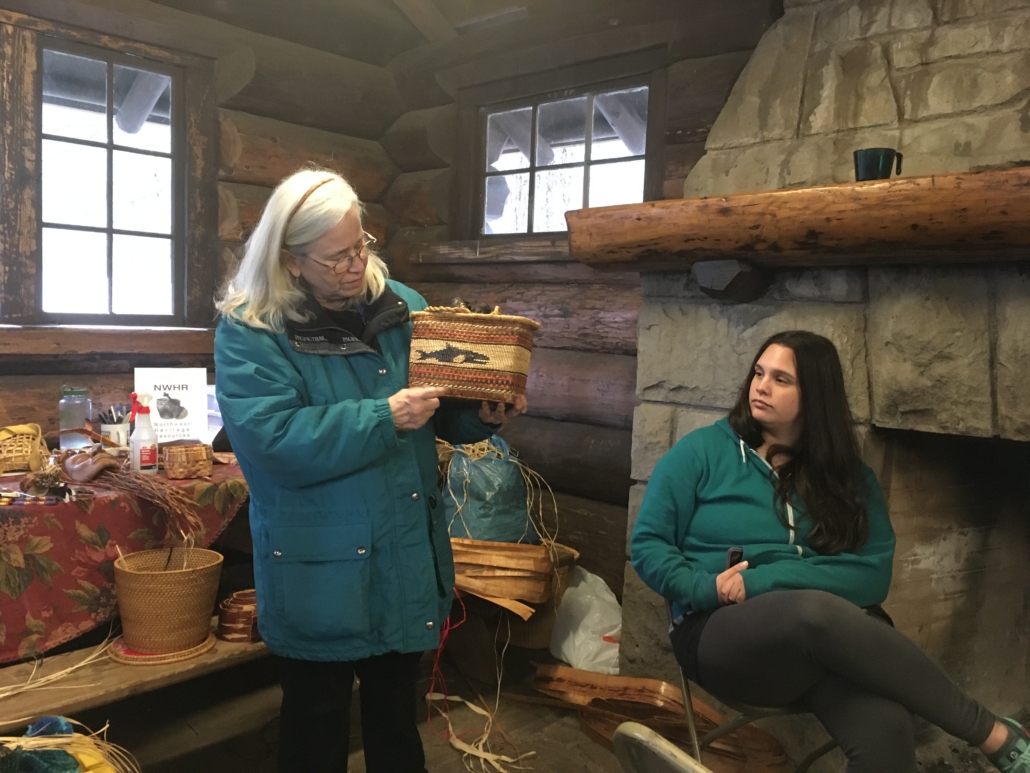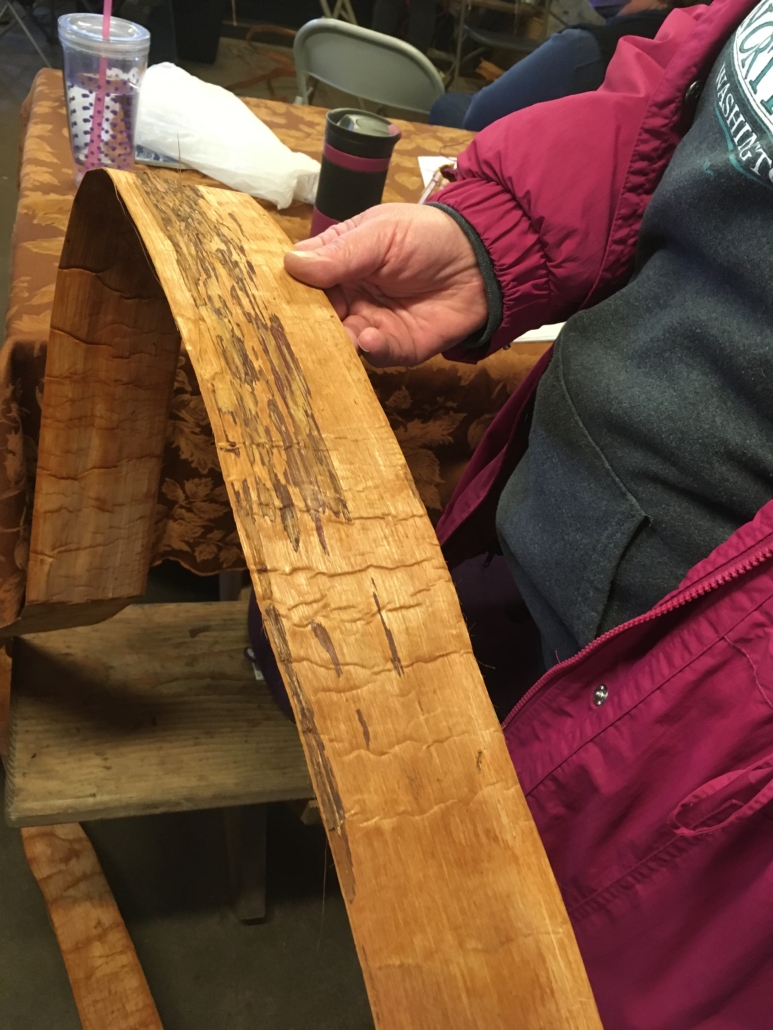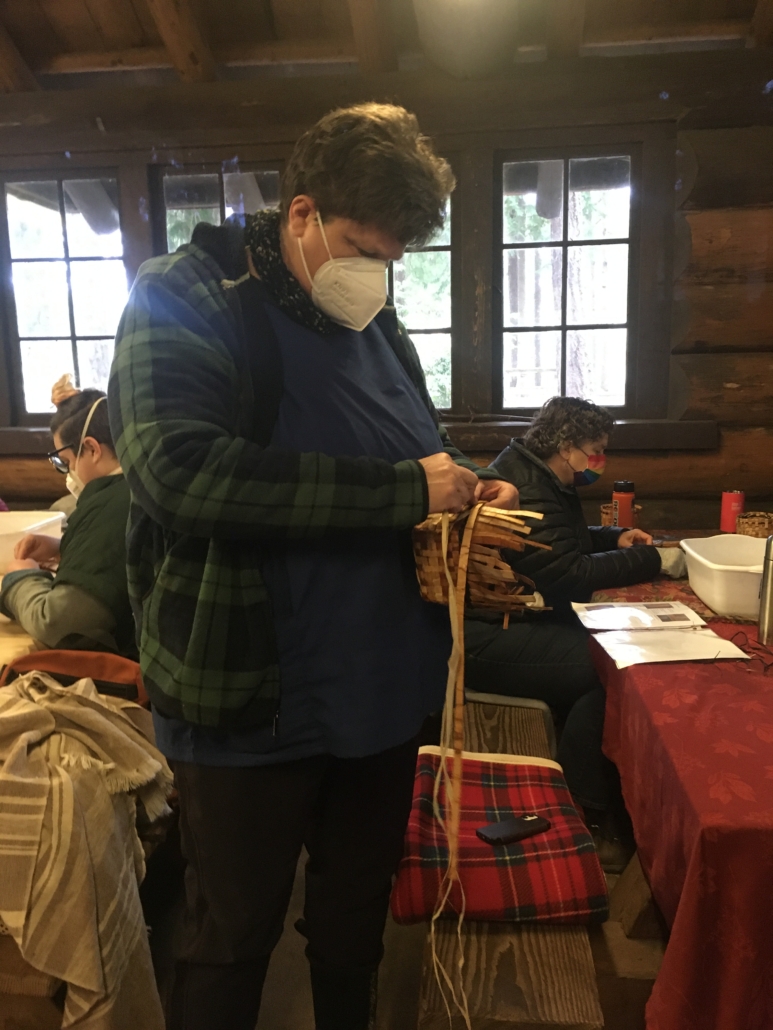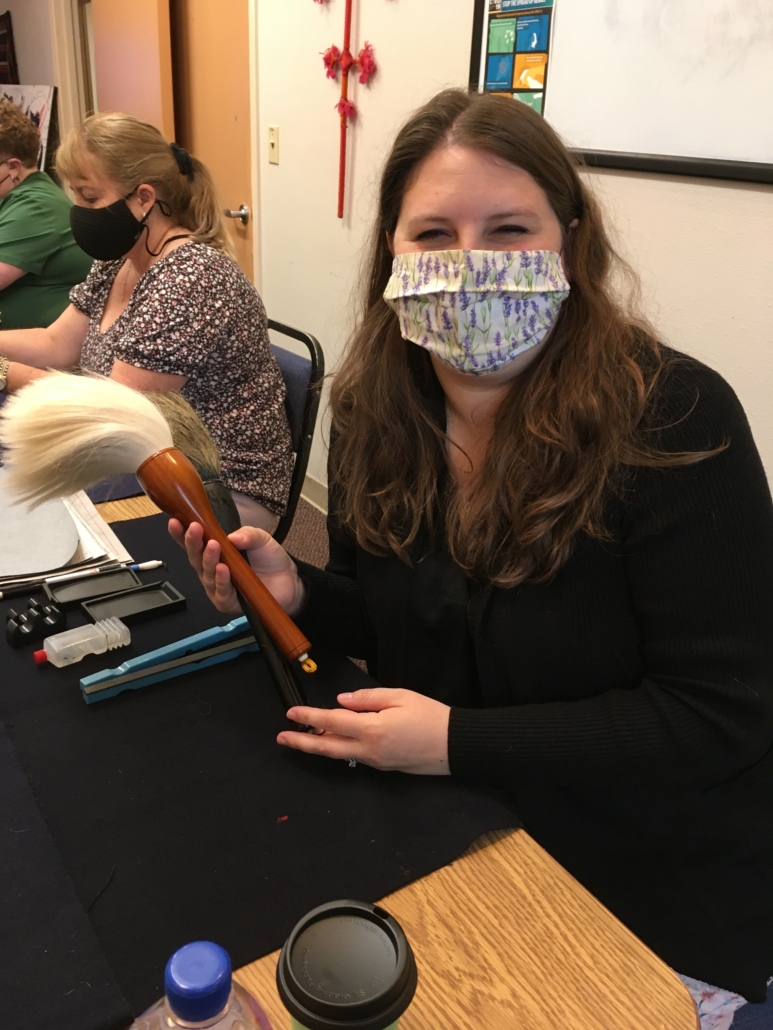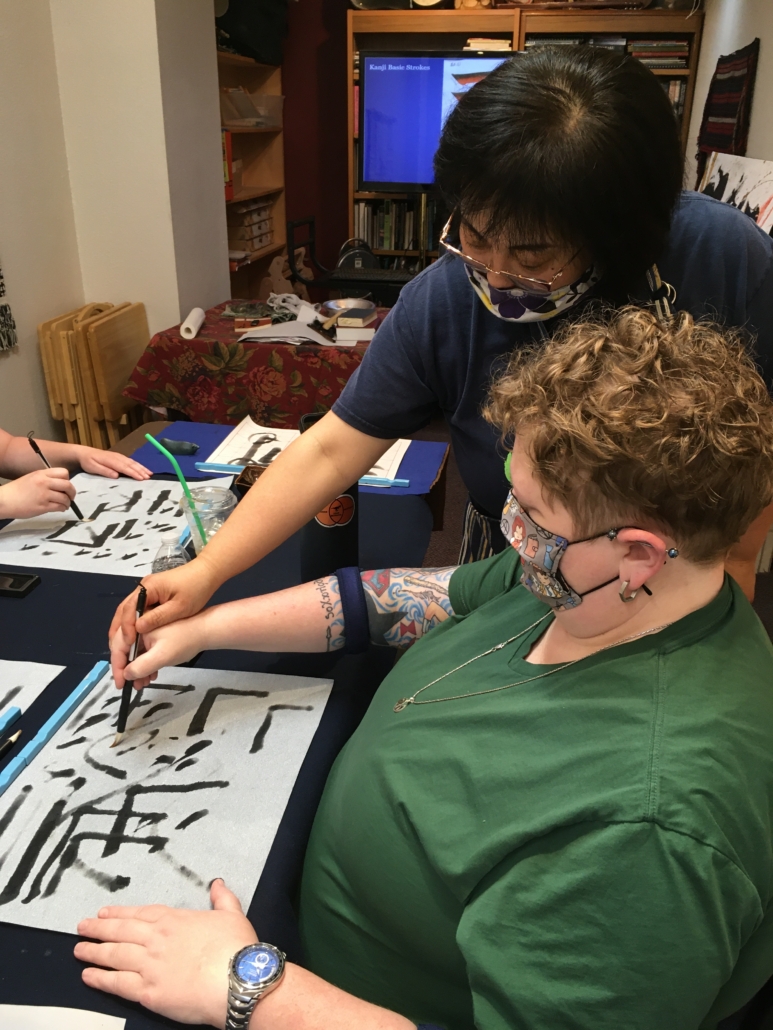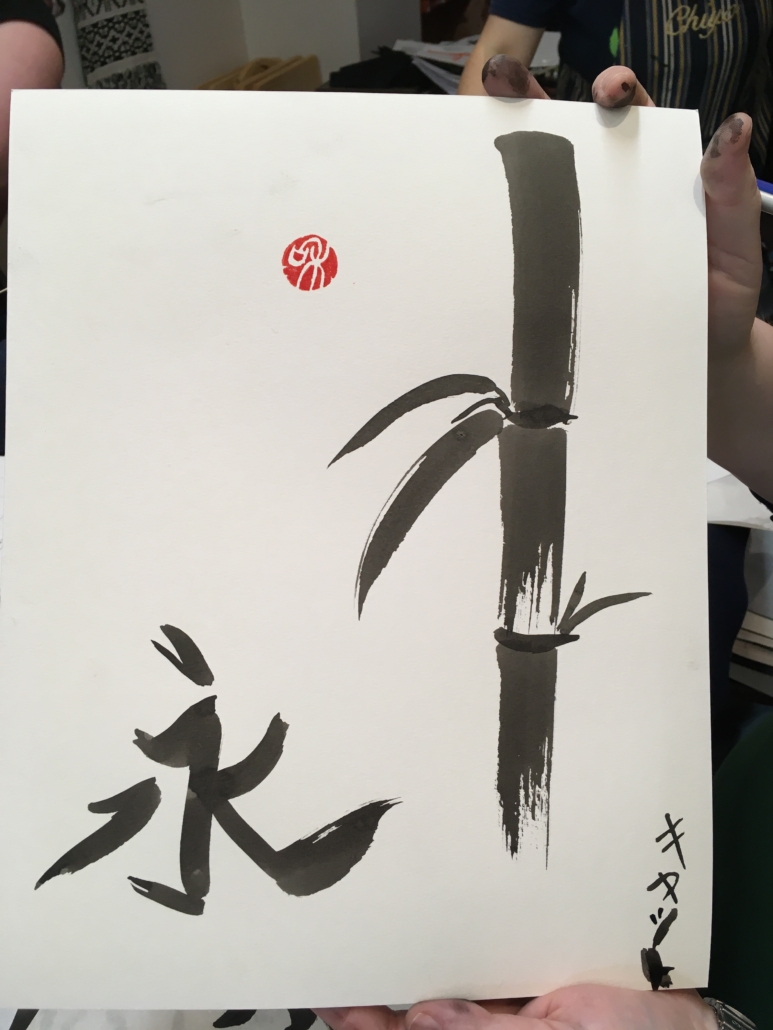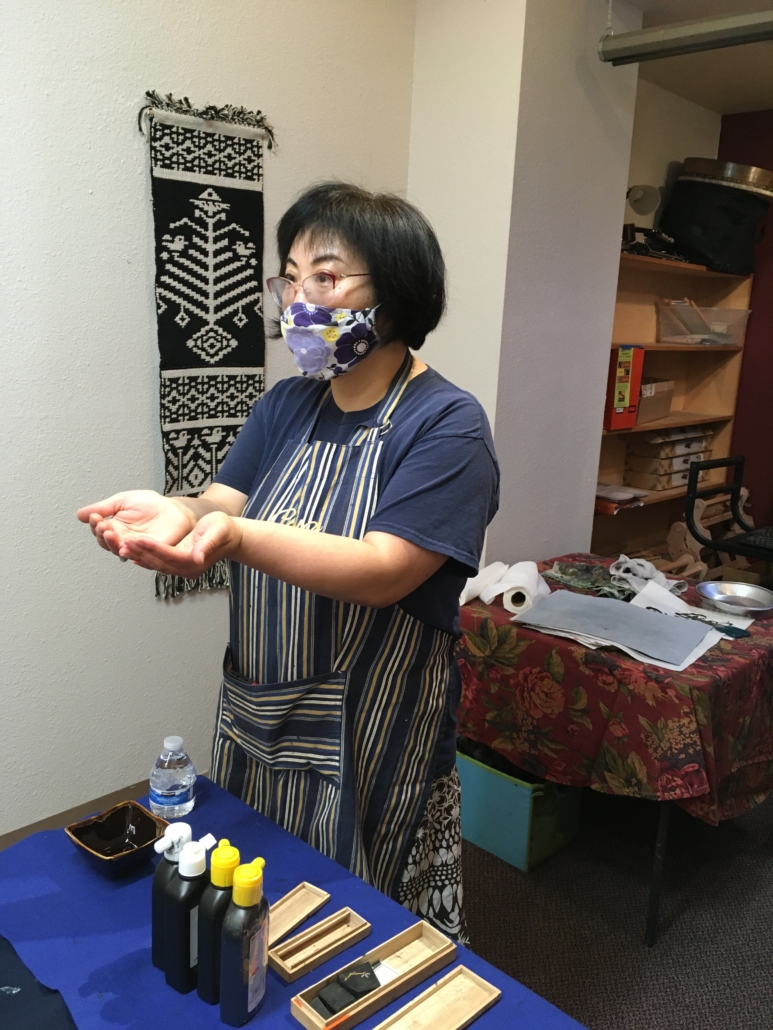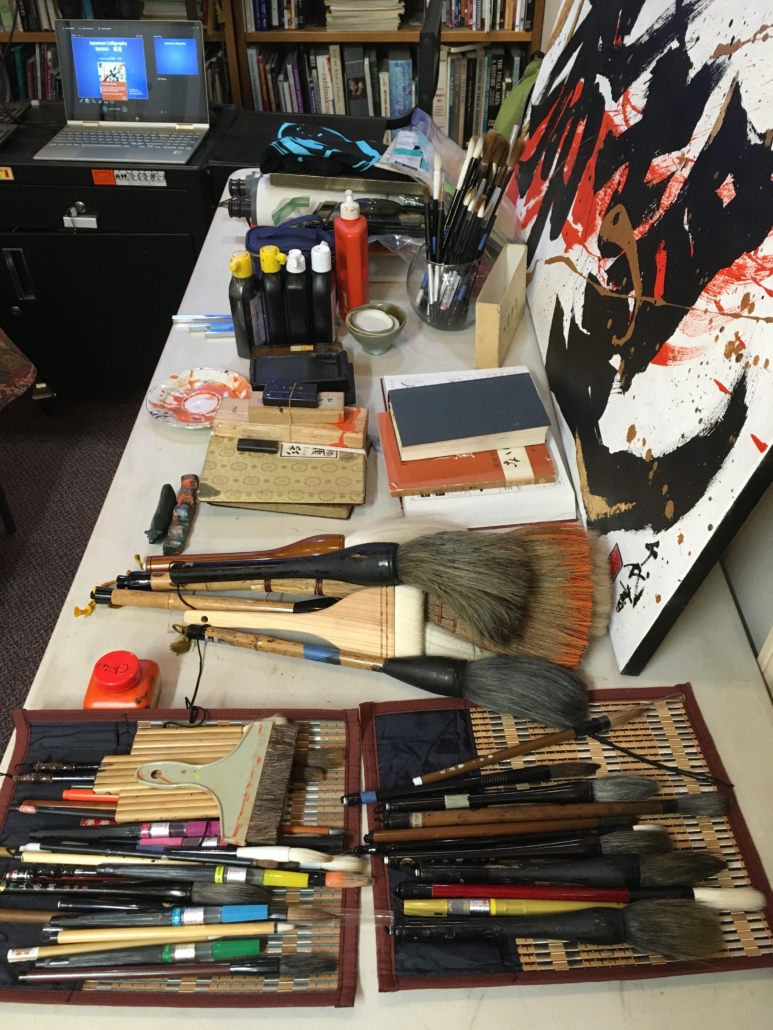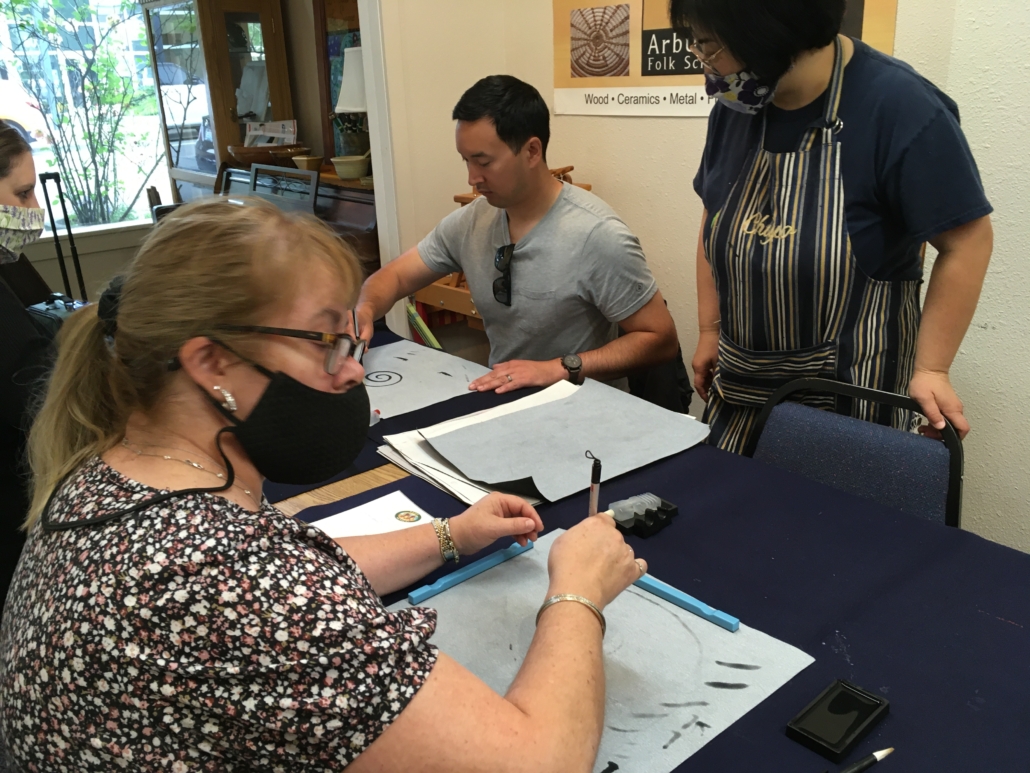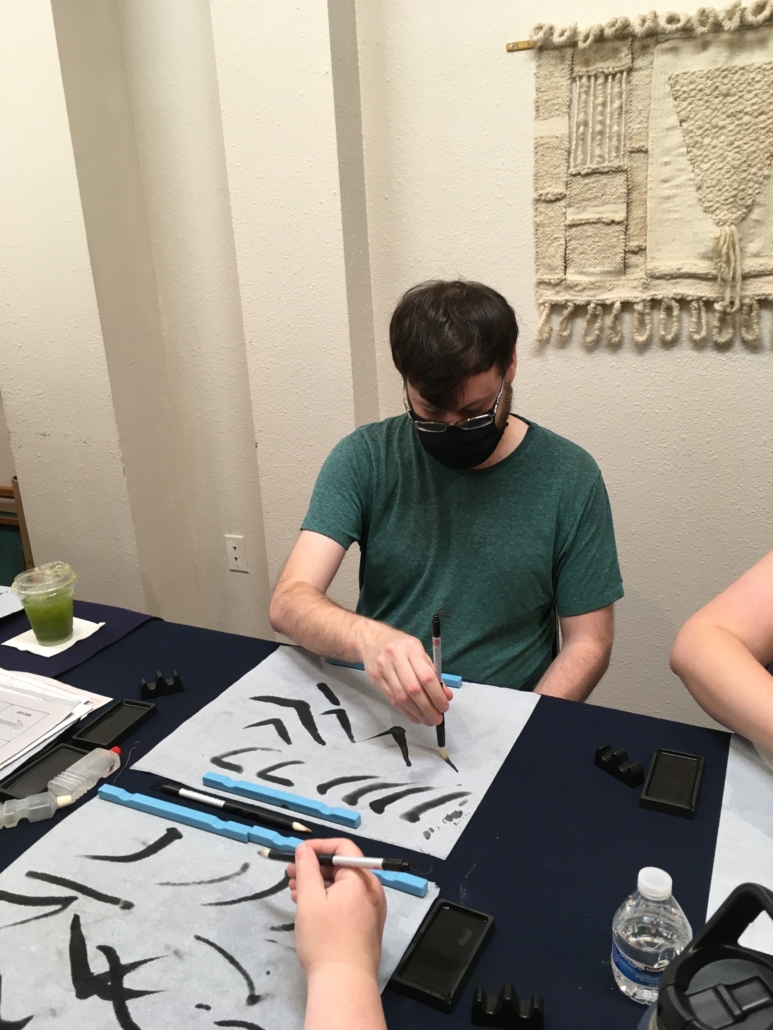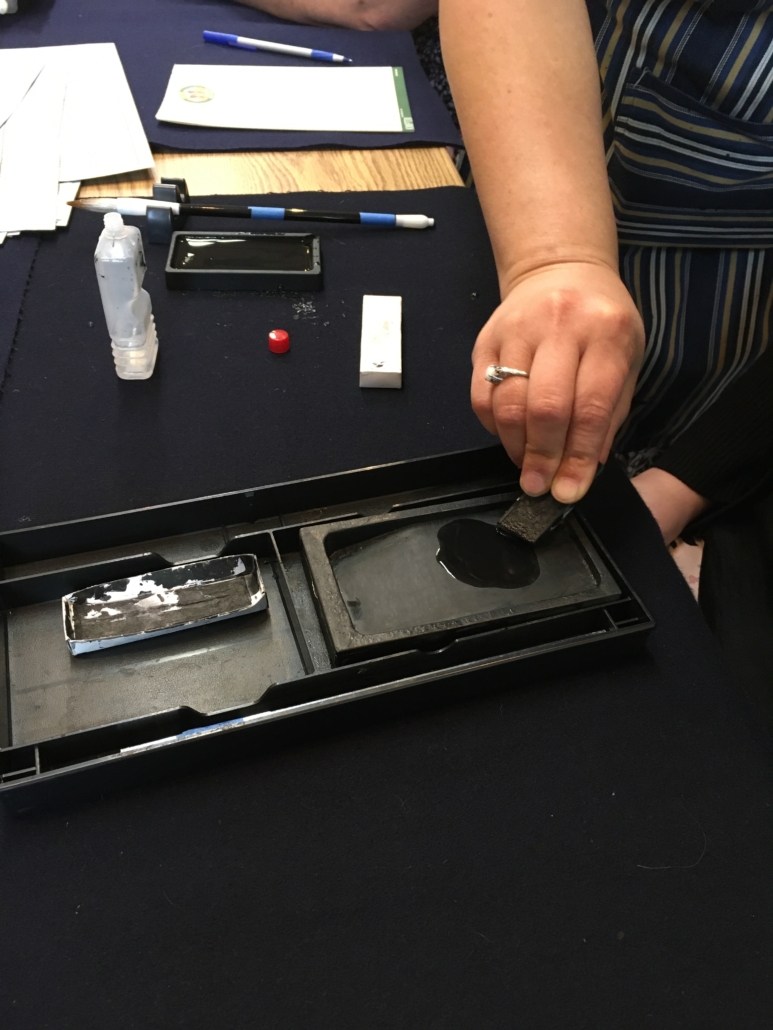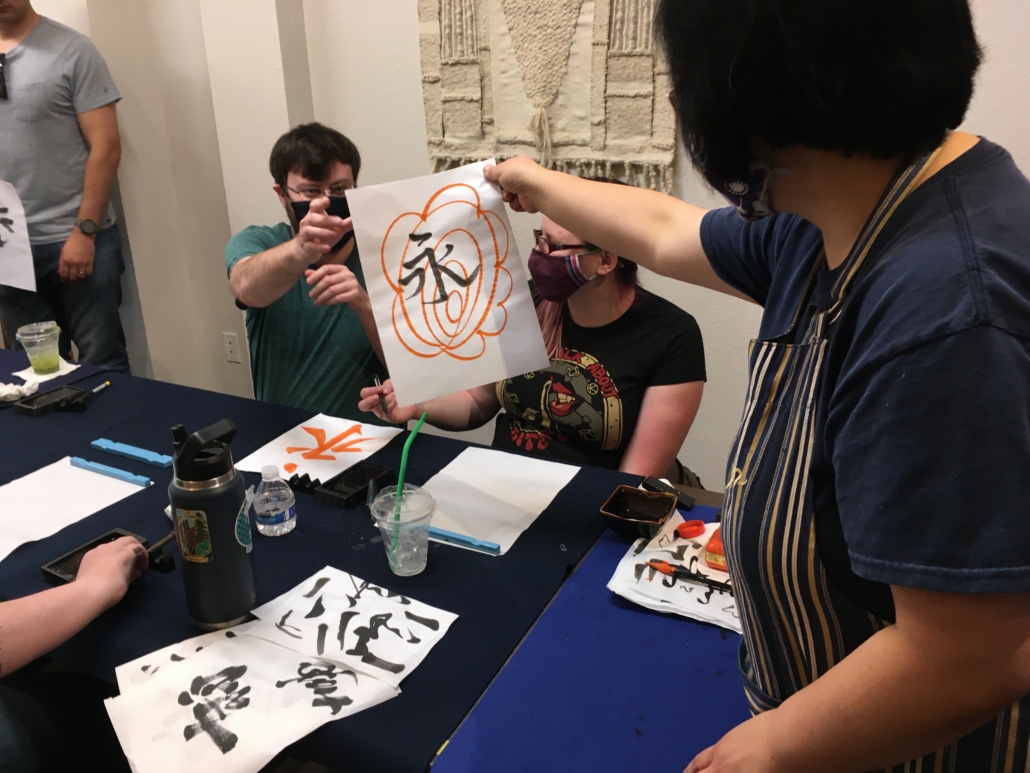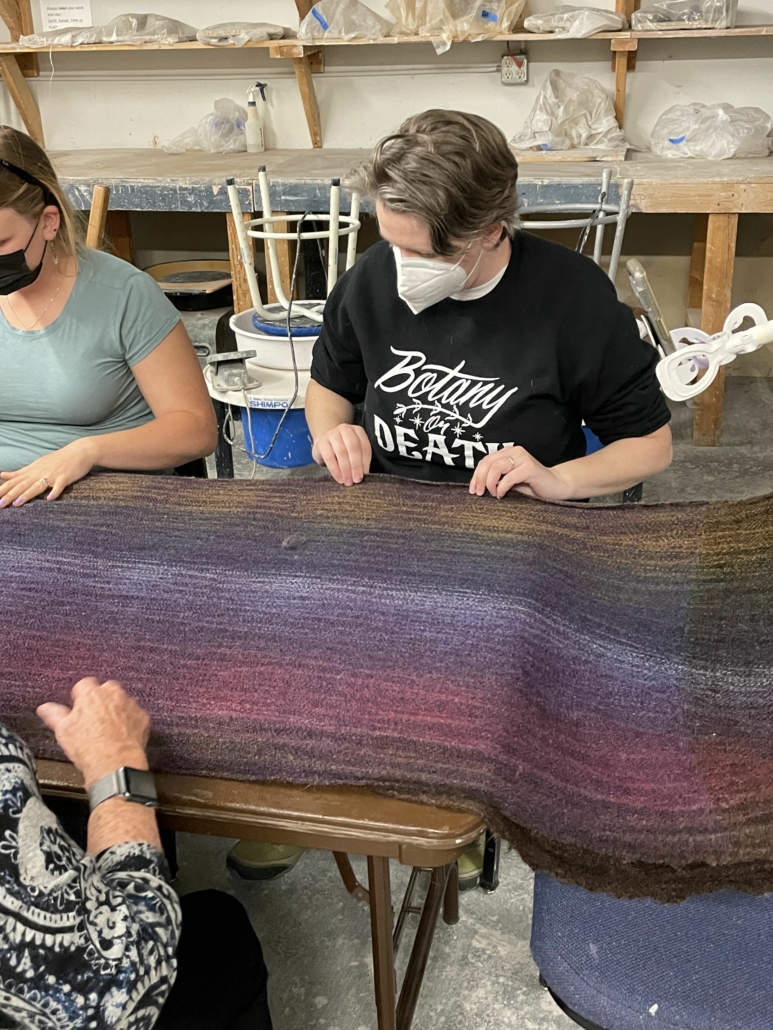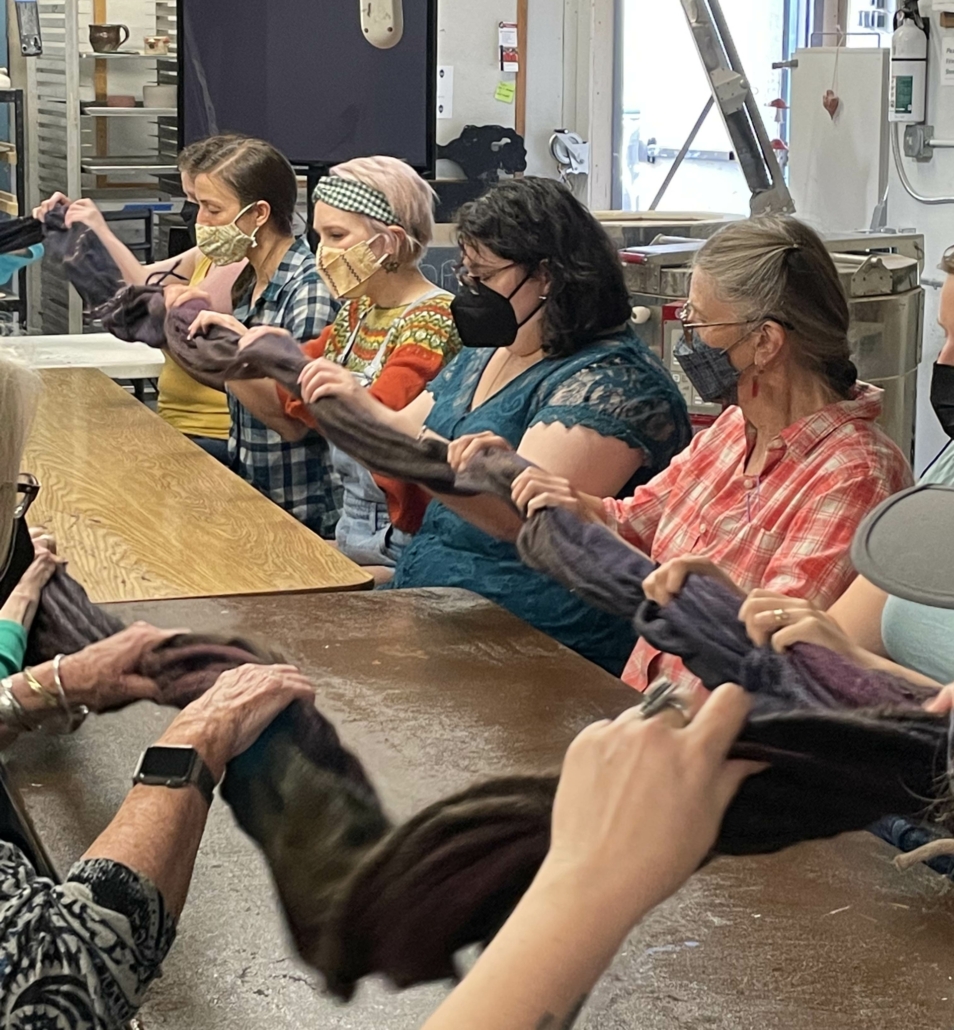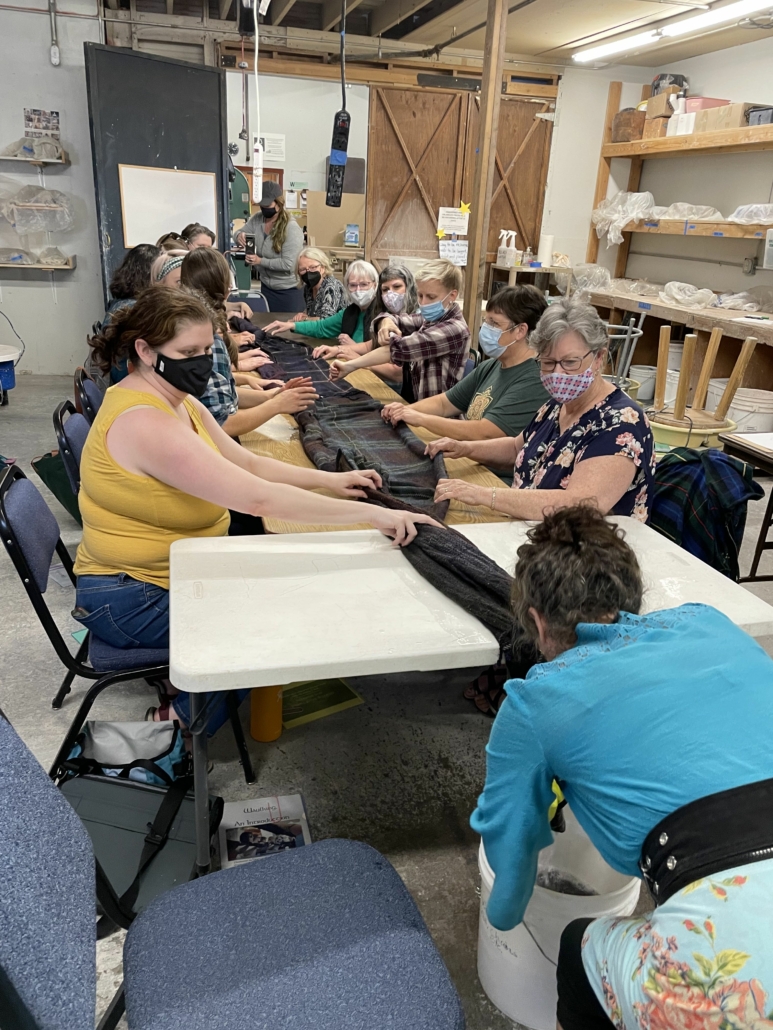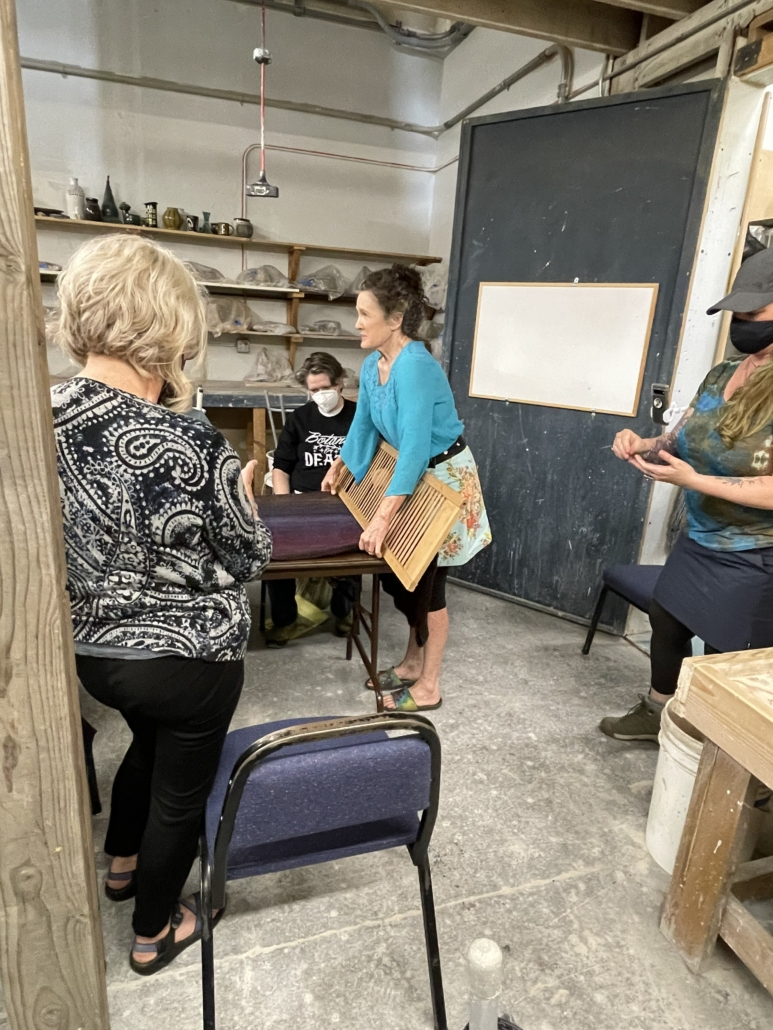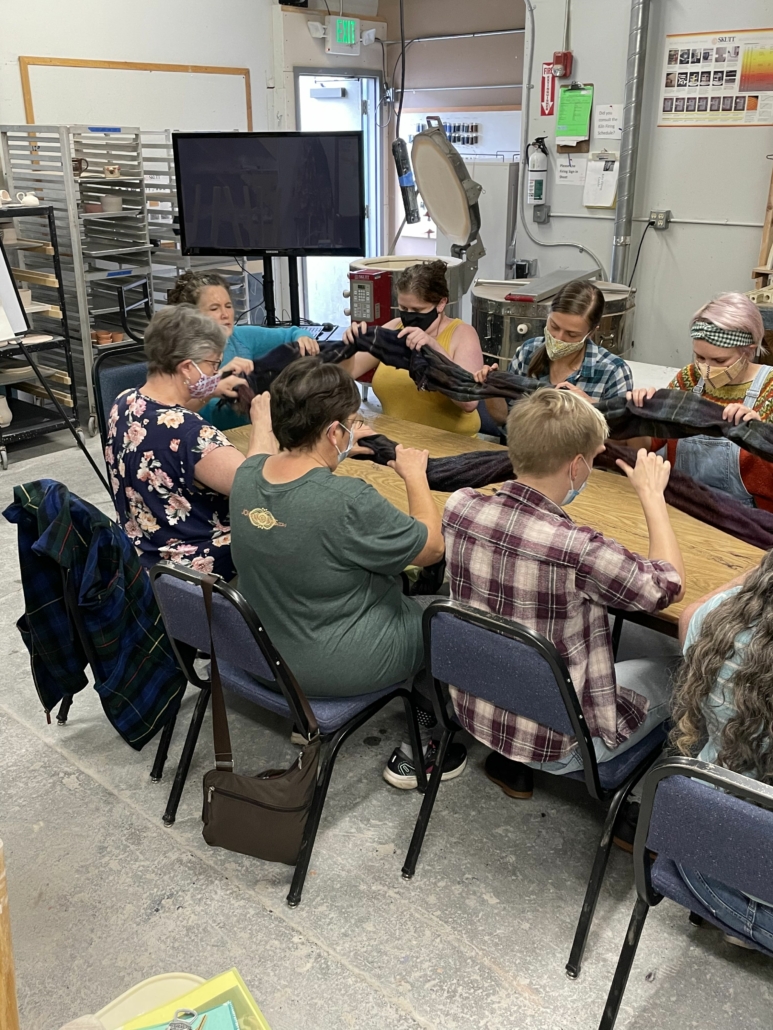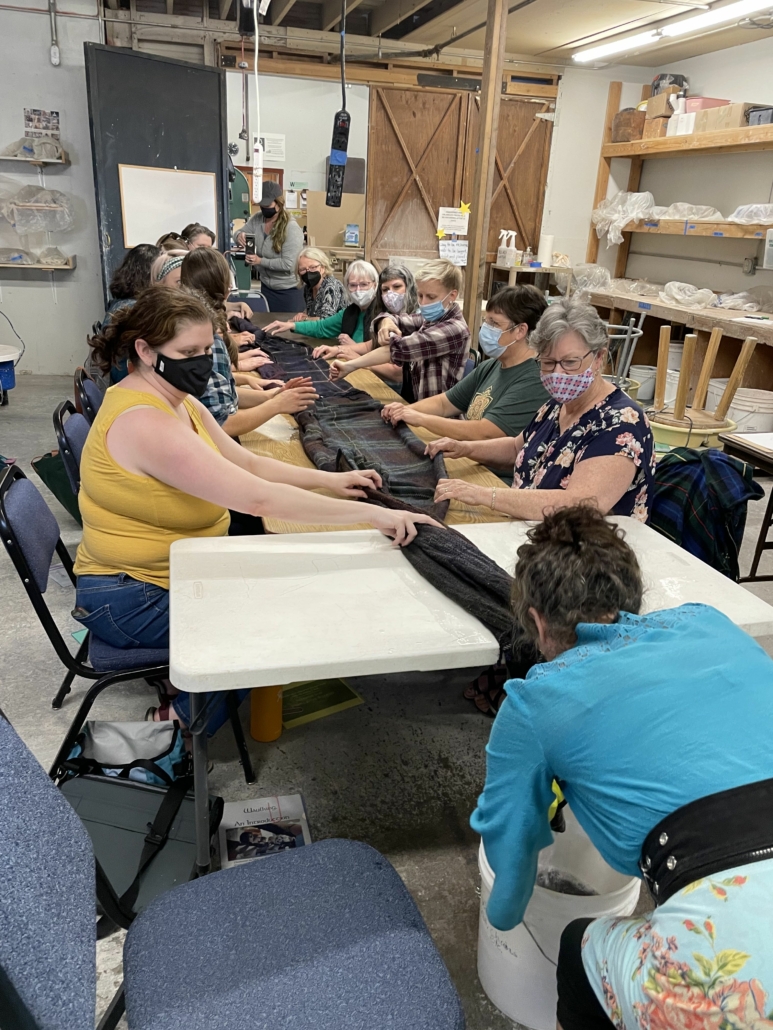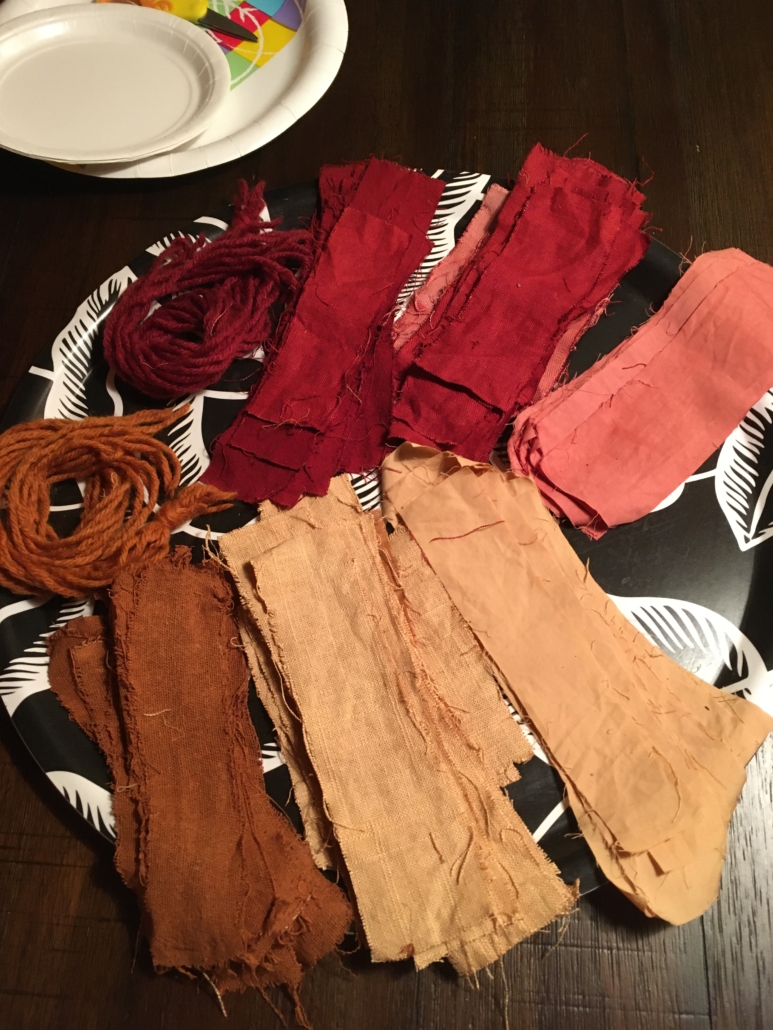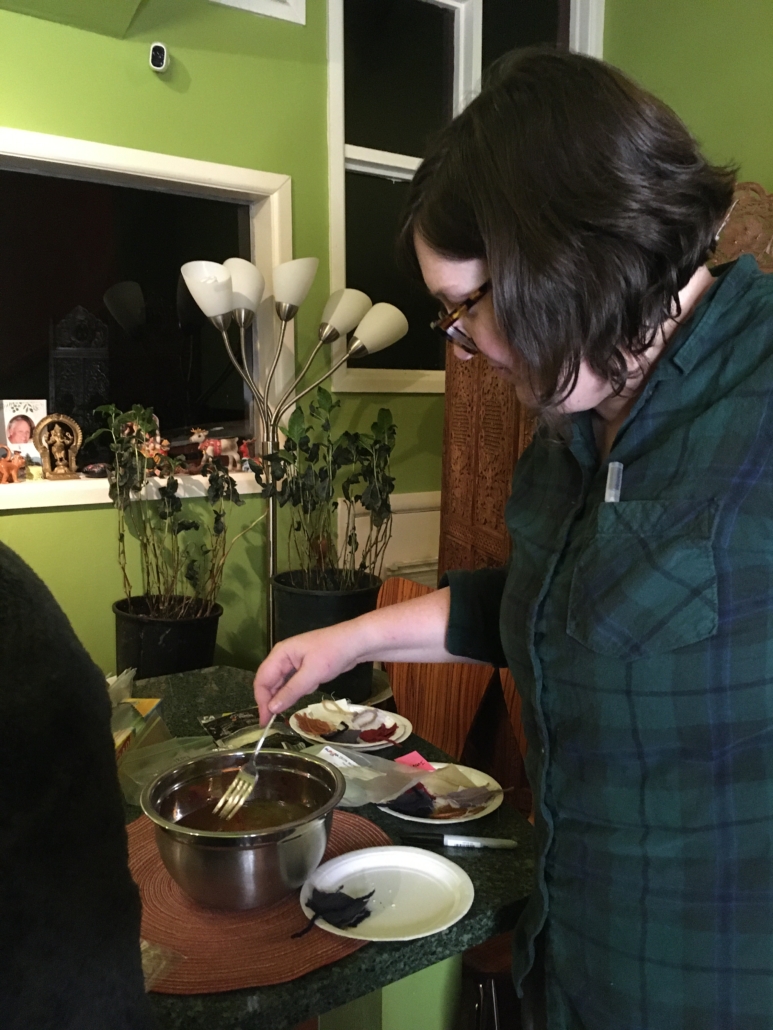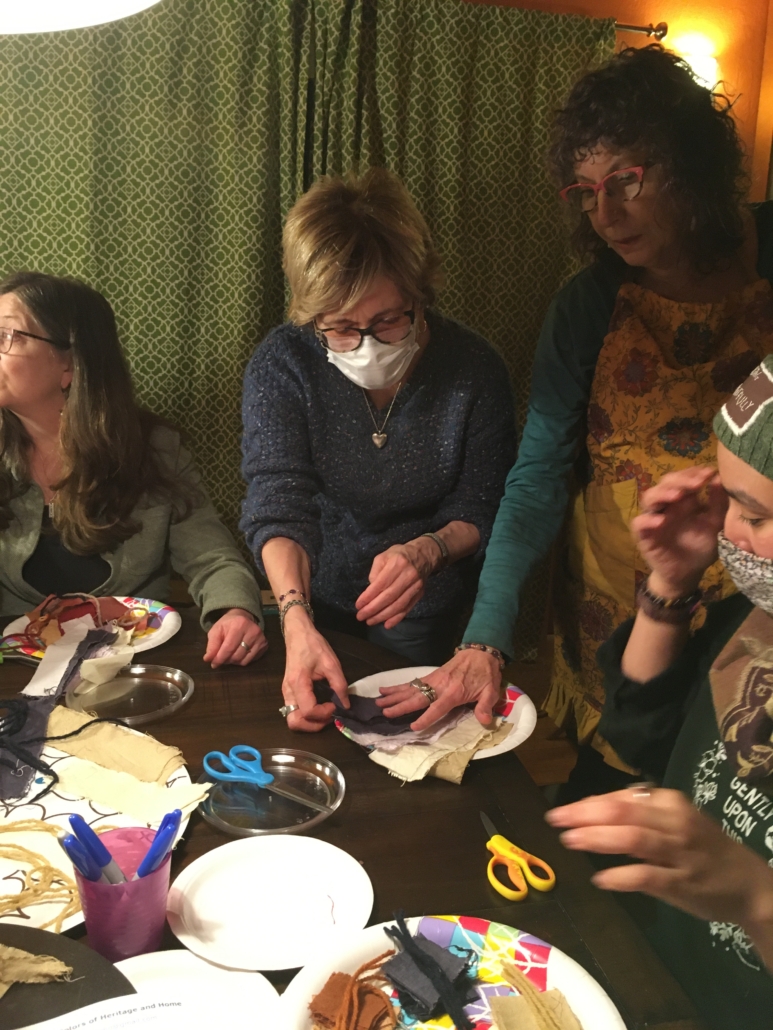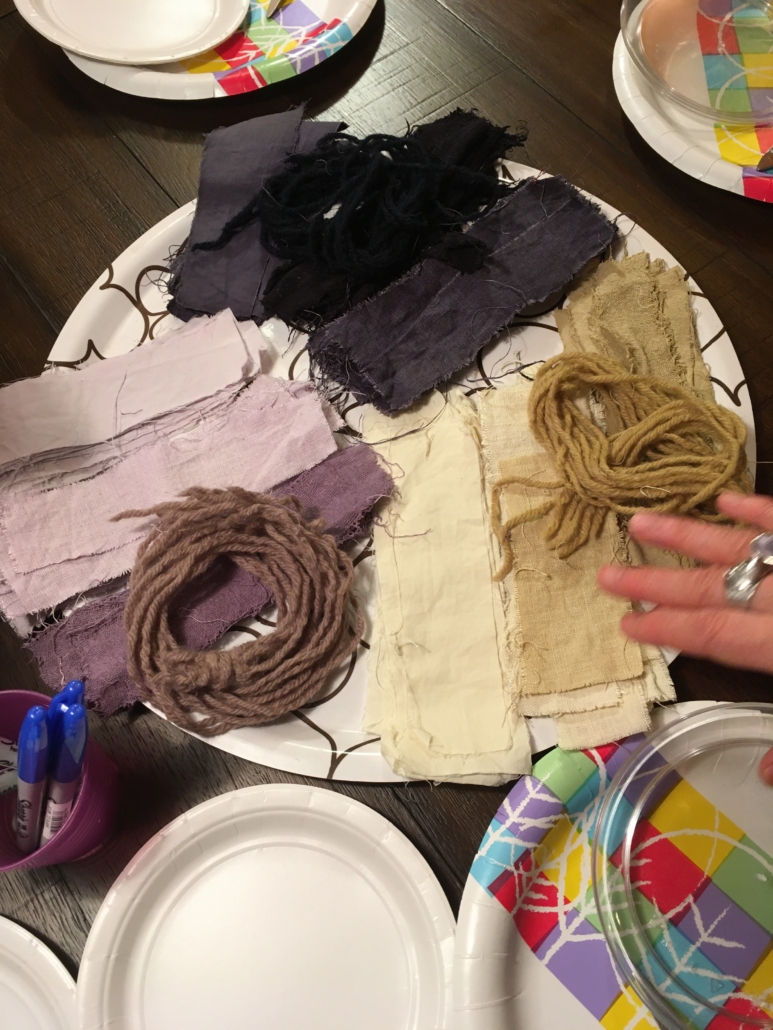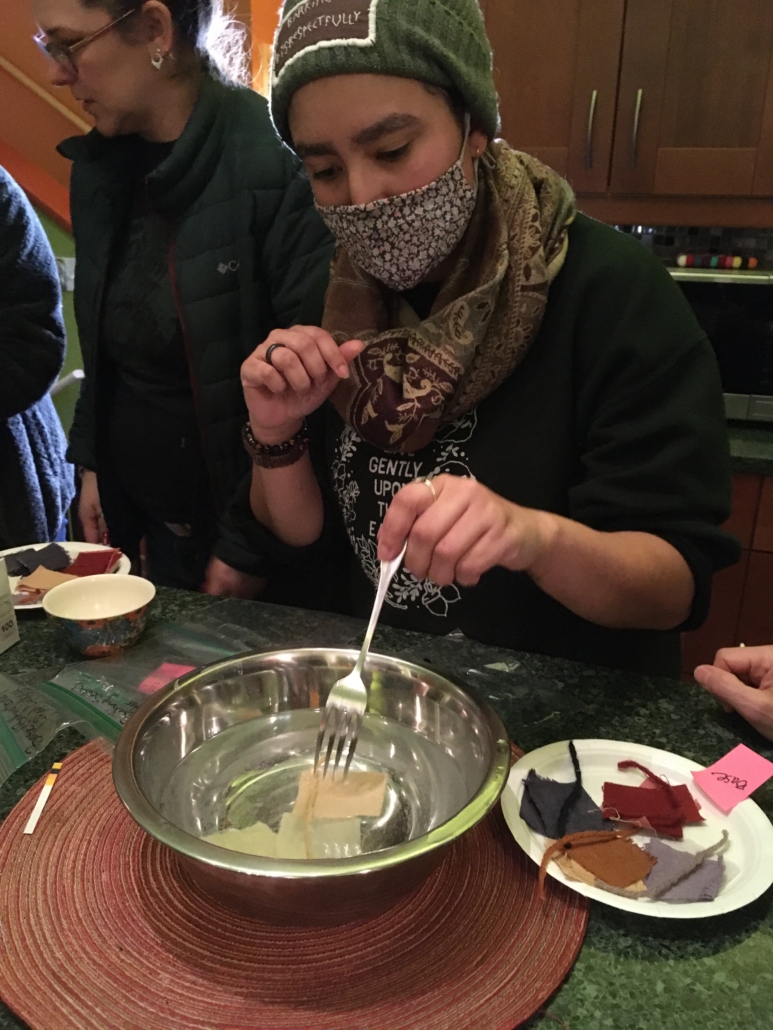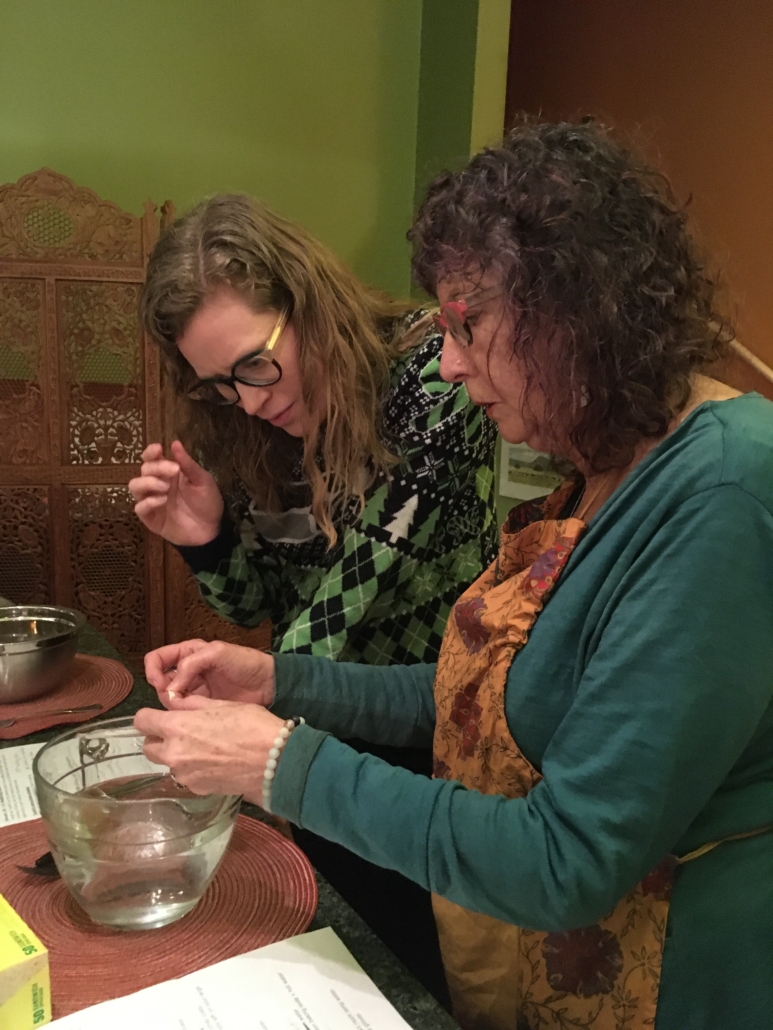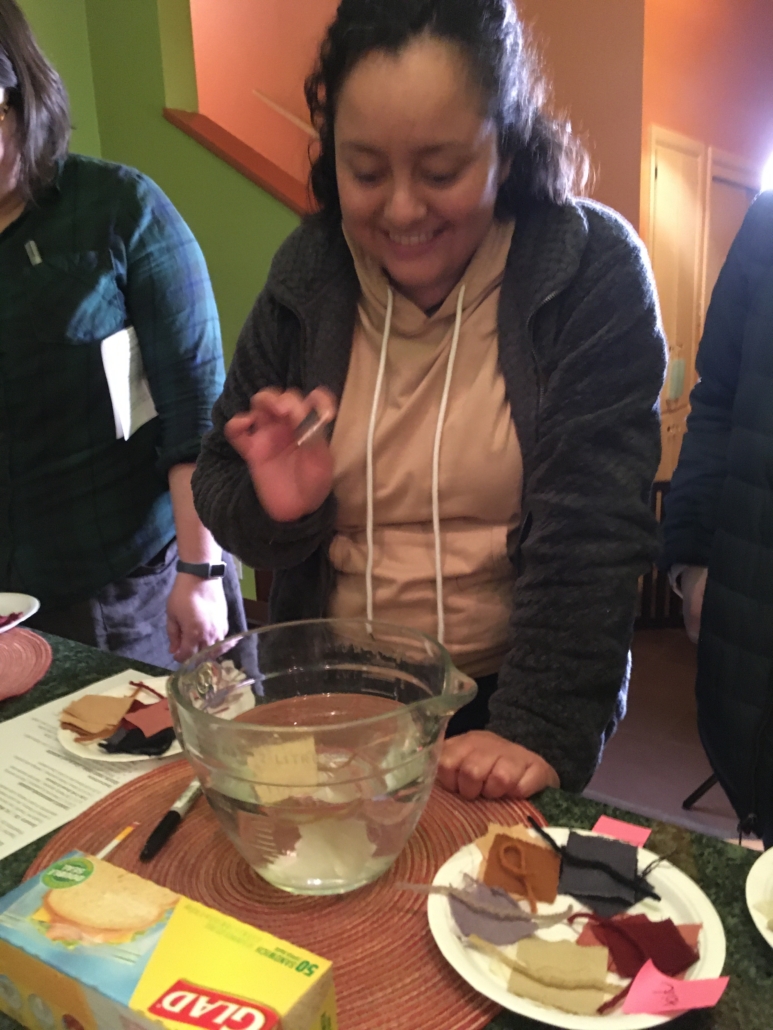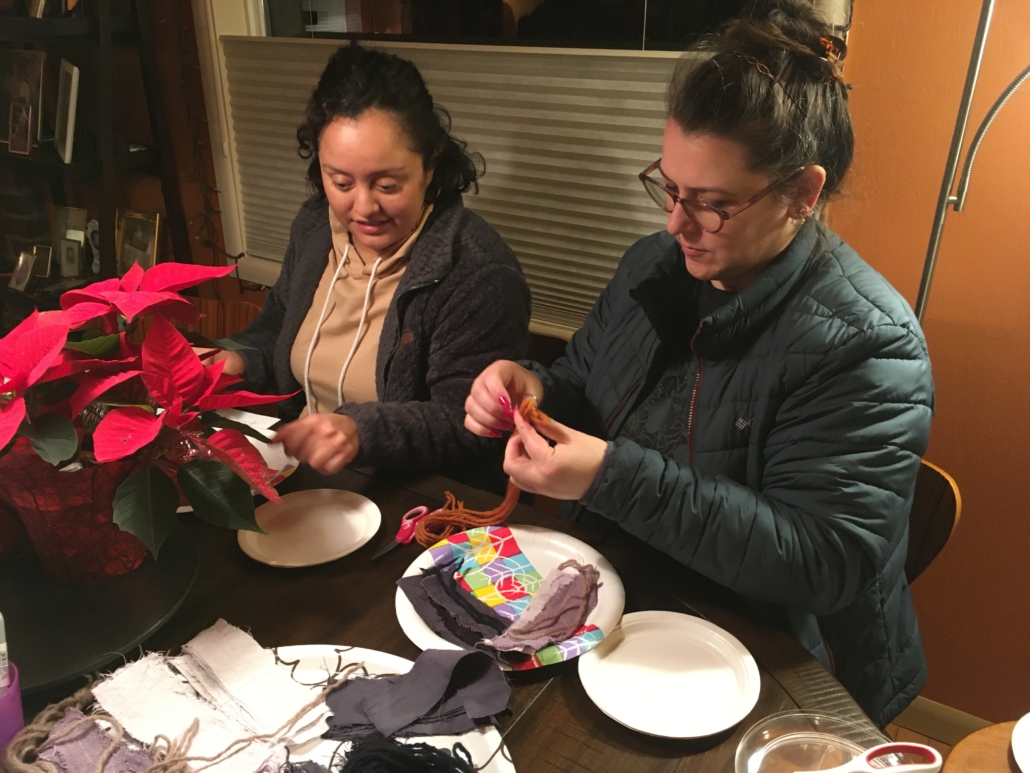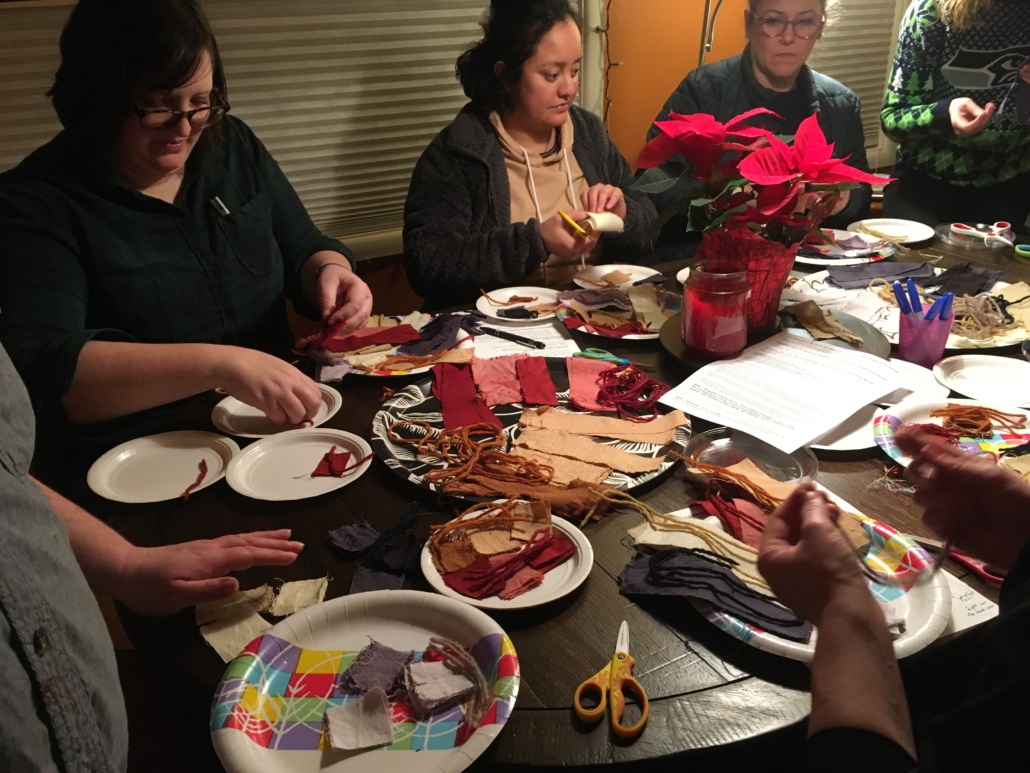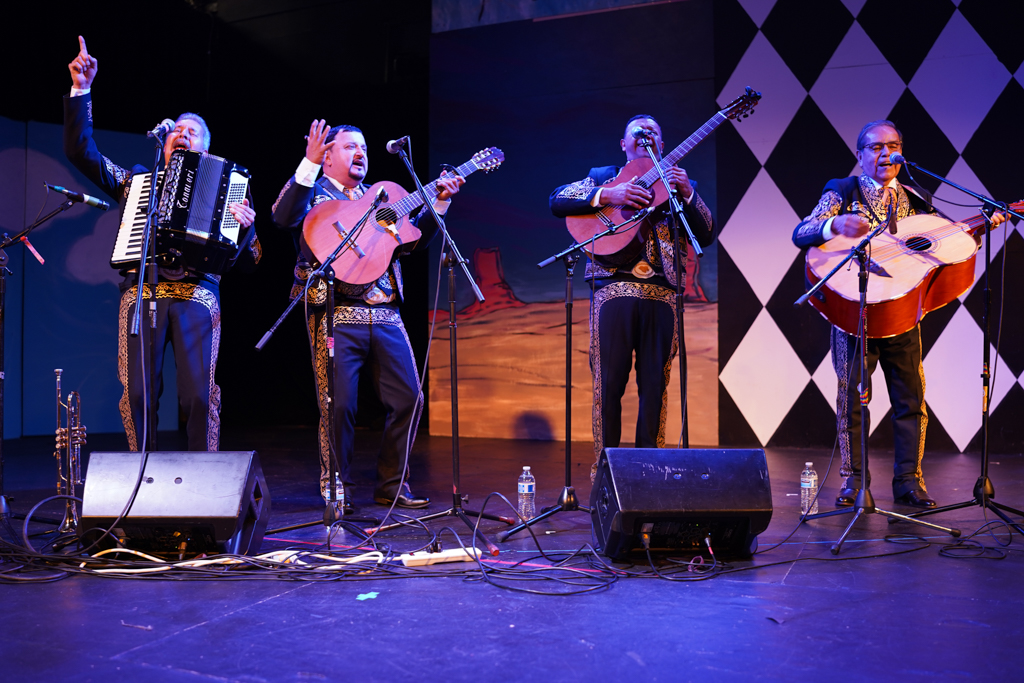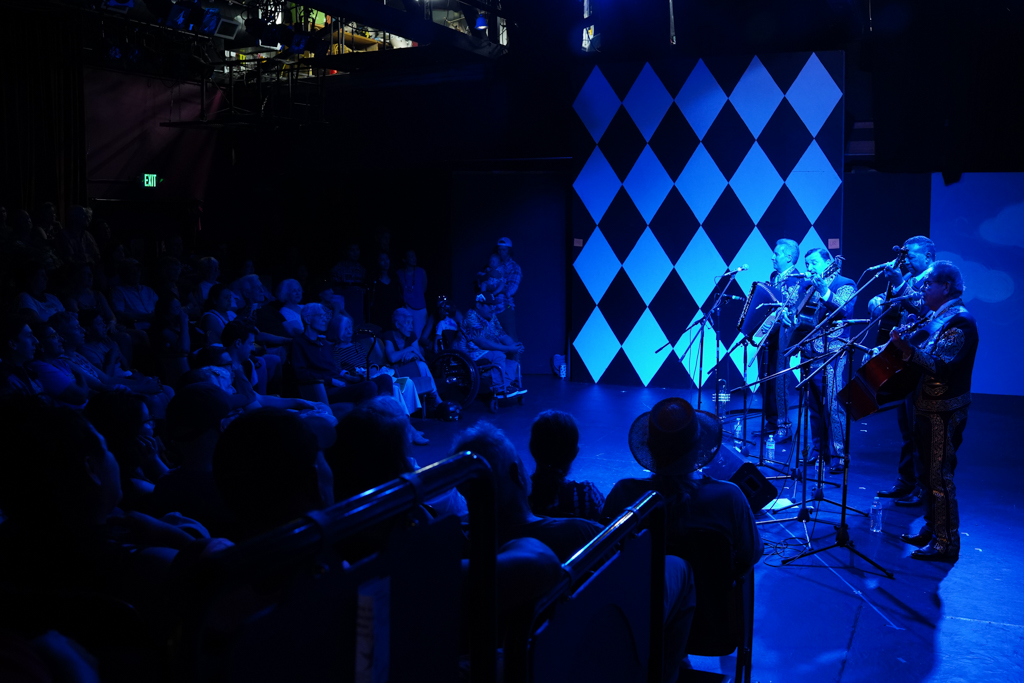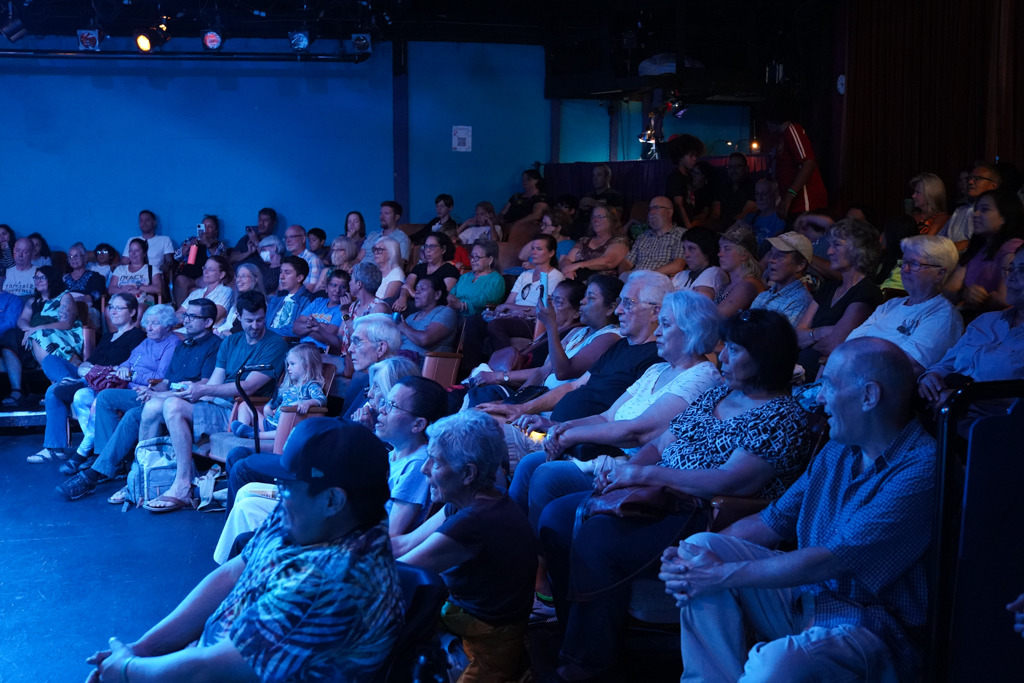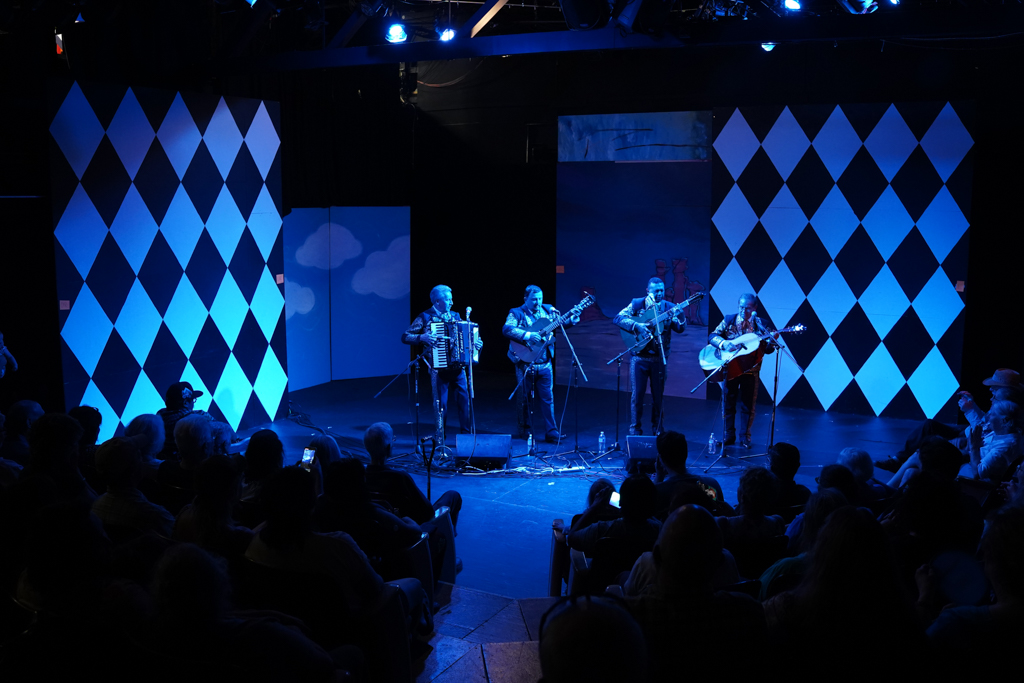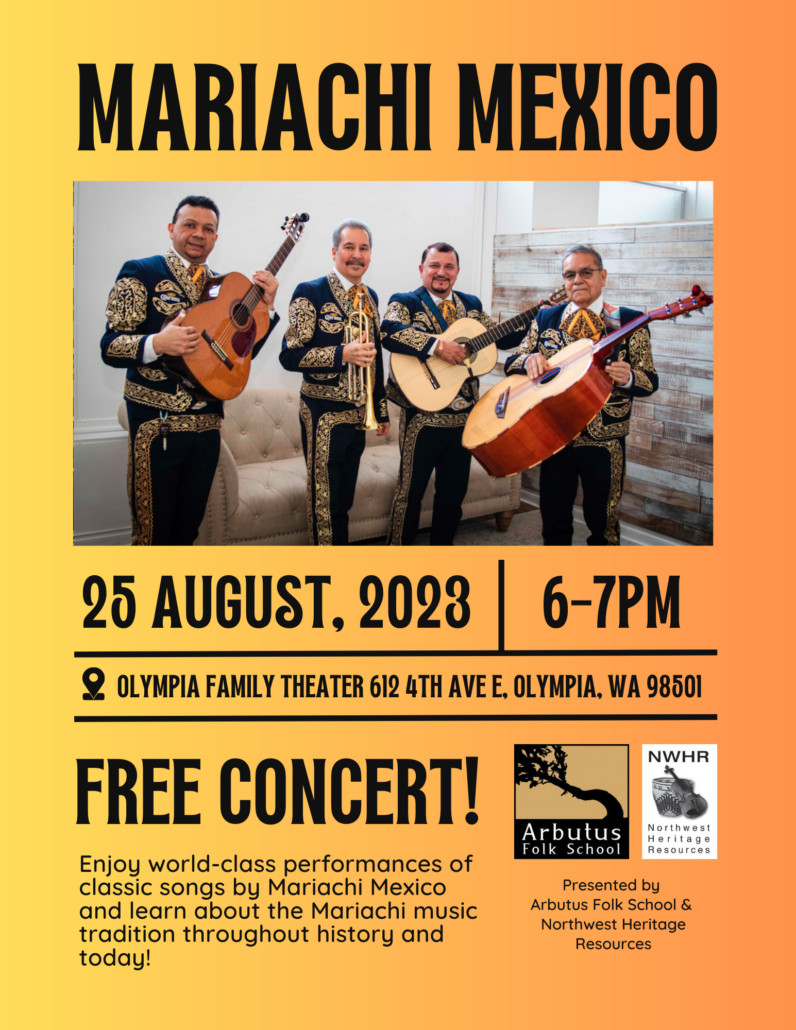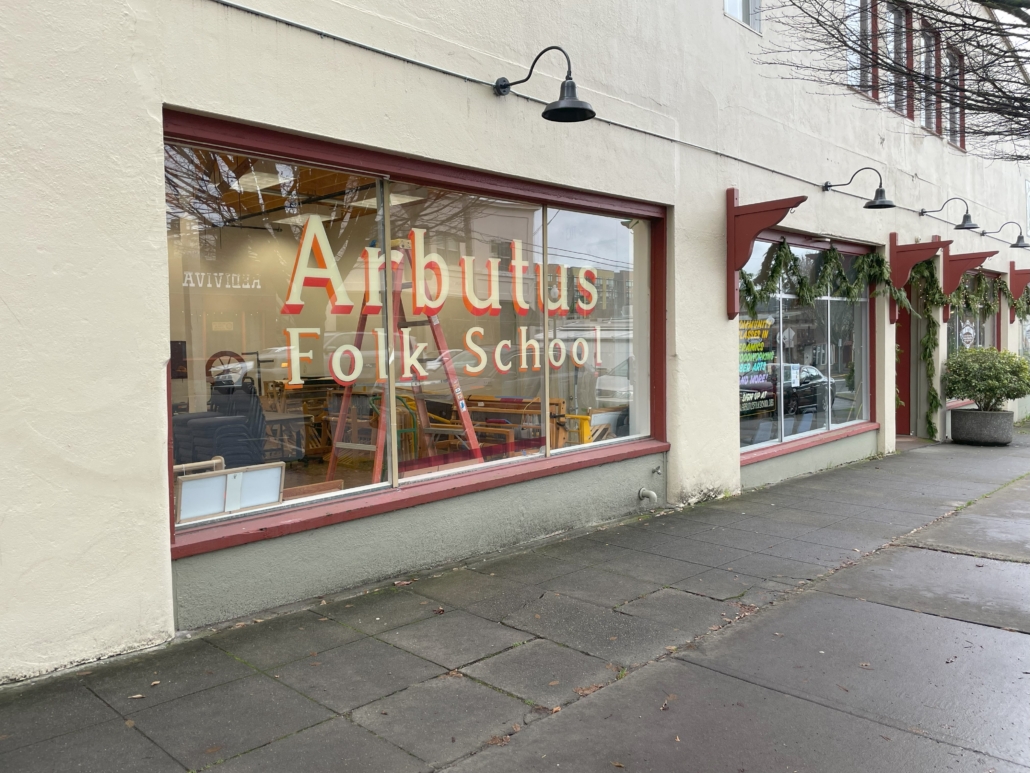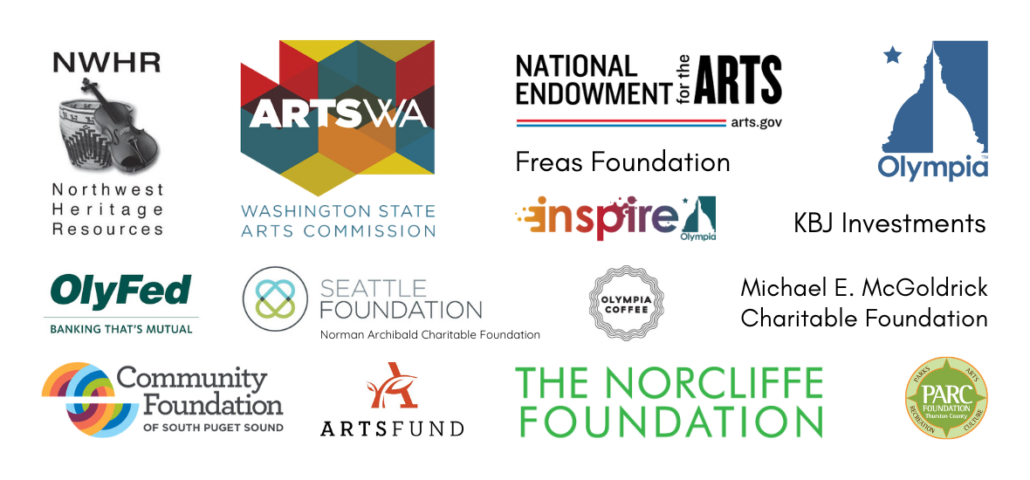“We had a wonderful time and will use what we learned for Easter holidays. Thank you! Great class!”
“Totally new for me and I was able to do it and have a cool keepsake.”
“Historically, culturally informative and fun!”
“Appreciated the sharing of traditions, and gained a new skill.”
TULALIP YELLOWCEDAR BASKETWEAVING, SEPTEMBER 2024
HAITIAN CUISINE, DECEMBER 2023
UKRAINIAN PYSANKY, MAY 2021
WARM SPRINGS WASCO BUCKSKIN MOCCASINS, JULY 2021
QUINAULT CEDAR BARK WEAVING & LEGENDS, DECEMBER 2021
SOUTH AMERICAN CANTO NUEVO MUSIC, FEBRUARY 2022
MAKAH CEDAR BARK BASKETS, APRIL 2022
JAPANESE CALLIGRAPHY, JULY 2022
SCOTTISH WAULKING, SEPTEMBER 2022
DYEING TRADITIONS OF FINLAND AND THE SÀMI, JANUARY 2023
MARIACHI MEXICO CONCERT, AUGUST 2023
Folk & Traditional Arts Instructors
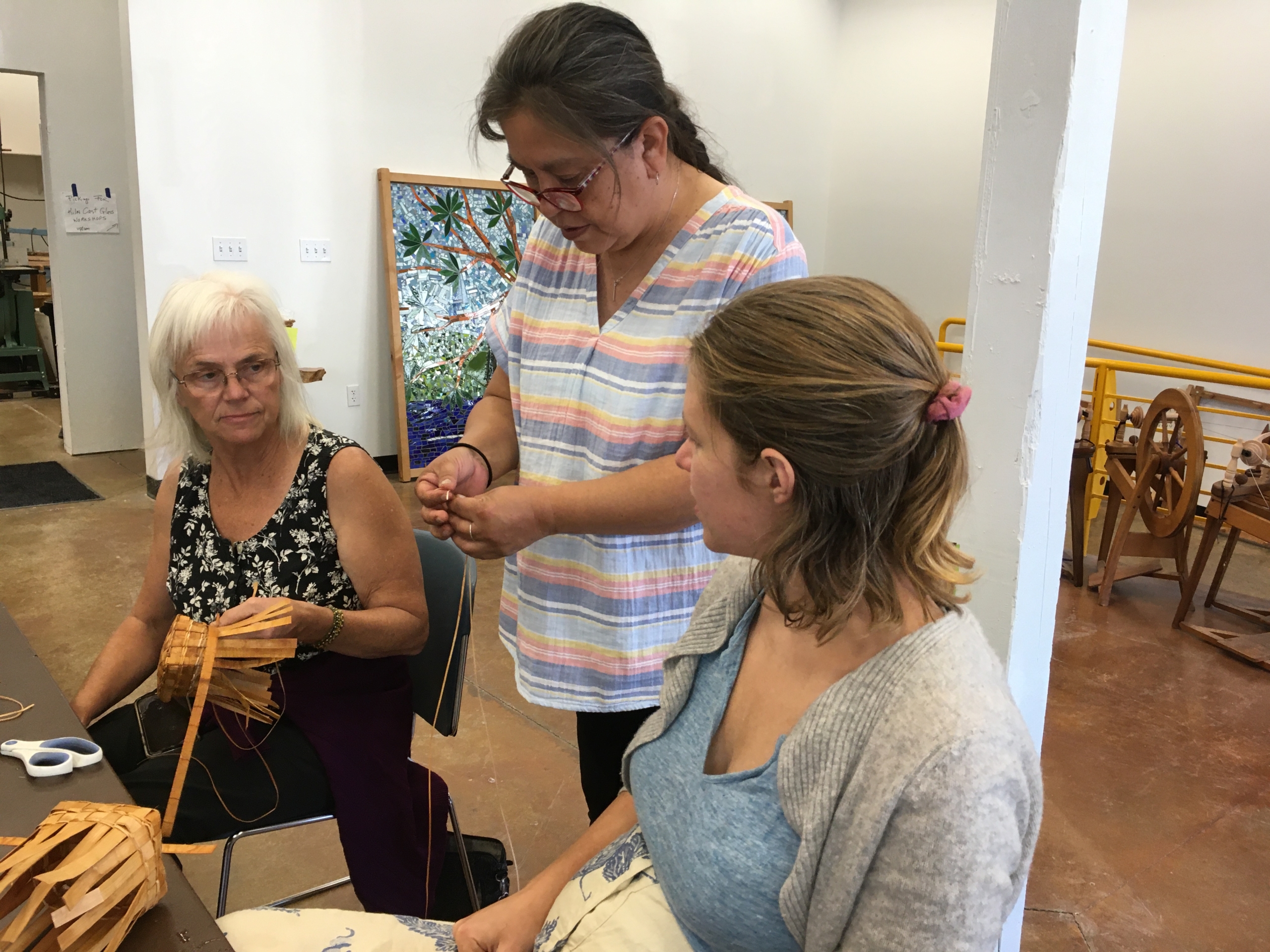
Jamie Sheldon
I’m Jamie (Sheldon) Arnold and I am a Tulalip tribal member. I have been weaving with cedar over 20 years now. I learned from my Aunt Maxine and my Mom. We would go to various weaving events with learning from other coastal salish teachers to which I am eternally grateful for their teaching. I started teaching over 6 years ago with the hopes that whoever I teach will spread what was taught to them. I do traditional basket weaving along with making my own line of cedar jewelry.
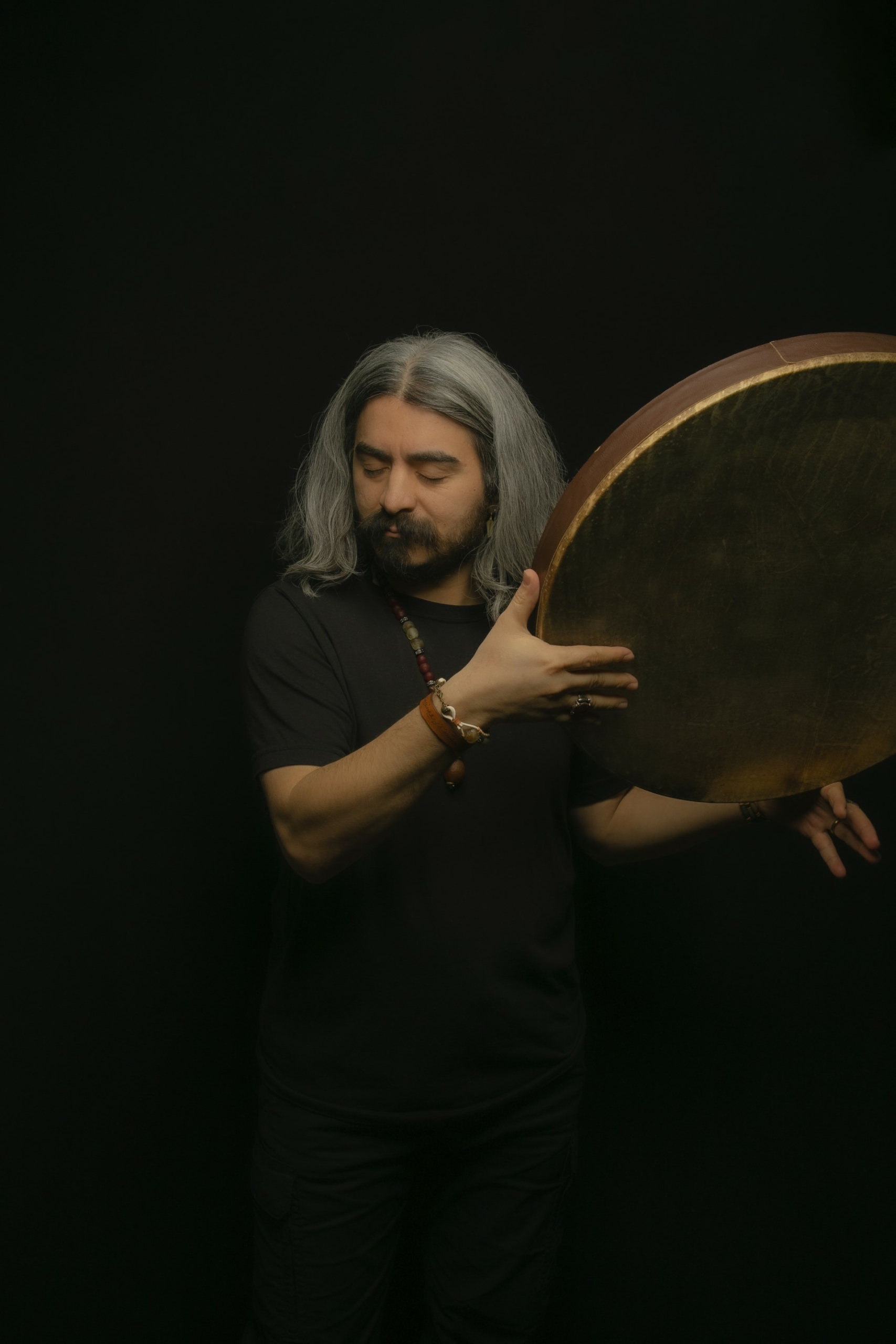
Jan, Tovas, and Torasuv Porvas
Jan porvas was born in the Yarsan (Ahle Haqq) family in 1984 in the city of Tabriz in Iran. Then he started his art and Batiniyya career. Jan, who started music with nagara at the age of 6, continued his career with the keyboard because of his intense interest in electronic sounds. Due to the pressure on art in Iran , music education and studies were continued at home in the form of a master-apprentice relationship. Tovas Porvas was born in Baku, Azerbaijan, and began playing music at just 6 years old. She sang and performed in many festivals in Baku, often placing among the top three young performers. Tovas is a poet for more than a decade, the duo has been united in their mutual love for music. Today she aims to keep their Yarsan Ahle Hagh cultural traditions alive and thriving through the arts.
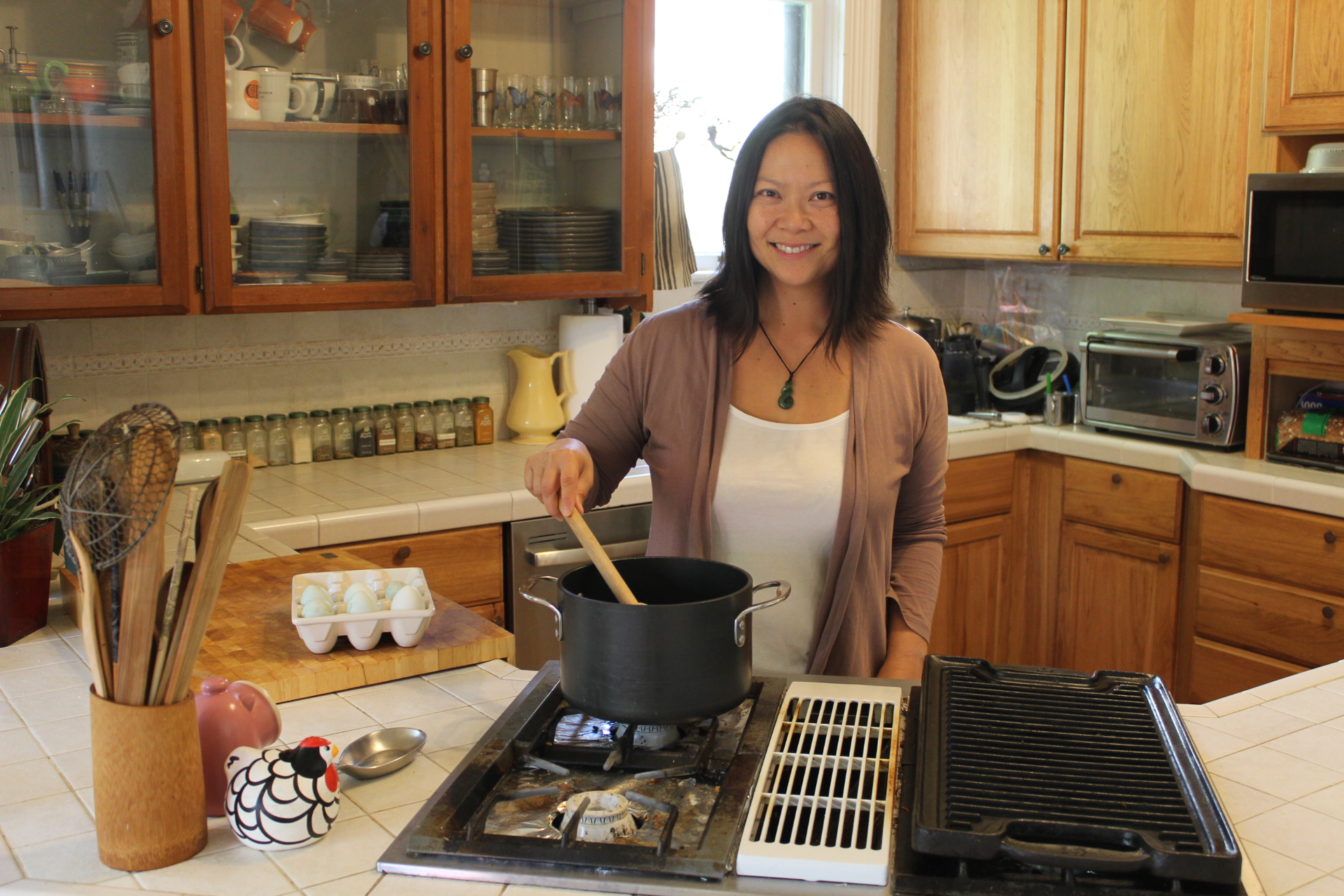
Terry Vanderpham
I love food. It‘s ability to bring people together, heighten people’s experience and open their eyes to new cultures and flavors is the reason I cook.
In 2009, I was disappointed with the lack of Vietnamese cuisine in Dunedin, New Zealand, where I was living. Rather than opening a restaurant, I opted to teach cooking lessons at the University where my husband was doing his PhD. You know how the saying goes, “If you give a man a fish, you feed him for a day, but if you teach him to fish, you feed him for a lifetime.”
After moving back to Seattle I partnered with my sister to start Phamily Cooking. My sister and I grew up on delicious home cooked meals mostly of Vietnamese influence. Our mother, Giang Nguyen, opened one of the first Vietnamese restaurants in Seattle, Washington and imparted her love of cooking to us. We keep that going by sharing recipes and lessons on how to shop, prepare, and serve beautiful home cooked meals. While we love teaching people how to cook, more importantly, we love bringing people together to build community and enjoy life to the fullest.
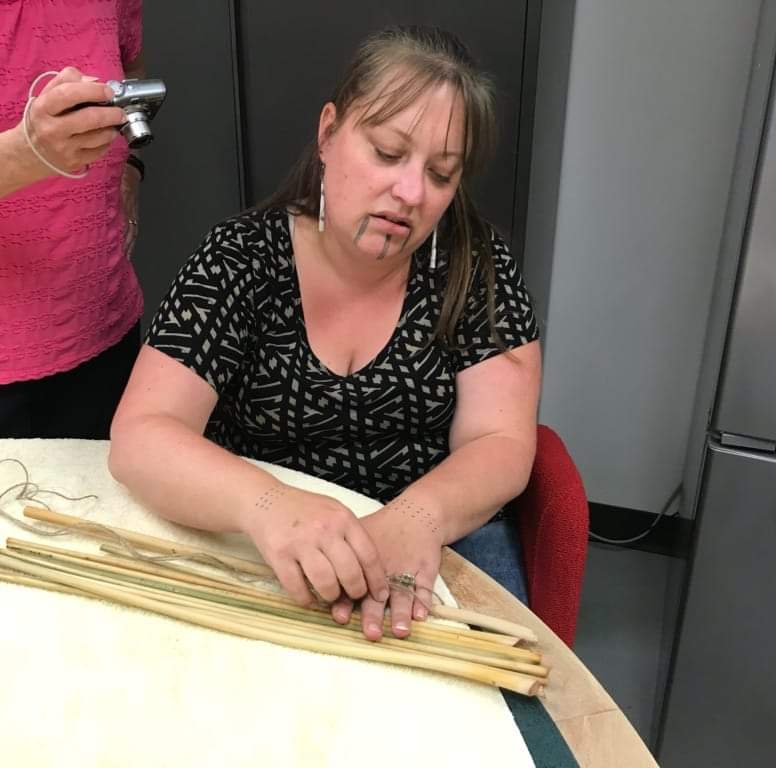
Stephanie Wood Craig
Stephanie Craig nee Wood, Santiam and Yoncalla Kalapuya, Takelma Rogue River, Cow Creek Umpqua, Clackamas Chinook, is enrolled in The Confederated Tribes of Grand Ronde in Oregon. She is a seventh generation traditional basket weaver, Oregon Culture Keeper, I/TEK practitioner and cultural museum consultant. Stephanie grew up listening to her great great Aunties, Grandmother and Tribal Elders talking and actively using basketry that has been in their family for over 100 years. She has been weaving and teaching for 17+ years.
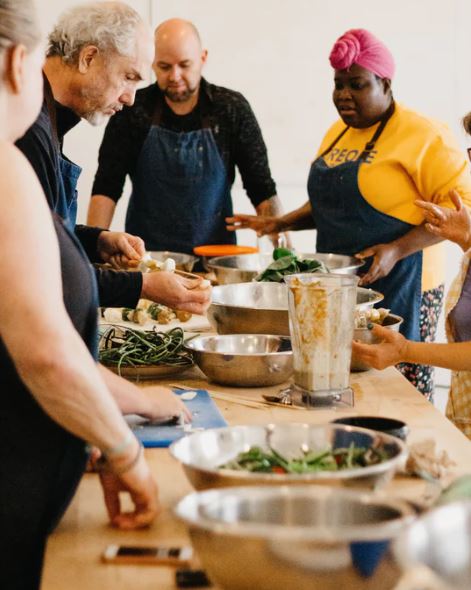
Elsy Dinvil
I love to cook and enjoy bringing close and new friends together over tasty food. I recently published a book, Cooking With My Mother, which is filled with over 100 easy-to-follow popular Haitian recipes. You can follow me on Instagram or visit creolemeup.com for more information.
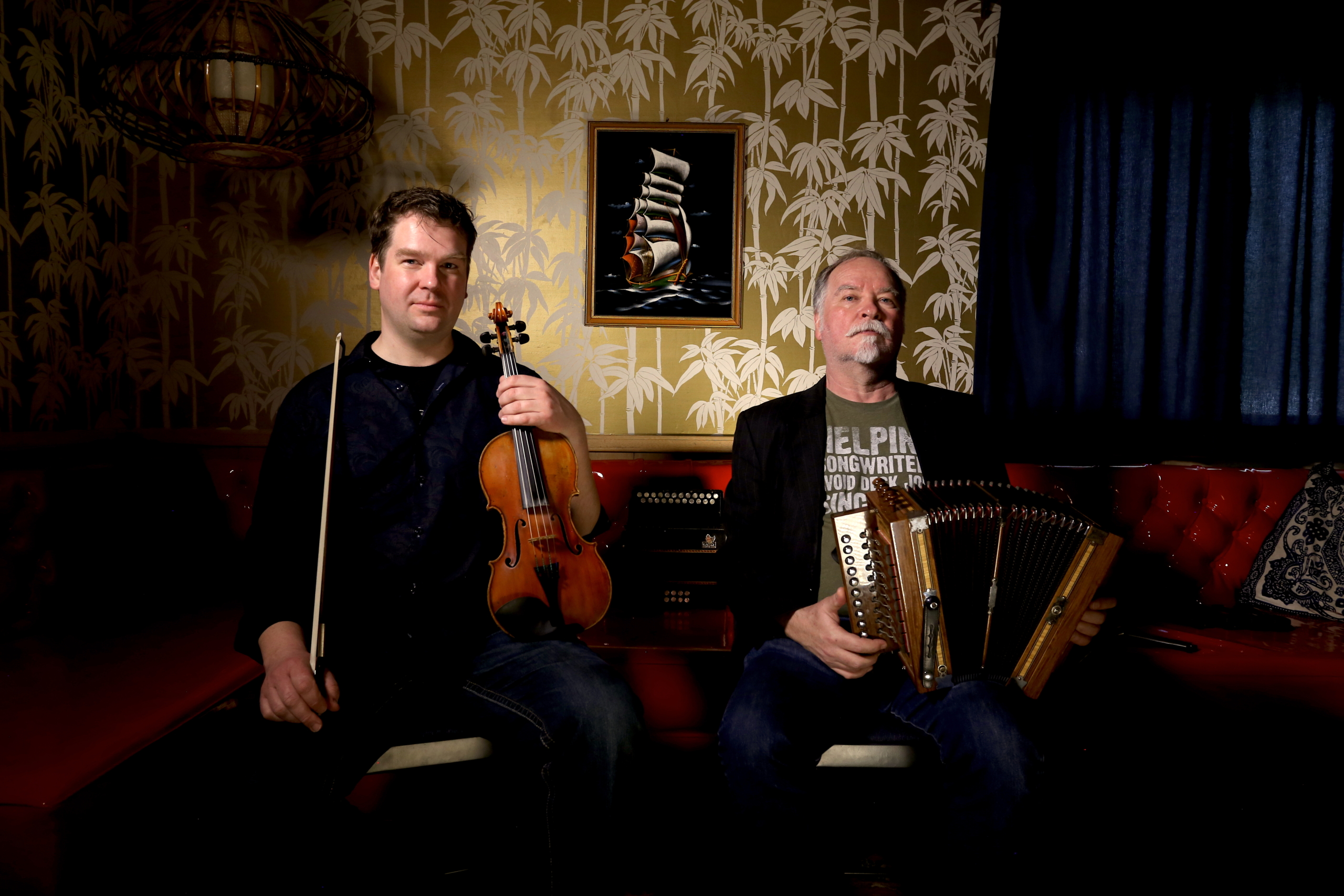
Gangspil
Sonnich Lydom and Kristian Bugge will guarantee you an entertaining and variated journey through the traditions of Danish folk music. This lively group performs old dance tunes and long forgotten songs from every corner of their Scandinavian home country. From rural islands like Læsø to the metropol Copenhagen, including a few of their own compositions. Expect everything from wild polkas and jigs to lyrical waltzes, fiery reels and happy hopsas, plus the exotic “Sønderhoning” dance tunes from the famous Island of Fanø. An unforgettable live experience spiced up with humor and stories from their many years on the road. Gangspil have toured intensively and played more than 120 shows in North America since 2015! - as well as a good number in other parts of the world. The group has become a well-known name in trad- and folk circles both home in Scandinavia and abroad. In 2016 they received the "Tradition Award" at the Danish Music Awards (Danish Grammy!)
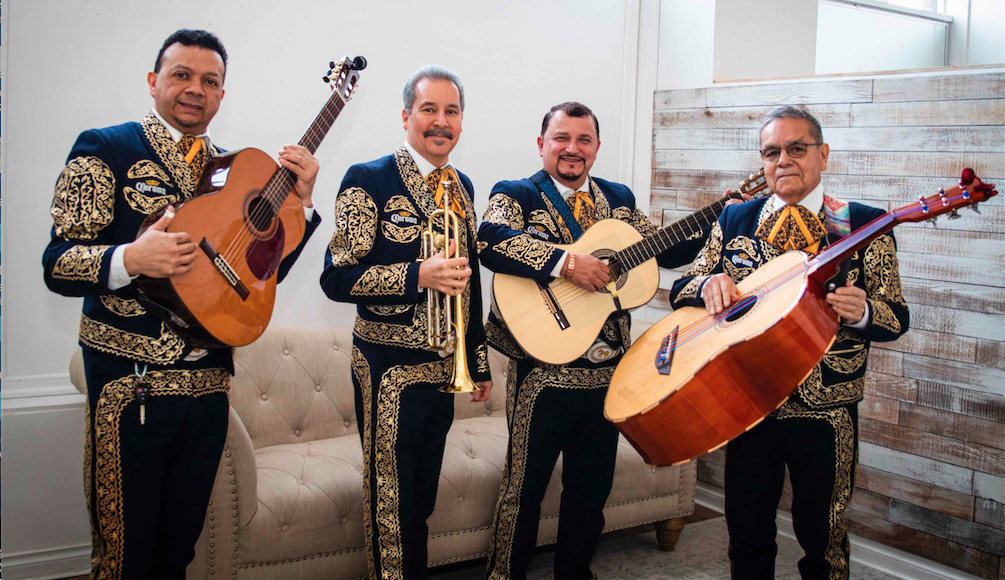
Mariachi Mexico
This exciting ensemble brings you the heart and soul of Mexico. Their wide repertoire of regional Mexican music include classic rancheras to Veracruzan huapangos. Romantic boleros to lively polkas, beautiful waltz’s and much more. You’ll experience diverse and traditional instruments including guitar, trumpet, guitarrón and accordion coupled with authentic vocals performed in the Mariachi style. The groups founder and music director, Bobby Medina, is originally from East Los Angeles CA and performs on Trumpet and accordion and adds background vocals. Guitarist/ lead vocalist Juan Carlos Cadena is originally from Reynosa Tamaulipas Mexico. Juan Manuel Barco is originally from Coal Mine TX and performs on guitarrón and vocals. Mario Hernandez comes from Veracruz Mexico and performs on guitar and vocals.
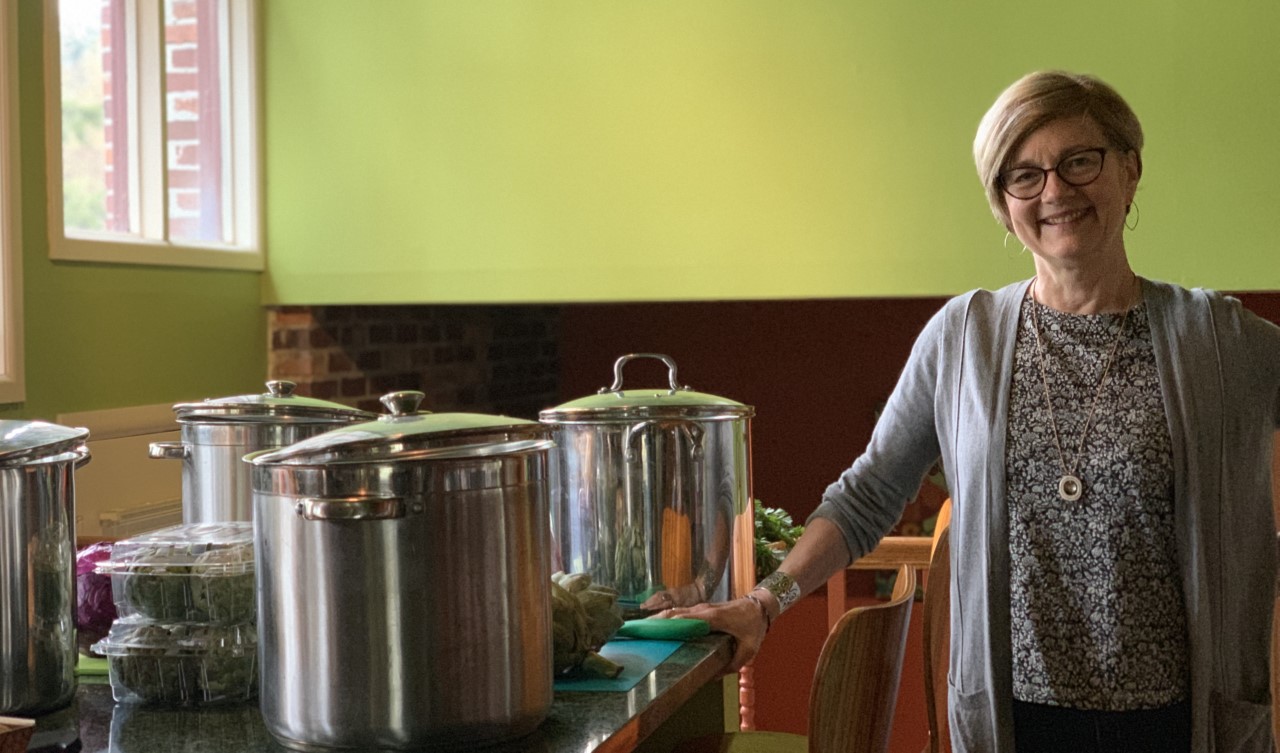
Marja Eloheimo
Marja Eloheimo is a Finnish-American educator, artist, and writer with Sámi ancestry, and is the owner of I Found the Colors, SPC. Marja holds a Ph.D. in environmental anthropology from the University of Washington and an M.A. in arts and psychology from Antioch University. She has explored and taught people-plant relationships (ethnobotany) at The Evergreen State College in Olympia, Washington for over 25 years. After decades of interest in plants as medicine, Marja has fallen in love with creating color from plants through the art of natural dyeing.
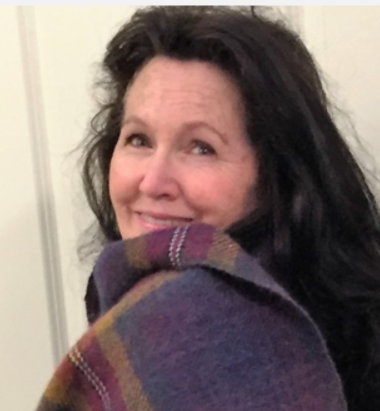
Anne Carroll Gilmour
Anne Carroll Gilmour began learning about traditional Waulking songs and methods as a child at her grandfather‘s knee, and with Scottish Master weaver & tradition bearer Norman Kennedy. The weft yarn for the cloth being waulked in her workshops was homegrown and handspun from Anne’s flock of Romney/Corriedale cross sheep, and the cloth is woven by Anne at her home in Ridgefield, WA.
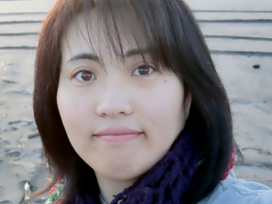
Chiyo Sanada
As an artist, Chiyo’s passion has always been Japanese Calligraphy (Shodo). Shodo is essentially an art of movement, using ink, brush and paper to express thoughts and emotions in characters. With complete focus, Chiyo imbues each brushstroke of the Japanese characters or “kanji” with meaning, power and rhythm. Chiyo’s goal is to make connections with people from all over the world through her art. Though her primary audience is unfamiliar with Japanese characters, she is known for using color, texture and line to successfully convey emotions and concepts through her art so others can intuitively sense its meaning. Chiyo is also known for bringing calligraphy “off the page and onto the stage,” with her live calligraphy demonstrations — often performed in conjunction with other Japanese art forms. She has performed with Taiko drummers, “Noh” dancers and Koto players. These dynamic performances result in lasting artworks that reflect and expand on the work of the other performers. Originally from Hiroshima, Japan, Chiyo began training in Japanese calligraphy at age seven. She started teaching Japanese calligraphy after graduating from Hiroshima Bunkyo Women’s University in 1995 with a teaching certificate and a degree in Japanese calligraphy. Chiyo regularly shows her work in art exhibitions throughout the Pacific Northwest.
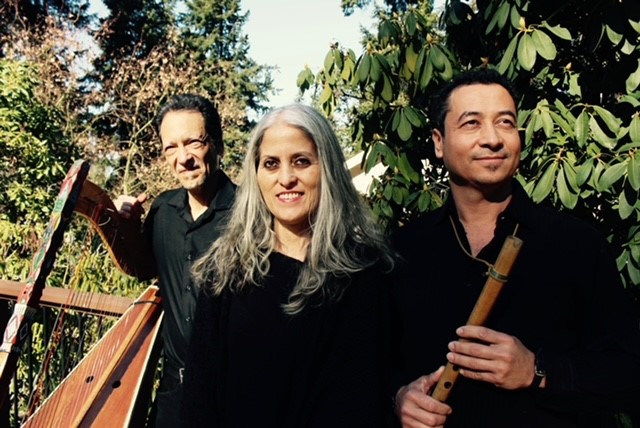
Sin Fronteras
Based in Seattle, the Sin Fronteras band is comprised of musicians Patricia Mazuela, Abel Rocha, and Diego Coy. Rocha is a Mexican-born vocalist interpreter of son jarocho music and player of the Venezuelan harp and cuatro, the quinta huapanguera, and the guitar. His sound is influenced by Andean, mestizo, and criollo rhythms. Diego Coy, born in Santiago de Cali, Colombia, plays the quena, quenacho, and the zampona in addition to other woodwinds and percussion instruments native to countries in the Andean region. He applies jazz improvisation to traditional music in a unique way. Patricia Mazuela is a musician, playback theater director, and event developer hailing originally from Chile and focused on the nueva canción genre and traditional Latin American rhythms.
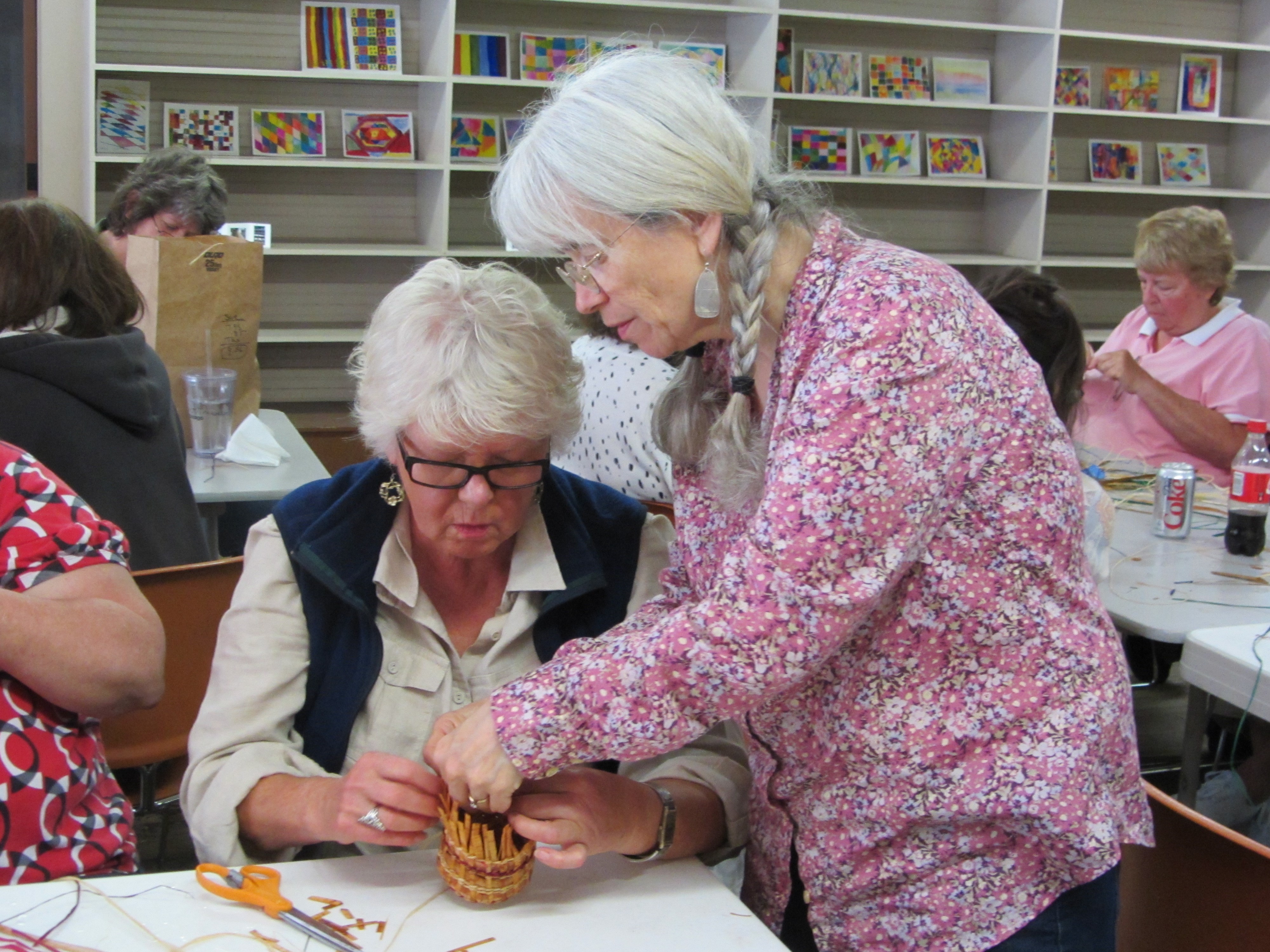
Melissa Peterson
Melissa Peterson is a Makah tribal member living on the Makah reservation and weaving Makah traditional & contemporary basket for 53 years. Melissa collects and processes all of the materials used in her basketry. She has been a cultural arts specialist for 40 years, teaching multiple generations, and shares her knowledge with non-tribal folks interested in Makah basketry as well.
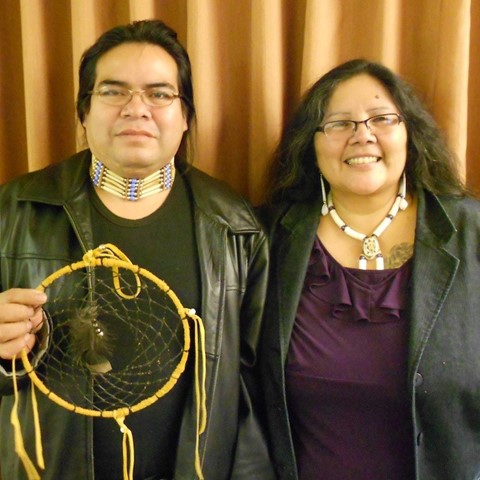
Maria and Victor Godines
Maria Godines, whose Native American name is Mnuwai Ayat (Kind Woman), has Wasco and Warm Springs tribal roots. She grew up in Portland and now lives on the Warm Springs Reservation in central Oregon. With her beadwork, she expresses both her cultural heritage and her engagement in contemporary design. As a young girl Maria learned basic sewing techniques from her mother, and when she was six years old, Maria began learning the arts of stringing beads, the peyote stitch, flat beadwork, and looming from an older sister. Since 2007, Maria has participated in Tribal Member Art Exhibits at the Museum of Warm Springs and has received awards for her Wasco Shell Side Purse, her Colombia River Replica Wedding Veil, and her beaded jewelry.
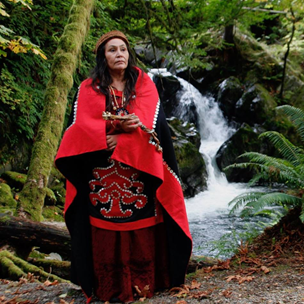
Harvest Moon
Quinault master basketweaver and storyteller Harvest Moon shares about the life, art, and culture of Coastal Salish Natives through song, story, and cedar bark weaving activities. Harvest Moon has been awarded the Washington State Historical Society’s Peace and Friendship Award, has served two terms as Washington Commission for the Humanities’ Inquiring Mind speaker, and has served as an artist with the Seattle Arts Commission, Bainbridge Island Arts and Humanities, and Young Audiences. Learn more at https://iamharvestmoon.com.
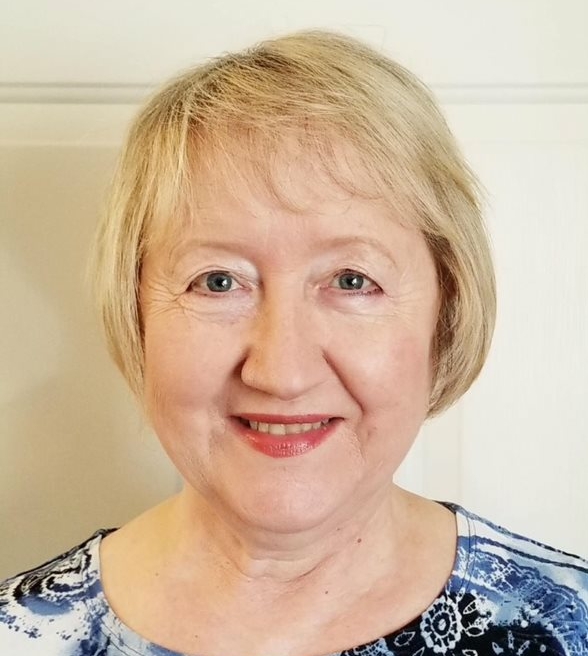
Daniela Sipkova Mahoney
Daniela Šipková Mahoney was born in Prague where she studied international business and foreign languages. She came to the U.S. in 1982. Daniela cherishes her Czech heritage and has developed educational programs emphasizing preservation of cultural crafts. Every year Daniela travels to U.S. Czech communities to offer classes and lectures on
egg art, paper crafts, glass bead projects and fiber arts inspired by Czech customs and traditions. Daniela holds a master’s degree in geriatric social work from Portland State University.
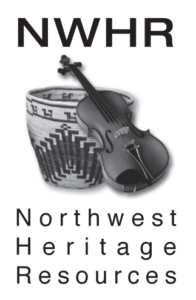
Thank you to Northwest Heritage Resources for supporting folk and traditional arts programming at Arbutus Folk School.
Northwest Heritage Resources is a non-profit organization first established in Washington state in 1995. Its mission is to conserve cultural heritage and to present, promote, preserve and document the diverse cultural traditions of the Pacific Northwest.
